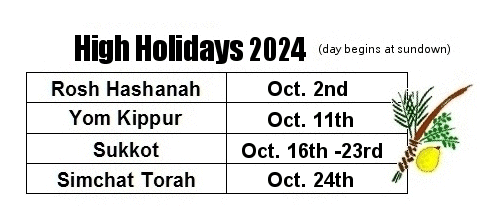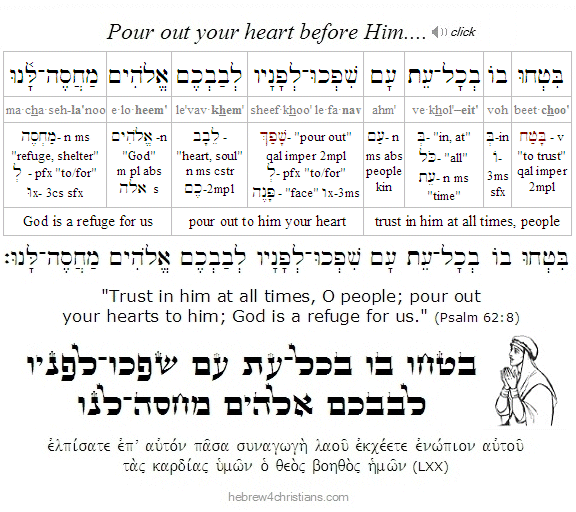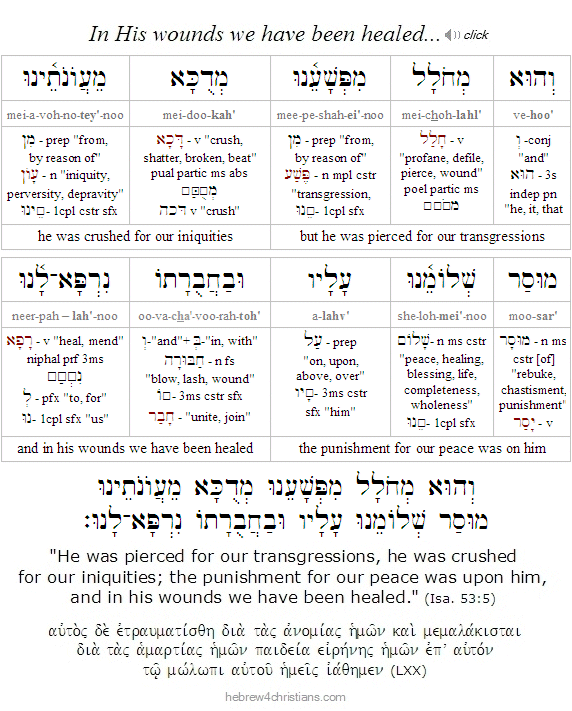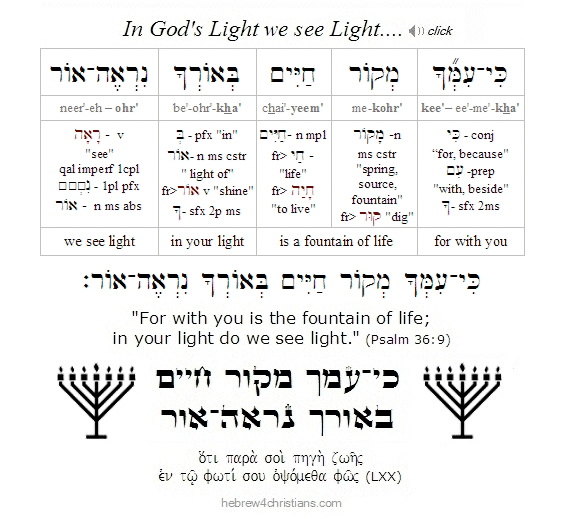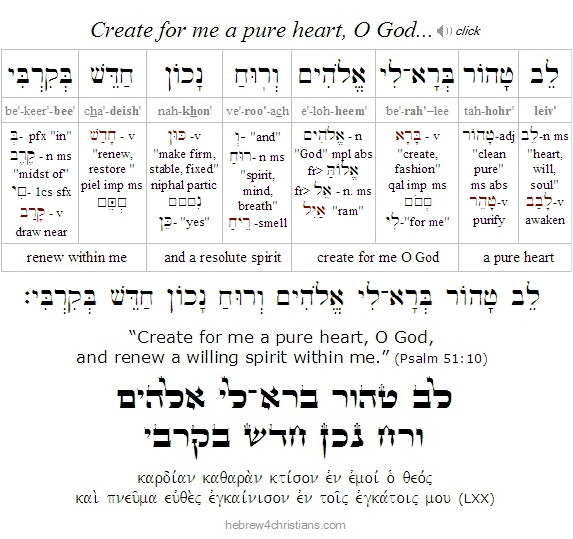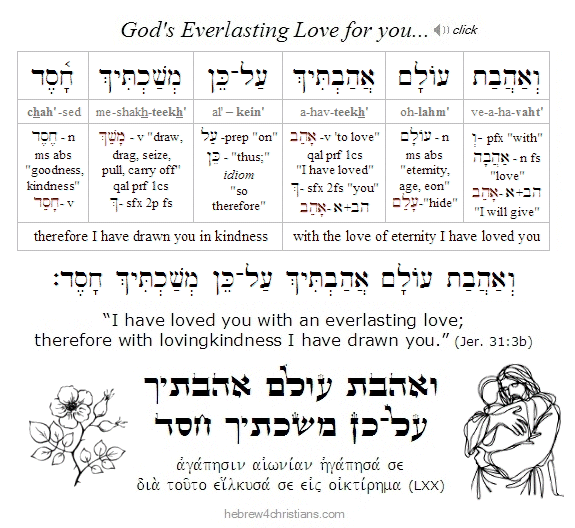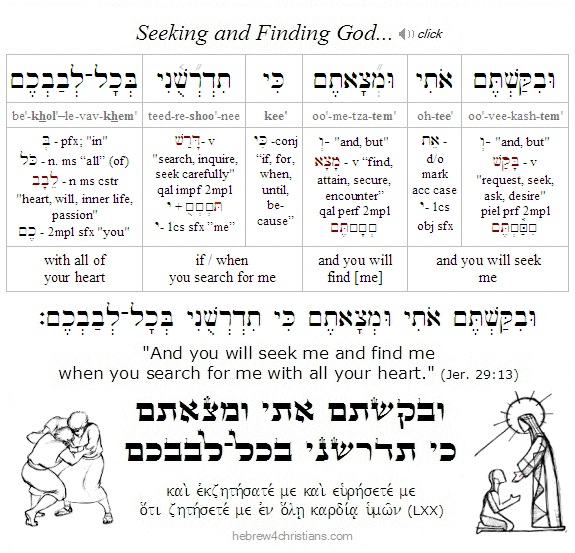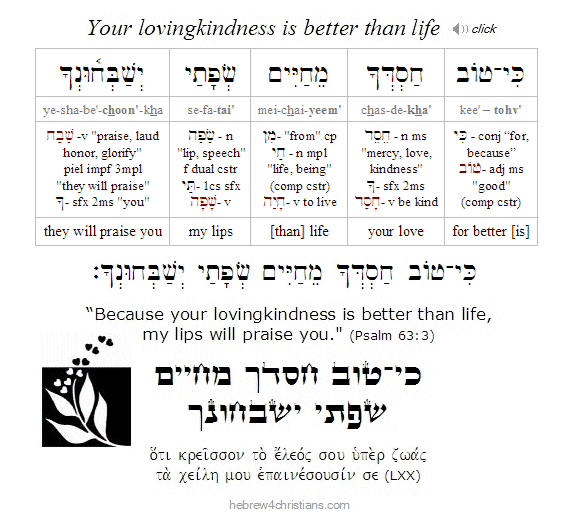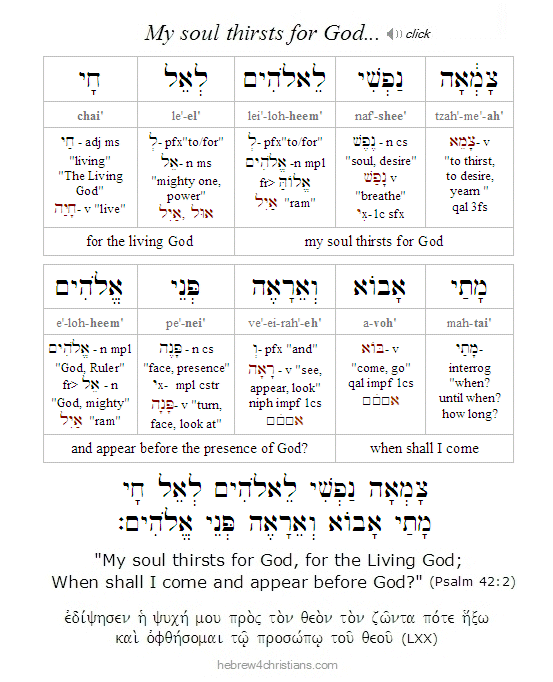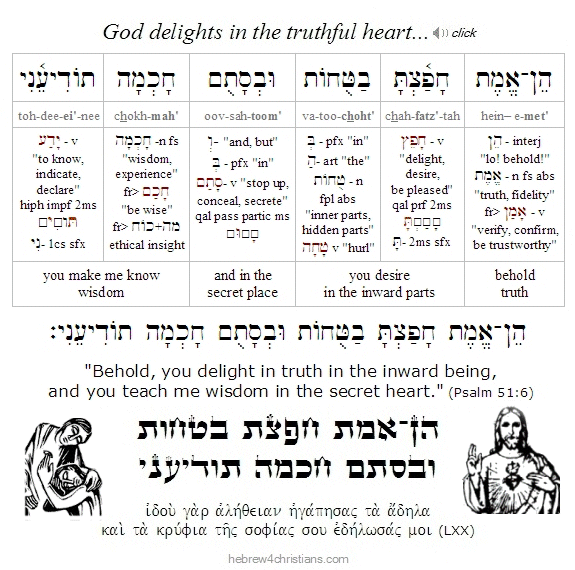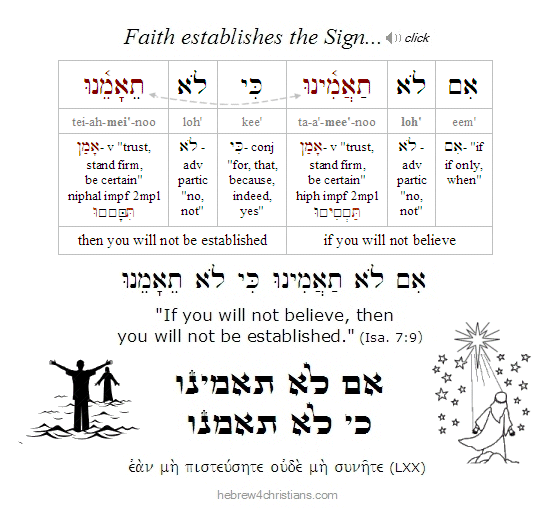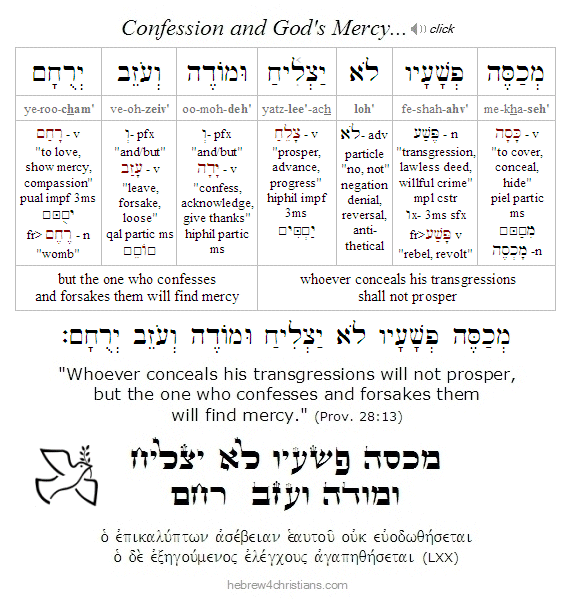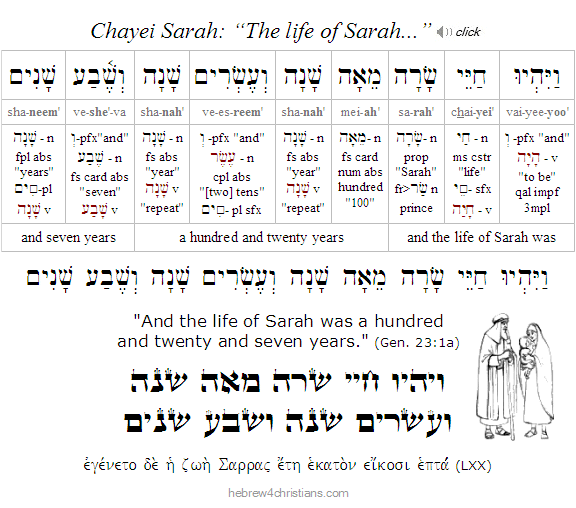|
Prayer Request (for site updates, see below)
I was laid off from my full-time job several years ago when -- after a lot of prayer, soul searching and discussion with my wife -- we decided to operate the Hebrew for Christians ministry entirely by faith in God's provision through the love and kindness of His people. I am not paid for doing this work, and therefore I ask you to consider supporting us. If you can help, please offer a donation or purchase some of the Hebrew study materials offered here. Encouraging other web sites to link here also helps us become more visible on the web. Above all, agree with us for the Lord's will to be done in our lives. Todah, chaverim.
  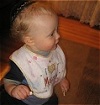  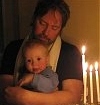
Note: My wife and I have have three young children (Josiah, Judah, and Emanuel David ). The LORD has graciously provided for us as Adonai Yireh (יְהוָה יִרְאֶה), "the One who sees [our need]." We are living one day at a time by the grace and mercy of God, and I want to publicly praise Yeshua and acknowledge His faithful love in caring for my family -- despite the trials during this time. The LORD God of Israel is faithful and true! And to those of you who have sent us a word of encouragement or donation during this difficult time, please accept our heartfelt appreciation! Your chesed truly helps sustain us.
יהי שׁם יהוה מברך - "May the Name of the Lord be blessed."
 |
I want to offer a word of thanks for all your kindness and encouragement over the last 20+ years, chaverim... I could not be in ministry apart from the grace and love you have shown to me and my family. Thank you so much and may the great and unsurpassable blessings of the LORD God of Israel be upon you always. -John
Jewish Holiday Calendar
Note: For site updates, please scroll past this entry....
The Torah divides the calendar into two symmetrical halves: the Spring and the Fall, indicating the two advents of Messiah. The Biblical year officially begins during the month of the Passover from Egypt (called Rosh Chodashim, see Exod. 12:2), and the spring holidays of Passover, Unleavened Bread, and Firstfruits both recall our deliverance from Egypt and also our greater deliverance given by means of the death, burial, and resurrection of the Messiah, the great Passover Lamb of God. Yeshua was crucified on erev Pesach, buried during Unleavened Bread, and was resurrected on Yom Habikkurim (Firstfruits). The holiday of Shavuot (i.e., "Pentecost") both commemorates the revelation of the Torah at Sinai as well as the revelation of the Ruach HaKodesh (Holy Spirit) at Zion, in fulfillment of the promise given by our Lord....
The intermediate months of summer end with the advent of the sixth month of the calendar, called the month of Elul, which recalls the time Moses interceded on behalf of Israel after the sin of the Golden Calf. To commemorate this time of our history, we likewise focus on teshuvah (repentance) in anticipation of Rosh Hashanah and especially in anticipation of Yom Kippur, the great "Day of Atonement." In Jewish tradition the 30 days of Elul are combined with the first ten days of the seventh month (called the "Days of Awe") to set apart "Forty Days of Teshuvah" leading up to the Day of Forgiveness for Israel. Immediately following Yom Kippur, the mood changes as we begin preparing for a joyous week-long celebration called Sukkot (i.e., "Tabernacles") that concludes with the holiday of Simchat Torah.
 |
The Fall Holidays:

The fall festivals prophetically indicate the Day of the LORD, the second coming of Yeshua, the great national turning of the Jewish people, and the establishment of the reign of the Messiah upon the earth during the Millennial Kingdom in the world to come.
Note that in accordance with tradition, holiday dates begin at sundown. Moreover, some holidays may be postponed one day if they happen to fall on the weekly Sabbath:
1. Month of Elul (Mon. Sept. 2nd [eve] - Wed. Oct. 2nd [day])
2. Month of Tishri (Wed. Oct. 2nd [eve] - Thur. Oct. 31st [day]) - Fall holidays begin
3. Month of Cheshvan (Thur. Oct. 31st [eve] - Sat. Nov. 2nd [day])
- Five Sabbaths: Noach, Lekh-Lekha, Vayera, Chayei Sarah, Toldot
- Yom Ha'Aliyah - Honoring Israel's immigrants (Thur. Nov. 7th; Cheshvan 7)
- Sigd - 50th day after Yom Kippur; Ethiopian Jewish holiday (Tues. Nov. 26th)
4. Month of Kislev (Sat. Nov. 2nd [eve] - Mon., Dec. 30th [day])
- Four Sabbaths: Vayetzei, Vayishlach, Vayeshev, Miketz
- Winter Solstice: Fri. Dec. 20th, Kislev 20)
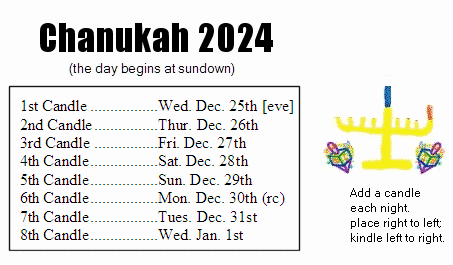
- Dates for Chanukah 2024 (5785):
- 1st Chanukah candle - Wed. Dec. 25th [i.e., Kislev 25] Christmas
- 2nd Chanukah candle - Thur. Dec. 26th [i.e., Kislev 26]
- 3rd Chanukah candle: Fri. Dec. 27th [i.e., Kislev 27]
- 4th Chanukah candle: Sat. Dec. 28th [i.e., Kislev 28]
- 5th Chanukah candle: Sun. Dec. 29th [i.e., Kislev 29]
- 6th Chanukah candle: Mon. Dec. 30th [i.e., Kislev 30]
5. Month of Tevet (Mon., Dec. 30th [eve] - Wed. Jan. 29th [day])
- Dates for Chanukah (continued):
- 7th Chanukah candle: Tues. Dec. 31st [i.e., Tevet 1]
- 8th Chanukah candle: Wed. Jan. 1st 2025 [i.e., Tevet 2] Zot Chanukah
- Secular New Year: Wed. Jan. 1st, 2025 (Tevet 1, 5785)
- Four Sabbaths: Vayigash, Vayechi, Shemot, Va'era
- Asarah B'Tevet - Fri. Jan. 10th (dawn); fast over the seige of Jerusalem
 |
Note: For more about the dates of these holidays see the Calendar pages....
December 2024 Site Updates
Note: Please refresh the page (or press F5) to see the latest updates...
The Nearness of God...

12.13.24 (Kislev 12, 5784) "When I thought of nothing but to end my days in these troubles (which did not at all diminish the trust I had in God, and which served only to increase my faith), I found myself changed all at once, and my soul, which till that time, was in trouble, felt profound inward peace, as if she were in her center and place of rest." - Brother Lawrence
When he came to accept life on God's terms rather than his own, Brother Lawrence found peace within his soul. This epiphany, or moment of revelation, changed everything, because accepting life on God's terms meant that God was involved in every detail of his life, and therefore God was present and near at all times...
We cannot change ourselves, at least not our deepest self. True transformation comes from God, and change will take place by itself, that is, by God's inner work within you. The process of spiritual growth is ultimately mysterious and divine: "The Kingdom of God is like someone who spreads seed on the ground. He goes to sleep and gets up, night and day, and the seed sprouts and grows, though he does not know how. By itself (αὐτομάτη, "automatically") the soil produces a crop, first the stalk, then the head, then the full grain in the head. And when the grain is ripe, he comes in with his sickle because the harvest has come" (Mark 4:26-29).
God is doing the work of salvation within you, and all you can do is accept yourself as you are. As the apostle Paul wrote: χάριτι δὲ θεοῦ εἰμι ὅ εἰμι - "by the grace of God I am what I am." The great "I am" of the LORD is the Source of your life, from the beginning to the end. And it is because of the grace of God that Yeshua tasted death for everyone (Heb. 2:9).
When we come to faith and undergo "regeneration," or spiritual rebirth, the seed of His life is planted within us and the divine life begins to grow. Just as you did nothing to bring yourself into this world, so you can do nothing to bring yourself into God's kingdom. Regeneration (and sanctification) is a miracle that comes "of the Spirit" (John 3:5, 8).
We are witnesses of God's miracle within us, and our only need is to trust in his plan for our lives, regardless of our present circumstances (Isa. 26:12; Jer. 29:11; Prov. 3:5-6). God's plan includes the promise of heaven, but it also includes our inner struggles, our troubles, and our need. His plan includes a personal heart connection with you so that you come to know his love for you.
"Trust in him at all times, O people; pour out your heart before him; God is a refuge for us. Selah" (Psalm 62:8). Pouring your heart out to God in an honest, spontaneous, and intensely personal way is called "hitbodedut" (הִתְבּוֹדְּדוּת) in Hebrew. We "pour out" (שׁפך) whatever is within us, both the bad and the good. We confess our temptations and failures, our need for his deliverance, our yearning for life, our sorrows, our joys, our fears and our hope. We show God what's inside us, our intimate secrets, our "kishkes," and hold nothing back...
After we "talk our hearts out" before the Lord, in our emptiness we can begin to truly listen, as it says, "In returning and rest you shall be saved; in quietness and in trust shall be your strength" (Isa. 30:15). Only after we sigh deeply and surrender are we receptive to the voice of the Spirit's whisper. אַשְׁרֵי כָּל־חוֹכֵי לוֹ - "Blessed are all those who wait for Him" (Isa. 30:18). We wait, we abide, we persevere -- even when God seems to "take his time" or does not immediately intervene in ways we might apprehend. We do not lose heart, for we find strength when we trust in God's love... The Light of the world still shines: Yeshua, be my inner word, my heart, and my groaning for life today, and forevermore: Amen.
I've mentioned before that there are two relationships you will always have in your life: one with yourself, and the other with God. The "self" is really an inner dialog within the heart and ultimately it is a conversation with God. You cannot know who you are apart from God, though tragically people can suppress God's presence and live a life of madness.... Sanity comes by the miracle of rebirth. Knowing God's presence transforms the heart forever.
Open your heart and look to the Lord. Hide nothing and trust in mercy that changes you. "Come unto me," Yeshua says. Come as you are. If you hear the inward call, he will give you the means and courage to come; he will impart grace to trust him that redeems you by his love. As you open your heart in trust, the Lord becomes your Refuge, and you will know Him in all your ways.
"I can't change myself... you surely know that. Or I won't change, because I don't know how or I can't find the willingness. You know this too. I am all emptiness; apart from you I am nothing. My heart pants; it's hard to breathe; I am a troubled vapor. I ache in my powerlessness and in my hope. There is no good within me; I come to you, just as I am, and I am set free from myself, because you alone are the substance and heart of my life. Though I don't understand whatever happens, and often I feel anxious and afraid, I find peace in you. Beloved. Accepted. Redeemed. Healed. I find my life in your presence, O LORD. Hold me fast and keep me close to your heart always. Amen."
Hebrew Lesson
Psalm 62:8 Hebrew reading (click):
The Victory of Grace...

"The unwounded life bears no resemblance to the Rabbi." - Brennan Manning
12.13.24 (Kislev 12, 5784) You've likely have heard the saying, "hate the sin, love the sinner," and while it is true that we should hate sin (most of all, our own sin), it is contrary to the gospel to hate the sinner. After all, Christ died for the ungodly; he came to seek and to save those who are lost (Luke 19:10). "God demonstrates his love for us, in that while we were yet sinners, Yeshua died for us - the just for the unjust - that we may reconciled with him (Rom. 5:8; 1 Pet. 3:8; 2 Cor. 5:21). Indeed Yeshua was maligned by the self-righteous of his day by being called "a friend of tax collectors and sinners" (Luke 7:34, 15:2). So it is a spiritual misstep to hate the sinner because we hate their sin.
On the other hand the sages have repeatedly taught that love cannot take root within our hearts unless there is a hatred of the enemy, that is of the devil and sin. Indeed to hate sin indicates love for the sinner because sin inevitably yields suffering and loss (Psalm 97:10). So how is it possible to love others - including ourselves - if we do not hate evil? How can we exist within this state of inner contradiction? Doesn't "holiness" mean separation from what is evil and to no longer partake of "works of darkness" that mark a godless life? (Rom. 13:12; Eph. 5:11; 1 Pet. 4:1-3). Is that not the meaning of "sanctification"?
How can we love someone who does evil? Well, it's not really that difficult. Indeed, as C.S. Lewis once observed, we love someone who does evil all the time - namely, ourselves! "You dislike what you have done, but you don't cease to love yourself. You may even think that you ought to be hanged... Love is not affectionate feeling, but a steady wish for the loved person's ultimate good as far as it can be obtained." The point Mr. Lewis makes is simple. If we are able to love ourselves despite our shortcomings and faults, surely we ought show the same compassion to others. "Forgive us our sins as we forgive others," Yeshua said, for if we do not forgive others, we ourselves remain unforgiven (Matt. 6:12-15).
It's easy enough to love goodness; it's no struggle to desire or cling to our supposed ideals. Even the pagans do as much. But Yeshua wants us to go beyond these sorts of natural affections to the realm of the divine, that is, to love our enemies and to care for them (Matt. 5:44; Luke 6:27). But how is that love possible if it is not a decision, an act of will to unconditionally give goodness to others (including ourselves)? When we pray and ask God to forgive us, our spirit cannot say "amen" and receive pardon unless we trust in God's unconditional love for us. And this is the very love he wants us to give to others...
Still, there is this tension within us - the "demand" to be perfect alongside the reality of our daily imperfections.... Since we must, however, coexist with evil, what is essential is for us is to remain righteous by holding God's goodness close to our hearts. This is the goodness of God's unconditional love, his grace that overcomes all the evil in ourselves and others.
The devil seeks to steal, kill, and destroy; he wants to steal goodness from our hearts. He tempts us to judge ourselves and others as being no good, unworthy, sinful - and therefore unlovable. To overcome this temptation is a work of faith wherein we reaccept that we are accepted by God on account of his great love. That is the meaning of the redemption, after all, that God so loves you that he bears your evil and loves you in spite of it all. Yes, the Lord will help us and transform us so that we will learn to walk in love and stop being evil, but we love God because he first loved us. Or as C.S. Lewis again said, "the Christian does not think God will love us because we are good, but that God will make us good because He loves us.
The only way we can overcome evil is by the power of faith, seeking God in all things, and understanding that his redemptive love is our salvation. Practically speaking this means learning to see the good in all things, and especially in others. We have to overlook much, to forgive much, and so on, but that is what Yeshua meant when he said "judge righteous judgment" (John 7:24). Such righteousness "sees beyond" superficial appearance to discern the underlying good. It is seeing by the truth of mercy and by the truth of hope more than "factual" seeing... The Hebrew word for "righteousness" is tzedakah (צְדָקָה), which is a kind of giving to others than goes beyond natural measures of justice, such as "eye-for-eye" retribution or even the reward for doing good.
"Judge righteous judgment." Don't be holier-than-thou, damning others for their sinfulness. If we are not willing to overlook imperfections in ourselves and others, we will be miserable, angry, and hateful people. As Friedrich Nietzsche once cautioned those who "true bleievers" in themselves: "Whoever fights monsters should see to it that in the process he does not become a monster, and if you gaze long enough into an abyss, the abyss will gaze back into you." Again, we overcome the power evil by means of the greater power of the good. And that's really the message of the cross, after all: God overcomes evil by means of love. Focusing on the good does not deny that sin and evil are real problems, but it ensures that our response to such is grounded in God's love that overcomes the darkness.
Hebrew Lesson
Isaiah 53:5 Hebrew reading (click):
Dates for Chanukah 2024

12.12.24 (Kislev 11, 5785) On the Biblical calendar the month of Kislev (כִּסְלֵו) is the ninth of the year (counting from Nisan), and also one of the "darkest," with the days progressively getting shorter and the nights getting longer. Indeed, the Winter Solstice often occurs during the last week of Kislev, and therefore the week of Chanukah (which straddles the months of Kislev and Tevet) often contains the longest night of the year. It is no wonder that, among other things, the holiday of Chanukah represents an appropriate time to kindle the lights of faith - and to remember the Light of the World in the Messiah's advent to earth...
The Hebrew word Chanukah (חֲנוּכָּה) means "dedication" (from the root חָנַךְ) and marks an eight day winter celebration that commemorates the victory of faith over the ways of speculative reason, and demonstrates the power of the miracle in the face of mere humanism. Although it is customarily observed as a "Festival of Lights," Chanukah is a "fighting holiday" -- a call to resist the oppression of this world and to exercise faith in the LORD (Rom. 13:12).
This year the eight days of Chanukah will begin on Wed. Dec. 25th [i.e., Christmas day] after sundown (1st candle) and will run until Wed. Jan. 1st until sundown. On the first night of Chanukah one flame is lit, on the second night two, and so on until the eighth night when eight flames are lit. In this way we remember the 'growth' of the miracle.
 |
Wresting the Blessing...

"And now brothers, I will ask you a terrible question, and God knows I ask it also of myself. Is the truth beyond all truths, beyond the stars, just this: that to live without him is the real death, that to die with him the only life?" - Frederick Buechner
12.12.24 (Kislev 11, 5785) In our Torah portion for this week (i.e., parashat Vayishlach), we read how Jacob (i.e., "Ya'akov," whose name means "he will follow" יעקוב), wrestled with a mysterious "Man" until the break of dawn, but refused to let go until he had secured God's blessing (Gen. 32:24-26). This climactic moment marked a "rebirth" experience for Jacob as signified by his new name "Israel" (יִשְׂרָאֵל), meaning "one who has striven (שָׂרָה) with God (אֱלהִים) and prevailed" (Gen. 32:28).
It is important to notice that Jacob was not renamed "God-fearer," or "God-lover," or even "Man of faith," but rather "God-wrestler" – one who struggles (or wrestles) with God until the blessing finally comes... As Yeshua said, "Blessed are those who hunger and thirst for righteousness" – that is, for those who struggle and search for truth – "for they shall be filled" (Matt. 5:6).
The blessing comes with a wound, however: The limp that Jacob acquired constantly reminded him of his ongoing need for God's help as he walked through this life. Though he was named Israel, he was called Yaakov even until the day of his death (Gen. 49:33), and this teaches the fight of faith continues until the very end. "The one who falls on this Stone will be broken to pieces; but when it falls on anyone, it will crush him" (Matt. 21:44).
So how are you struggling? And how does your need feed your hunger for God? The characteristically Jewish approach to life is to struggle, to fight, and to ask hard questions until we find out who we really are and what we call ourselves... We can change what has happened in our past by changing what is happening in our present: "For thus says the LORD to the house of Israel: dirshuni vichyu (דִּרְשׁוּנִי וִחְיוּ) - "Seek me and live" (Amos 5:4).
Hebrew Lesson:
Amos 5:4 reading (click):
Seeing with Wonder...

"To become sober is: to come to oneself in self-knowledge and before God as nothing before him, yet infinitely, unconditionally engaged." - Soren Kierkegaard
12.11.24 (Kislev 10, 5785) The commandment not to take the Name of the LORD "in vain" (Exod. 20:7) implies that we must affirm the sanctity, meaning, significance, and worth of life itself. We must never live as though God does not exist, or, to state this positively, we must "set the LORD" always before us (Psalm 16:8). It is therefore forbidden to ignore the miracle of existence, to scoff at the value of life, or to debase ourselves by refusing to receive the truth. We are to take every thought "captive" to the reality of the Messiah (2 Cor. 10:5). Everything belongs to God, and every moment we have is beholden to Him...
שִׁוִּיתִי יְהוָה לְנֶגְדִּי תָמִיד
כִּי מִימִינִי בַּל־אֶמּוֹט
shee·vee'·tee · Adonai · le·neg·dee · ta·meed
kee · mee·mee·nee · bal-e·moht

"I have set the LORD always before me;
because he is at my right hand, I shall not be shaken."
(Psalm 16:8)

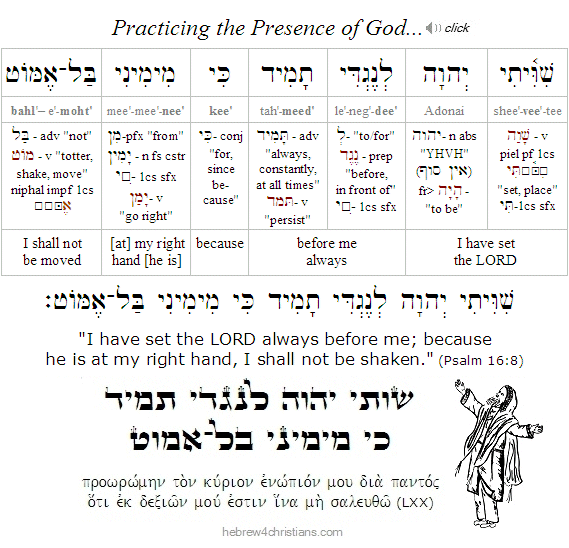 |
Finding deliverance from profane thinking requires concentrated focus, or "kavanah" (כַּוָנָּה). As it is written: "We destroy arguments and every lofty opinion raised against the knowledge of God, and take every thought captive to obey Messiah" (2 Cor. 5:10). We are instructed to "bring down reasonings" (λογισμοὺς καθαιροῦντες) and every high thing that is lifted up against the knowledge of God (κατὰ τῆς γνώσεως τοῦ θεου) and to bring every thought "as a captive" to the obedience (ὑπακοὴν, from ὑπό: by, under, + ἀκούω: hear, obey) of Messiah. We can do this negatively by fighting against evil thoughts and censoring the inner evil of our hearts, or we can do this positively by being "captivated" by the words and love of Yeshua, and often we have to do both! This is the deeper meaning of "profanity" - to deny reality, to live in willful ignorance, and to miss the wonder of God's presence. If we sanctify God in our hearts, we will be far less likely to use God's name in vain, of course.
God invites you to come to Him for relationship... Since the LORD is a Person, He wants to know you as a person. He is not interested in formulaic prayers, religious rituals, or your membership at a particular religious organization. God wants to know your inmost thoughts and heart. Drawing near to God is God's way of drawing near to you... In other words, as you draw near to God, He will draw near and touch you (James 4:8; Psalm 145:18; Isa. 55:6).
Hebrew Lesson
Exodus 20:7a Hebrew reading (click):
 |
Truth and Passion...

12.11.24 (Kislev 10, 5785) During the prophesied "end of days" (אַחֲרִית הַיָּמִים) many people will have an outer "form" (μόρφωσιν) of godliness but will deny its inner power, since their hearts will be turned away from the truth: "And because lawlessness (i.e., ἀνομία, lit. a=without; nomos=Torah) will be increased, the love of many will grow cold" (Matt. 24:12). In this connection we note that the Hebrew word for "falsehood" (or "lie") is sheker (שֶׁקֶר), which can also be read as shekar (שֶׁקַר), meaning "that which" (-שׁ) makes you cold (קַר).
The truth of God can't be known apart from His passion, inner fire, desire. Indeed, the Hebrew word for "sin" (חֵטְא) means "missing the mark," though that essentially means missing the revelation of God's glory because lesser fears consume the heart and cool the passion for the truth...
"Be still and know that I am..." Prayer is a type of listening (shema), a turning back to heed the message of God's love and hope in Messiah. Indeed, the word "teshuvah" (תְּשׁוּבָה), often translated as "repentance," also means an answer or response to a question. God's love is the question, and the heart's response is the answer.
Some of us may find it difficult to trust, to open our heart to receive grace and kindness. For those of us wounded by abandonment, it can be a great struggle to hear the voice of God calling you "beloved," "worthy," "valued," and "accepted." When you find faith to receive God's word of love, however, your heart comes alive and you begin to heal...
Amen. Let us ask the LORD to better know His heart by kindling his fire within our hearts!
Hebrew Lesson
Psalm 46:10 reading (click):
Raised from the Dust...
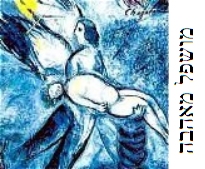
The following is related to our Torah reading for this week, parashat Vayishlach...
12.11.24 (Kislev 10, 5785) In his appeal to God for help before confronting his estranged brother Esau, Jacob prayed: "I have been diminished (קָטנְתִּי) by all the kindness and all the truth you have done for your servant" (Gen. 32:11).
Jacob was "made small" through the revelation of God's love and truth, and the focus shifted away from himself to God: "He must increase, but I must decrease" (John 3:30).
Jacob's subsequent wrestling with the angel pictured birth pangs, the throes of his spiritual rebirth. Rashi notes that the word translated "wrestled" (i.e., va'ye'avak: וַיֵּאָבֵק, Gen. 32:24) is related to the idea of "raising the dust" (i.e., avak: אָבָק), which suggests resurrection from the dust of death. The struggle – the death match – was to bury the old Jacob and to raise him up as "Israel," a prince of God the King.
קָטנְתִּי מִכּל הַחֲסָדִים וּמִכָּל־הָאֱמֶת
אֲשֶׁר עָשִׂיתָ אֶת־עַבְדֶּךָ
ka·tohn'·tee · mee·kohl · ha·cha·sa·deem · oo·mee·kohl · ha·e·met
a·sher · a·see'·ta · et - av·de'·kha

"I am not worthy of the least of all the deeds of love and faithfulness
that you have done for your servant."
(Gen. 32:10)
Yeshua taight that we must "forget ourselves" in order to discover what really matters: "If anyone would come after me, let him deny himself and take up his cross and follow me. For whoever would save his life will lose it, but whoever loses his life for my sake will find it" (Matt. 16:24-25). Note that the phrase translated "deny himself" comes from a Greek verb (ἀπαρνέομαι) that means "to affirm that you have no acquaintance or connection with someone," and is the same verb used when Peter denied the Messiah (from α-, "not," + ῥέω, "to speak").
To deny yourself, then, means to be willing to disregard your own personal interests in a given moment -- to "betray" the selfish impulse that seeks to rule the ego in your daily life. It is a "putting off" of the old nature and a "putting on" of the new (Eph. 4:22-24). Put positively, denying yourself means "forgetting yourself" because you are overwhelmed with God's great love for your soul, and therefore you no longer "know yourself" according to the flesh but according to the Spirit of God (2 Cor. 5:16-17).
Amen. And may the Lord make this real to us all...
Hebrew Lesson
Psalm 30:5 reading (click):
Telling God your name...
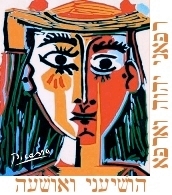
The following entry is related to this week's Torah reading, parashat Vayishlach...
12.10.24 (Kislev 9, 5784) Some people make it the business of theology to know God's Name, but God begins by first asking for our name instead. Recall that Jacob had disguised who he really was in the hope of obtaining the blessing (Gen. 27), though his duplicity forced him into an exile that lasted until he was finally willing to be honest with himself. And like Jacob, each of us must answer God's question: "What is your name?" (Gen. 32:27).
When we "wrestle through" this question to face who we really are, we encounter God and find our blessing, that is, our true identity. Each of us has to go through the process of being renamed from "manipulator" (i.e., Yaakov) to "one in whom God rules" (i.e., Israel). But note the order: it is only when we "tell God our name," that is, own who we really are, that He meets with us "face to face" (Gen. 32:30). You will not be able to say, "I will not let you go unless you bless me," until you are willing tell God your name (Gen. 32:26-27).
Let me add that while "telling God your name" can be painful and even frightening, it is not the last word about who you really are. We are faced with an inner dualism as we struggle to take account of our lives. On the one hand, we need to confess the truth of our sinfulness, brokenness, and so on, while on the other we must endure ourselves and find faith that God's blessing nevertheless belongs to us, despite the mess we've made of our lives....
We have to be willing to accept God's new name for us and to believe that God will miraculously transform our inner nature for good. We are renamed from Yaakov to Israel, though we still know ourselves as both. Jacob was renamed "Israel" but afterward he walked with a limp, seeing both the new and the old natures within him. Jacob still struggled, though his struggle was now focused on walking as God's beloved child in this world: the limp was given to help him lean on the Lord for support.
Part of spiritual growth involves learning to "endure yourself." Many are able, it seems, to receive the hope that they are forgiven for their past sins, but they are subsequently scandalized by encountering their own inner struggles, and they eventually despair over their ongoing weakness... Tragically, some are even tempted to regard the warfare within the heart as a sign of being devoid of all saving grace! We must remember, however, that there is a real struggle between the desires of the flesh and the desires of the Spirit (Gal. 5:17). We must never move away from simple trust in the message of God's unconditional love demonstrated at the cross; we must never seek to legitimize our place in God's heart.
When we walk by the Spirit, we are no longer under the law (Gal. 5:18), which is to say, we no longer need to justify ourselves but instead trust in God's power to transform us. Just as we are saved by the love of God, so are we changed, so do we grow.
Hebrew Lesson
Psalm 116:1-2 reading (click):

Do you now believe?

12.10.24 (Kislev 9, 5785) "Do you now believe?" (John 16:31). Some people are scandalized by what they call "easy believism," or the idea that we only need to believe in Yeshua to be saved. Sometimes they disparage this teaching by calling it "cheap grace" or "sloppy agape," though in fairness it must be stressed there is nothing easy about truly believing. What is easy, however, is merely professing that you believe without it having any real effect on your life. But believing in God is not a tautological truth like 2+2= 4, nor is it an abstract theological supposition used to explain why the universe exists. Nor is it the passive acceptance of a church creed that confesses faith in Christ as the Savior of the world...
No, believing in God, and particularly in Yeshua, is life-transformative, for there is no greater truth than the living presence of Christ experienced within the trusting heart, for this reality changes and recreates everything. It makes "all things new."
Anyone can say the words, "I believe in Jesus," but the real test is whether He is alive within your heart. Is he the source of your life? Do you draw life from Him? Anyone can claim they are saved, but it is a miracle greater than splitting the sea to undergo divine metamorphosis, to be given a heart that loves unconditionally, that dies to pride, and that lives as the servant of all. Yeshua asks, "Do you really believe? Many will say to me in that day, 'Lord, Lord...' but I will say to them, 'I never knew you...' (Matt. 7:22-23). It's not just hard to believe (obey), it's impossible apart from God's radical intervention. It is the Spirit that gives life; the flesh is no help at all (John 6:33).
Living by faith does not mean we merely profess that Christianity is true or that we "talk theology" like some college professor. It's one thing to believe that, and another to believe in... Human reason can rightly infer that a morally good, all-powerful Creator exists, for example (Rom. 1:20), but it is unable to know God's compassion and love that way... Love requires trust, "taking to the heart." We are to "know this day and turn to your heart (והֲשֵׁבתָ אֶל־לְבָבֶךָ) that the LORD is God in heaven above and on the earth beneath; there is no other" (Deut. 4:39). We need to know truth (cognitive) and to be moved by the heart (emotional); we need both Spirit and Truth (John 4:24). "For all things come from You (כִּי־מִמְּךָ הַכּל), and from your hand we give to you" (1 Chron. 29:14). Teshuvah centers on Yeshua our Savior: turn to believe in Him!
Regarding the question of faith, Kierkegaard once wrote, "The easiness of Christianity is distinguished by one thing only: by the difficulty. Thus the Master's yoke it easy and its burden light -- yes, for the person who has cast off all his burdens, all of them, the burdens of hope and of fear and of despondency and of despair -- yet it is difficult." The issue here has to do with certainty of faith, the "infinite certainty" that is faith's passion, versus the "probabilistic" apprehension or acceptance of truth that comes from historical or rational investigation... Yes, the difficult thing is to truly believe in the "for-you miracle" of God's love.
Sins can be like great possessions that are difficult to give up. Among other things, we must forgive ("give away") our sins (both our own and those against us), and that means trusting God enough to bear our wounds (and our sicknesses) for us. Forgiveness allows us to move on with our lives by letting go of the pain of the past (2 Cor. 5:16). The atonement of Yeshua cost God everything, and yet is of no spiritual value until it is accepted into the heart. It is "easy" to understand this, but it is difficult to genuinely live it.
Thank the Lord there is a special prayer for those of us who sometimes struggle with the struggle to surrender everything to God's care: πιστεύω· βοήθει μου τῇ ἀπιστίᾳ - "I believe, help thou my unbelief" (Mark 9:24). Amen.
Hebrew Lesson
Deut. 4:39 reading (click for audio):
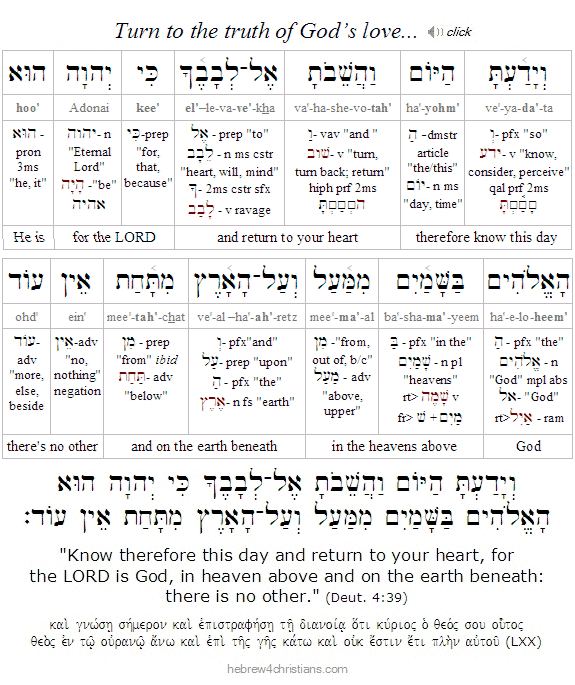 |
The Breath of His Life...
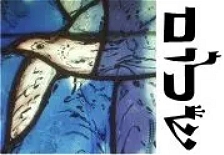
12.10.24 (Kislev 9, 5785) The Holy Spirit is called "Ruach HaKodesh" (רוּחַ הַקֹּדֶשׁ), the "breath of the Holy One" (נשימתו של הקדוש ברוך הוא). The Spirit is metaphorically likened to our breath to indicate how intimate and essential God is to our own lives.
By ourselves we are nothing (כְּלוּם), without substance or breath, for the Lord is our Maker and the one who imparts nishmat chayim (נִשְׁמַת חַיִּים), the "breath of life" (Gen. 2:7). If this is true of the natural, how much more so is it of the spiritual? We are as powerless to give pulse to our natural hearts as we are to give life to our spiritual existence. How does the natural heart receive its secret pulse? What is the origin of this "spark" of life within the body? As the lower, so is the higher...
We must be reborn to be made alive in the realm of the spirit. Such rebirth originates "not of blood, nor of the will of the flesh, nor of the will of man, but of God" (John 1:13). It is the Spirit of God (רוּחַ אֱלֹהִים), the Breath of the Holy One (נשימת יהוה), that quickens us to the truth of spiritual reality. Yeshua said this life was as mysterious as the motions of the wind: "The wind blows where it wishes, and you hear its sound, but you do not know where it comes from or where it goes. So it is with everyone who is born of the Spirit" (John 3:8). Just as the origin of the pulse of our physical life is a mystery to us, so is the origin of life from above. Just as we received nishmat chayim (נִשְׁמַת חַיִּים) to partake of the atmosphere of this realm, so we need receive nishmat chayim chadashah (נשמת חיים חדשה), a new breath of life to partake of the atmosphere of the heavenly realm of the Spirit.
The life of the Spirit of God imparts the "fruit of the Holy Spirit" (פרי רוח הקודש) that is, supernatural qualities of heart (i.e., middot ha'lev: מידות הלב) that are evidence of newness of life. These fruits are spiritual in nature, derived from the heart of God: "love, joy, peace, patience, good will," and so on (see Gal. 5:22-23). Yeshua explained that a transformed life is a miracle of God: "The Spirit is the one who gives life; human nature is of no help! The words that I have spoken to you are spirit and are life" (John 6:63).
Hebrew Lesson
John 6:33a reading (click for audio):
If you feel breathless and filled with anxiety, ask the Father for the comfort of the Holy Spirit. "If you then, though you are evil, know how to give good gifts to your children, how much more will the heavenly Father give the Holy Spirit to those who ask him?" (Luke 11:13). By faith may you "receive the Holy Spirit" (John 20:22).
Honesty and Deliverance...

12.09.24 (Kislev 8, 5785) "Those who are well have no need of a physician, but those who are sick. I have not come to call the righteous but sinners to repentance" (Luke 5:31-32). Every one of us has a "dark side" or a "shadow self" that has destructive and selfish urges. We try to conceal this truth from others (and even ourselves) but such denial doesn't change the reality within our hearts (Matt. 5:19; Jer. 17:9; Eccl. 9:3). Indeed, when we pretend to be something we are not we are more likely to be overwhelmed by dark forces hidden within us. Paradoxically we most vulnerable when we think we are well, that is, when we deny our sickness our heart and minimize our need for deliverance.
The way of healing is to "own" or confess the truth of our inner condition and to acknowledge the dark passions that sometimes overmaster our best intentions. We must give ourselves permission to allow the hurt, angry, and fearful voices to be heard and sanctioned within us - and then to bring these dark and hidden aspects of our selves before God for healing. The failure to do so will split the soul and cause the hidden aspects of the self to seek "revenge" upon the "parent self" that censors their message. The struggle within our hearts is real and we should attend to it seriously. Denying evil by pretending that we are okay, or by blaming others, blinds us to the truth of our ongoing need for deliverance. May God help each of us to be honest with ourselves and to confess our great need before our Heavenly Father.
Why do we have such difficulty being genuinely honest with ourselves? Despite the fact that we may profess that we are "sinners saved by grace," we often make excuses for our failures, rationalizing that we are not "that bad," and therefore we postpone genuine teshuvah (repentance) and trifle with our spiritual lives. We do this because we feel an almost irresistible desire or "need" to justify ourselves, to "save face" by pretending that we are not "incurably sick," or by attempting to find something about us that makes feel valuable and worthy. As H.L. Mencken once wittingly noted, "the 'truth' that survives is simply the lie that is pleasantest to believe."
The LORD wants us to be truthful in the "inward being" (Psalm 51:6), though that truth will cost us something, namely whatever worldly gains we might find through self-deception... Opening our hearts to divine examination eventually means colliding with the world of men and their conspiracies, since the godly man no longer abides their presence (Psalm 1:1-2). The Apostle Paul said there was an exclusive disjunction between seeking the approval of men and of the approval of God: "Do I seek to please men? for if I yet pleased men, I should not be the servant of the Messiah (Gal. 1:10). Likewise we are told not to deceive ourselves (lit., "reason around" the truth, from παραλογίζομαι, from παρά, "around, beside" and λογίζομαι, "to reason") by merely hearing the truth of Scripture and not living it (James 1:22). God is not interested in "lip service" any more than he desires heartless sacrifice (Isa. 29:13; Hos. 6:6; Matt. 15:9). "Let your love be genuine (ἀνυπόκριτος, without a "mask" put on), abhor what is evil; cling to what is good (Rom. 12:9). God abhors those who pretend to know Him but who are really spiritual impostors (Matt. 7:21-23; 25:11-12; Luke 6:46).
Tragically (and paradoxically) many people can talk themselves into believing something without really believing it, and that is perhaps the most dangerous thing of all (Matt. 7:22-23). On the other hand, some people can talk themselves into believing (or accepting) something that they know is untrue (or morally wrong), and that self-deception leads to inner fragmentation, chaos, and dissolution of character. A "double-minded man is unstable in all his ways" (James 1:8). As I have said before, the word translated "double-minded" is dipsuchos (δίψυχος), a word formed from δίς, "twice" and ψυχή, "soul." The word describes the spiritual condition of having "two souls" that both want different things at once -- a state of inner contradiction and ambivalence.
Hebrew Lesson
Psalm 51:6 reading (click):
Thank the LORD our God that there is real healing for our inner dividedness, ambivalence, and double-mindedness, but that healing demands rigorous honesty. As Kierkegaard rightly observed: "No person is saved except by grace; but there is one sin that makes grace impossible, and that is dishonesty; and there is one thing God must forever and unconditionally require, and that is honesty." Therefore we are instructed to confess our faults one to another, and pray for one another, that we may be healed (James 5:16). May the LORD our God help each of us to be wholehearted in our devotion to Him.
Finally, friend, a closing thought. Do not despair by thinking that you will never change. Simply enter into the presence of God in Yeshua. That is what "self-denial" means. Turn to God and know his heart. When you do, you receive a heart to know him in return... Believe to see the goodness of the LORD in your midst. Amen.
The Grace of Torah...

12.09.24 (Kislev 8, 5785) It's been rightly said that God doesn't have any grandchildren in heaven, only children: He is not your "heavenly grandfather" but your heavenly Father (אֲבִיכֶם בַּשָּׁמַיִם). And just as a good father disciplines his children for their own good, so does your Father in heaven (Prov. 3:11, Heb. 12:5-7). The discipline of God leads you to do teshuvah for your ultimate good (Rom. 2:4). As C.S. Lewis once remarked, God doesn't love you because you are good, but He will make you good because He loves you.
The Hebrew word derekh (דֶּרֶךְ), often translated as "way," metaphorically refers to the journey, manner, or course of your life. Because God is tov v'yashar (good and upright), he teaches his children to be yesharim (יְשָׁרִים), i.e., those who walk uprightly. Indeed, the way of the LORD (דֶּרֶךְ יהוה) is "to do acts of charity and justice" (לַעֲשׂוֹת צְדָקָה וּמִשְׁפָּט) (Gen. 18:19). This is the "straight way" (derekh ha-yashar), or the "narrow path" that leads to life (Matt. 7:14). The yesharim are known by the good fruit of their lives (Matt. 7:15-23).
Note that the verb used in this verse (יוֹרֶה) comes from the root yarah (ירה) -- the same root used in the word Torah (תּוֹרָה). Because the LORD is good and upright, He gives us Torah for our lives. God educates us for eternity by imparting to us moral and spiritual truth. As King David taught, "Happy is the man who delights in the Torah of the LORD and meditates upon it day and night" (Psalm 1:1-2).
Surely followers of Yeshua the Messiah should likewise love and study the Torah. After all, Yeshua was the Angel of the LORD (מַלְאַךְ יהוה) who spoke at Sinai when the Torah was given to Israel (Exod. 3:2, Deut. 4:12), and he is the same "yesterday, today, and forever" (Heb. 13:8). During his earthly ministry, Yeshua studied Torah and clearly taught us to keep the ways of the LORD (Luke 4:16, Matt. 7:12). He repeatedly affirmed the central teaching of the Torah – the Shema –putting the duty to love God above all else (Deut. 6:4-6; Mark 12:29). Indeed, the "New Covenant" itself promises that the Torah would be written "upon our hearts" (Jer. 31:31-33, cp. Matt. 26:28) and is inscrutable apart from it – just as Yeshua himself clearly taught (Luke 24:27; see also: Matt. 5:17, Rom. 15:4, 1 Cor. 10:11, 2 Tim. 3:14-17, etc.).
Our Lord Yeshua is called derekh ha-chayim (דֶּרֶךְ הַחַיִּים), the way of life (John 14:6). He is the Wonder of the Torah, its living expression and goal. With the psalmist, therefore, we earnestly pray: גַּל־עֵינַי וְאַבִּיטָה נִפְלָאוֹת מִתּוֹרָתֶךָ / gal einai v'abitah nifla'ot mi-Toratekha: "Uncover my eyes and I will behold wonders from your Torah" (Psalm 119:18). Amen.
Hebrew Lesson
Psalm 25:8 reading (click):
It's important to keep in mind that by the word "Torah" I am not referring to the Rabbinical traditions of post-Temple Judaism but rather to the "instruction" or "teaching" of the LORD God of Israel. As I've repeatedly explained in my writings, Torah is always a function of covenant -- as man's responsibility -- and therefore Torah has changed in light of God's different covenantal actions in history (Heb. 7:12). Followers of Yeshua abide by the "law of Messiah" (תּוֹרַת הַמָּשִׁיחַ), that is, the teaching of Yeshua the Messiah (John 14:15, Gal. 6:2, 1 John 5:2, 2 John 1:6). For more information about this subject, please see the article entitled "Olam Ha-Torah" as well as various other articles on this site.
This week's Torah:
Parashat Vayishlach...

We always read parashat Vayishlach a week or two before Chanukah when we connect the vision and ministry of Joseph with that of Yeshua, the Suffering Servant Savior of the world...
12.08.24 (Kislev 7, 5785) Our Torah portion this week (i.e., Vayishlach) contains the famous account of how Jacob "wrestled" with the Angel of the LORD (מַלְאַךְ יְהוָה) just before he encountered his estranged brother Esau. During the "grappling" session (recall the meaning of Jacob's name), the Angel injured Jacob's thigh, but Jacob refused to release his hold until he received the blessing (הַבְּרָכָה). The LORD then asked him, "What is your name (מַה־שְּׁמֶךָ)?" And he said, "Jacob" (i.e., Ya'akov: יַעֲקב). The Angel then replied, "Your name shall no longer be Ya'akov (i.e., "heel holder" [of Esau]) but Yisrael (i.e., "contender with God"), for as a prince (i.e., sar: שַׂר) you have contended (i.e., sarita: שָׂרִיתָ) with God and with men and have prevailed" (Gen. 32:28). This encounter teaches that Jacob finally received the blessing when he refused to let his past determine his spiritual identity and destiny. With God's help he overcame the pain and shame of his past through faith.
Likewise each of us must "go to Peniel" to wrestle with the Angel, just as each of us must be renamed from Ya'akov ("a supplanter") to Israel ("a prince with God"). When the Spirit of Truth asks, "What is your name," may the LORD God grant you the courage to refuse to "let go" until you receive the divine blessing of love and acceptance...
The word vayishlach (וַיִּשְׁלַח) means "and he sent" (from shalach, שׁלח, "to send"). The sages comment that like Jacob, each person of faith is a shaliach (שָׁלִיחַ), or an "emissary" sent out to bear witness to others of the reality and true blessing of God. And may the LORD God of Israel help you, friend, serve as an extension (שְׁלוּחָה) of His loving and gracious Presence to all you may encounter this day.... L'shavuah tov b'Yeshua Adoneinu, chaverim...
Hebrew Lesson
Genesis 32:3a reading (click):
The Language of Pain...
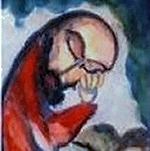
"Your place in heaven will seem to be made for you and you alone, because you were made for it -- made for it stitch by stitch as a glove is made for a hand." - C.S. Lewis
12.06.24 (Kislev 5, 5785) Regarding the "language of pain," the Talmud discusses how the bleeding of a stubbed toe corrects the relationship between man and God as if it were an "olah sacrifice" (whole burnt offering). They elaborate that this would be the case if it was the second time the toe was injured before recovering from its first injury, and that it had occurred on the right toe when the person was on a mission to perform a mitzvah.
The reference to the right toe recalls the anointing of the priest for service (Exod. 29:20) as well as the healing of a leper (Lev. 14:25). The sages note that this signification of the blood is not the result of a punitive measure but instead indicates a wound that brings the heart closer to God. In the case of an injury to the toe while doing a mitzvah, the sufferer is brought to teshuvah (repentance), not because of disobedience, but in order to learn compassion, and to affirm that everything comes only from the Lord (Psalm 136:25-26). "Let this suffering be for atonement," by which is meant, may this too bring my heart closer to God's love... The sages brought this case up as a counterexample to the notion that all suffering or pain is some form of punishment from heaven, and argue that on the contrary, some suffering is the result of God's decree. This is the message of the Book of Job as well.
A pain-free life is not necessarily a sign of blessing, of course, since it might indicate that the person is no longer being "educated for eternity," and therefore that God no longer talks to him anymore. This is one way to understand the irony of why the wicked prosper in this world, for they shall have received their reward here, but nothing in the world to come (Matt. 6:5; Job 27:8). On the other hand, pain can "goad" the soul to draw near to God for healing, which is the essential and consummate blessing, after all... Pain also teaches us to be humble, to consider our own frailty and need, and to learn compassion by extending that consciousness to people as well. The greatest example of this is found in our Savior Yeshua, who emptied himself and suffered in wholehearted service to his heavenly Father (see Isa. 50:6; Phil. 2:7-8; Heb. 2:10, 4:15; 5:8-9. 7:25, etc.).
The focus of spirituality is not about finding comfort through fulfilling our desires as much as it is devotion to the truth by exercising faith in the divine ideal. We come to God to conform to his will, not because religion is a form of therapy or another self-improvement project. Stoicism has made a come-back in the "postmodern" world, offering people a variety of philosophical diversions meant to diminish the significance of what happens in this world and to direct the mind to a "nirvana-like" equanimity (ataraxia), as if the final reconciliation has already taken place. Such detachment from the world, however, is incompatible with faith in God's omnipotence and love, since it assumes that this age is not meaningful or offers no blessing. Genuine faith in God allows us to mourn when sorrow is called for and to rejoice in times of joy; it does not negate the reality of history nor deny God's providential love in the temporal realm. This is part of the tension we have in a "two-tiered" reality, which requires us to both affirm the reality of life in this world - the mixed bag of sorrows and joys we experience in our sojourn - and the promise of the substance to come, when all tears will be wiped from our eyes and our love will be unhindered by sin... The tension is dialectical and complex: we stand in relation to God not only when we are confronted by his truth, but in our seeking and in the ordinary ups and downs of our everyday existence. As C.S. Lewis said, those who choose a life of truth over happiness often acquire both, whereas those who seek happiness over truth often acquire neither... Therefore as we walk with God, whether in the high places or in the shadow of death, we experience blessing and grace in our lives.
The temptation behind suffering is to regard it as a sign of divine rejection or abandonment. Even when suffering is interpreted to be an invitation to do teshuvah, however, it does not unambiguously indicate where we stand in relation to God... This is true even in light of the work of salvation secured in Yeshua at the cross. Is our suffering a means of correction or "chastening" (Psalm 94; 119:71)? Or is it the result of the common affliction our fallen human nature (Gen. 3:17-19; Job 5:7; 14:1; Rom. 8:20)? Or is our suffering somehow for the sake of the glory of God (John 9:1-3, Matt. 5:11-12)? The writers of the New Testament repeatedly mention fiery trials and tests that would befall God's children (1 Pet. 4:12-13; Rom. 8:17; Phil. 3:10; Matt. 5:11-12; Col. 1:24; 2 Tim. 2:12).
Some have said that this ambiguity makes teshuvah impossible, for you can't repent unless you know what you have done wrong... This raises the question of how much we are able to know of ourselves and our "secret sins," and how these affect us spiritually. "The heart is deceitful above all things, and incurably sick-- who can know it" (Jer. 17:9). The heart is the source of the problem (Mark 7:21) and yet how is it possible to overcome itself? In other words, how can a person be saved from himself, after all? If we are incurably sick, healing must come from a source outside of ourselves... by means of the miracle of regeneration.
We do not relate to God in terms of the "law" but rather in personal terms, by having faith in God's love and grace given in Yeshua (Heb. 4:15-16). The problem of our sin therefore goes beyond "forensic judgment" to that of relationship... Instead of reciting a litany of our sins against heaven, we reach out for connection, for God's mercy and touch, even if we are in darkness about what went wrong or how we lost our way. How have I broken my connection with the Lord? How have I allowed myself to harden and thereby become lost to my true heart? How have I misunderstood? How have I been blind? How have I doubted God's love for me? To "renew our days as of old" we must first understand our need for renewal - for our need to "return to our first love." We return to the Lord in trust that his love is all we need, and that he welcomes us with blessing (Luke 15:11-32).
As Kierkegaard explained, the "self" is really an inner dialog within the heart (a "relation which relates itself to itself"), that is, a self-transcendent relation that witnesses the inner dialog, though we cannot have a true "self" apart from a relationship with what Buber called an "I-Thou" connection. These two relationships are eternal - the one we have with ourselves, and the one we have with God who is the ground of our existence, and therefore we cannot really exist with ourselves apart from having a right relationship with God who establishes who we are. Paradoxically, if all we have is ourselves, we do not have a self at all, and those who seek to have a self must first lose themselves to find themselves.
God's thoughts are not our thoughts nor are our ways his ways (Isa. 55:8), and there is no "recipe" or "formula" to know Him apart from the messy business of struggling within our hearts, seeking and finding, and seeking again, lamenting and praising, and then lamenting again, by living out our evanescent lives in the depths of our needs and our dearest hopes. In times of incomprehensible suffering, a heart connection with God can indeed be quite unsettling, but we must press through the fear, we must "see through the glass darkly" and confess that "God is with us" - even in the midst of this trouble. Faith apprehends God's heart before all else - it trusts that there is unseen good that transcends and constrains the travail of the present hour. Our father Jacob was renamed "Israel" when he surrendered to God's Presence despite everything wrong he had ever done...
Hebrew Lesson
Psalm 55:8 Hebrew reading (click):
 |
Faith not only affirms that God is with us in the present, however, but in the pain of our past as well. In response to the intellectual question, "Where was God in times of our sorrow, our abandonment, our nightmare?" Faith answers: "He was with us." But faith not only affirms that God was with us in the harrowing past but will be with us in the future, in the substance of our yearning for deliverance and for life. Faith "remembers the future" by holding to the promise of God, even in the wake of the past and in the ambiguity of the present...
God is involved in all our sorrows because of his greatness, and his pathos knows when "the flower fadeth and when the sparrow doth fall." As David said: "telleth our wanderings, he collects our tears and stores them in his bottle; the story is written in his book" (Psalm 56:8). The heart of the Lord spans "the breadth and length and height and depth" Messiah, a love that surpasses knowledge (Eph. 3:17-19). "It is higher than heaven-- what can you do? Deeper than Sheol -- what can you know?" (Job 11:8). Despite the sorrows and anguish we sometimes experience in this life, we trust that God will fulfill his promises to us and perfect our salvation at the appointed time. Our exile will then be over and then we will experience the consummate glories and wonders of heaven itself.
Hebrew Lesson
Job 19:25-26 Hebrew reading (click):
 |
Why we Study Torah...

"The word of God is always most precious to the man who most lives upon it." - Spurgeon
12.06.24 (Kislev 5, 5785) Where is it written, "All Scripture is breathed out by God and profitable for teaching, for reproof, for correction, and for training in righteousness, that the godly one may be complete, equipped for every good work" (2 Tim. 3:16-17), it is to be noted that "the Scriptures" referred to here are the Jewish Scriptures (i.e., the Torah, the Prophets, and the Writings), since they are the foundation, the context, and the overarching matrix for the later New Covenant revelation... These were the Scriptures Yeshua used to contextualize and explain his ministry to his followers: "And beginning with Moses and all the Prophets, he interpreted to them in all the Scriptures the things concerning himself" (Luke 24:27). Indeed when Paul wrote these words to Timothy the "New Testament" Scriptures had not yet been compiled by the leaders of the first-generation followers of Messiah.
How important is the Torah, friends? It is essential as the foundation for all that follows, including the very meaning of the gospel message! In other words, the Torah has both a logical, a linguistic, and a theological priority regarding our understanding of the New Testament, and the failure to read in context invariably leads to faulty interpretations and doctrinal errors of various kinds. "To the Jew first, and [then] to the Greek" (Rom. 1:16) is a principle not only of how the gospel message would transcend ethnic Israel to be offered to all the nations, but also about how we should approach the subject of Biblical hermeneutics. God "breathed out" (θεόπνευστος) his revelation in order, and the message itself must be understood in light of that order (Gal. 4:4-5). Moreover, since all of the New Testament finds its semantic roots in the Torah of Moses and the other Hebrew Scriptures, it is important to study Biblical Hebrew first before studying the Greek New Testament, since the Greek words were translated from the ideas originally given in the Hebrew texts of the Torah.
All of the Torah is amazingly wonderful; it is an inestimably great blessing! After all, what would we know of the creation of the universe and of humanity apart from its pages? What would we know of the reason for sin, sickness and death -- and therefore our need for salvation itself apart from the account of the fall of man as described in Book of Genesis? Or what we know of God's moral truth apart from the revelation of the law at Sinai? Or how could we understand the need for sacrificial blood atonement apart from the sacrificial laws given in Leviticus? Or how would we understand the struggle of the journey of faith apart from the Book of Numbers? Or how would we appreciate the essential duty to love God with all our hearts -- the great Shema -- and the corresponding duty to love others as we love ourselves apart from the Book of Deuteronomy?
So the Torah provides the framework by which we read the Gospels, and apart from this framework we miss much of the original intent and meaning of the Bible... Again, that was Yeshua's approach to the Scriptures, after all. He repeatedly explained to his followers that would have to suffer and die, according to the Scriptures (see Luke 9:22, 9:44; Matt. 16:21; Mark 8:31). He told the disciples on the road of Emmaus: "All things had to be fulfilled, which were written in the law of Moses, and in the prophets, and in the psalms, concerning me (Luke 24:44). Indeed Yeshua chided the rabbis of his day saying: "You search the Scriptures because you think that in them you have eternal life; but it is they that bear witness about me" (John 5:39), and he also said, "If you would have believed Moses, you would believe in me, because he wrote about me" (John 5:46).
So love the Torah, friends; learn its message and study its passages carefully. That's good New Testament theology, after all: "For everything that was written in former times was written for our instruction, so that through endurance and through encouragement of the Scriptures we may have hope" (Rom. 15:4). The Holy Spirit still speaks to the heart of those who love Yeshua, the everlasting King of the Jews: "Oh how I love your Torah (תּוֹרָה); it is my meditation all the day" (Psalm 119:97). For more on this topic, listen to the audio (link below) and read the various articles on Torah here on the Hebrew for Christians website.
Hebrew Lesson
Psalm 119:79 commentary (click to listen):
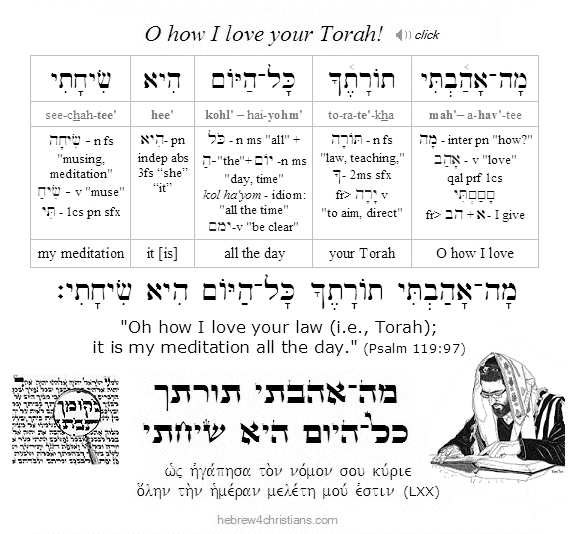 |
The Sigh of Faith...
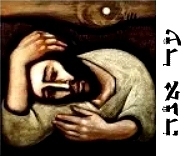
"The now that passes produces time; the now that remains produces eternity." - Boethius
12.06.24 (Kislev 5, 5785) "We groan inwardly as we eagerly await our redemption..." (Rom. 8:23). We sigh deeply because we are suspended between two worlds, living in the ambiguity of an already-not-yet expectation, enduring ourselves as imperfect vessels longing for perfection, trapped between what is and what will be, seeing the unseen, yearning for healing, believing that we shall never die, even as we die (John 11:26). We are restless for our eternal home and long for God's presence as we walk through shadowy vales, facing various temptations, whispering our prayers in the dark. And though we must learn endurance and trust in God's sovereign purposes, our faith nevertheless compels us to cry out, "How long, O Lord?" and "Come, Lord Yeshua" (Rev. 22:20). Our challenge is to keep a positive attitude despite the struggles we face, and therefore we inwardly pray: "Renew within me ruach nachon (רוּחַ נָכוֹן) - "a spirit that says Yes" (Psalm 51:10).
Hebrew Lesson
Psalm 51:10 Hebrew reading:
Surrender means accepting God's will for our lives -- saying "yes" to his promise of love, even if we presently feel empty inside and wonder how long we can hang in there... Saying "yes" implies saying "no" to other things - no to fear, anger and doubt, for example. Tragically there are people who have given up hope for bitterness and despair. Asking the Lord to give us a spirit of "yes" is really a prayer for focus, direction, and the willingness to keep pressing on to our heavenly destiny, especially when the way seems dark and hope seems distant.
Though life is a struggle, we do not lose heart or faint, since even though the outer self is wasting away, our inner self is being renewed (i.e., ἀνακαινόω, "raised up") day by day. "For this light momentary affliction is preparing for us an eternal weight of glory beyond all comparison, as we look not to the things that are seen but to the things that are unseen. For the things that are seen are transient, but the things that are unseen are eternal. For we know that if the tent that is our earthly home is destroyed, we have a building from God, a house not made with hands, eternal in the heavens. For in this tent we groan, longing to put on our heavenly dwelling, that is, substance and reality..." (2 Cor. 4:16-5:3). Meanwhile we must endure ourselves, deal with our resistance to mortification, and ask God for the great blessing of keeping us from evil so that we are not consumed by grief....
Hebrew Lesson
1 Chronicles 4:10b Hebrew reading:
Finding Inner Peace...
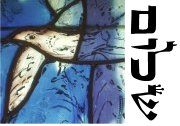
12.06.24 (Kislev 5, 5785) The Hebrew word for peace is shalom (שׁלוֹם), a word that means "wholeness," "completeness," "well-being," and "healing" -- not merely the absence of strife. People often fight with others because they are not made whole within themselves. Just as we cannot really love others until we first learn to love ourselves, so we cannot have peace with others until we first find our own inner healing and peace. Often this means learning to forgive both ourselves and others (including God) so that we can let go of whatever troubles our heart. As we accept ourselves and let go of our fear, we learn to accept others and give up the need to defend ourselves. As Yeshua said, "Blessed (happy) are those who love peace - for they shall be called the children of God" (Matt. 5:9).
אַשְׁרֵי עשֵׂי שָׁלוֹם
כִּי בְּנֵי־אֱלהִים יִקָּרְאוּ

"Blessed are those who love peace,
for they shall be called the children of God."
(Matt. 5:9)
Hebrew Lesson
Matthew 5:9 reading (click):
In most English translations we read, "Blessed are the peacemakers, for they shall be called the children of God." Note, however, that the Greek word translated as "peacemakers" (εἰρηνοποιοί) can also mean "those who love peace," that is, those who long for peace and pursue it (see Psalm 34:14). In Jewish ethical teaching, seeking peace is called redifat shalom (רְדִיפַת שָׁלוֹם) and is considered a primary heart quality. Rabbi Hillel is attributed as saying, "Be of the disciples of Aaron, loving peace and pursuing peace" (Pirke Avot 1:2). Before we can hope to make peace among others, however, we must first know inner peace. If we threaten this peace, we rise up against God, and thereby undermine his will in our lives. Those who love peace will be called the children of God.
Peace is the foundation of God's great work of deliverance in our lives. Yeshua is called Sar Shalom (שַׂר־שָׁלוֹם), the "Prince of Peace" (Isa. 9:6), since salvation brings reconciliation (i.e., peace) between God and man (Rom. 5:1) and sets us free from the fear of condemnation. When we walk in the peace of God (שְׁלוֹם הָאֱלהִים) that "surpasses all our understanding," we are empowered to be a blessing to others in your life. "The fruit of righteousness is sown in peace by those who make peace" (James 3:18).
We understand the Torah commandment, "Thou shalt not steal" (לא תִּגְנב) to imply more than being forbidden to steal from others, but also to include the prohibition against stealing from ourselves by failing to practice inner honesty. When we lie to ourselves, we "steal" from the truth, we rationalize what is unjust, and we thereby rob from ourselves the great blessing of inner peace. Indeed, the traditional sages say that every sin essentially constitutes theft from God. For instance, in his discussion of teshuvah (repentance), Maimonides notes that confession of sin is connected with theft (Num. 5:7). Rabbi Yitzchak of Gur asks, "Inasmuch as there are 365 prohibitions in Torah, why does Torah choose to specify the need to confess sin in regard to theft?" He goes on to answer by explaining that if someone borrows something for a specific use, he is not permitted to use it for any other purpose other than that specified, lest he abuse the privilege and "steal the use" of the item. Likewise, God lends the soul the ability to speak, hear, see, and so on, for the sake of living a godly life. If we abuse these things, for example, by using our lips and tongue to speak evil about another, we are using our faculties for a purpose other than God intended, and that constitutes theft. Therefore every sin is a form of theft, an act of "breaking faith with the LORD," and that is why Torah mentions confession of sin in connection with it.
 |
 |
The Ladder to Heaven...

Our Torah reading this week (Vayetzei) includes the famous vision of Jacob wherein he saw the angels of God ascending and descending a ladder that reached from earth toward heaven.
12.05.24 (Kislev 4, 5785) Recall that after Jacob had received the (second) blessing from his father Isaac, he fled for his life to escape the wrath of his brother Esau. He then came upon a certain place (וַיִּפְגַּע בַּמָּקוֹם) and stayed there for the night because the sun had set. Jacob then "took one of the stones of the place, and put it under his head, and lay down in that place to sleep" (Gen. 28:11). And so began Jacob's journey from his homeland to attain the promise of God, and such is the way for us as well, as we first receive our Father's blessing but soon are consigned to desolate places to await things yet unseen. For the way of blessing comes not from the "fatness of the earth" but from the more rarefied "dew from heaven," which descends in mystery, after the sun has set (Gen. 27:28, cp. Gen. 27:39).
The faithful "descend in order to ascend," which means they first suffer and then they are glorified. This is the pattern of Yeshua, who emptied himself and suffered before he was raised up in everlasting glory. "Unless a seed of wheat falls into the earth and dies, it remains alone; but if it dies, it bears much fruit" (John 12:24; 1 Cor. 15:36). God humbles and tests those whom he loves so they may learn to trust in his promise - his word - and to demonstrate his faithfulness in the end (Deut. 8:3; Rom. 11:36).
Note, then, that after being driven from his homeland Jacob dreamed of the ladder with the angels ascending and descending as the LORD himself announced his blessing over his seed (Gen. 28:12-14). Yeshua, as we learn from the gospel (John 1:51) explained that the vision ultimately referred to him - about how the angels followed him during his ascent and descent as the ladder or "bridge" between God and man. The descent refers to Yeshua's incarnation wherein he entered the realm of this world, clothed in human flesh as the Promised Seed, the "Son of Man" who would restore the lost dominion of Adam; whereas the ascent refers to Yeshua's resurrection - the redemption and return of fallen humanity by means of ascension and glorification as LORD over all. Luther understands the angelic host descending and ascending to reveal how the angels love and follow after their Lord -- whose face they do always behold -- eager to behold His advent as our Savior and Redeemer (see Matt. 18:10; 1 Pet. 1:12; 1 Tim. 3:16). Yeshua is Emanuel (עמנו אל), the Heralded Seed through whom all the families of the earth be blessed (Luke 2:8-15).
 |
Returning to the account of the Torah, after Jacob received this dramatic vision, he awoke from his sleep and exclaimed: "Surely God is in this place, but I did not know!" And he was afraid, and said, "How dreadful is this place! this is none other but the house of God (בֵּית אֱלֹהִים), and this is the gate of heaven" (וְזֶה שַׁעַר הַשָּׁמָיִם, Gen. 28:16-17). Amen, Yeshua is ha'makom (המקום), the appointed "Place" of God, the very "House" of His presence; he alone is the way that leads us back to the Father (John 14:6). Yeshua is the Bridge to the Father, the narrow way of passage that leads to life. He has healed us from the sting of death. He calls out to us in the storm saying, "Take heart. It is I; be not afraid" (Matt. 14:27). Amen.
Hebrew Lesson:
John 14:6 Hebrew reading (click):
Stairway to Heaven....
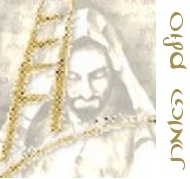
I haven't slept in 24 hours due to serious breathing problems and a bad cough. Please offer a prayer for my recovery.... I don't want to go to the hospital. Thank you friends. - John
12.04.24 (Kislev 3, 5785) The revelation at Sinai and Jacob's vision of the ladder share something in common. Just as Yeshua was the "Voice of the Living God (קוֹל אֱלהִים חַיִּים) speaking (davar) from the midst of the fire" at Sinai (Deut. 5:26), so He was the Ascended LORD standing above the ladder speaking the word of promise (Gen. 28:12-15). In this connection we note that the words for "ladder," (i.e., sullam: סֻלָּם), "voice" (i.e., kol: קל), and "Sinai" (סִינָי) have the same numerical value, which suggests a connection between the two great visions. Yeshua is the Ladder to God, the means by which the Living Torah both descends and ascends for the sake of our deliverance (see John 1:51). The "ladder of Sinai" is not meant for us to ascend but rather is for the LORD our Savior to descend and ascend on our behalf. Yeshua is the way, the truth, and the life (הדֶּרֶךְ וְהָאֱמֶת וְהַחַיִּים): no one can draw near to the Heavenly Father apart from Him (John 14:6).
Hebrew Lesson
Proverbs 30:4 reading (click):
Dealing with the Demonic...

"I feel like crying all the time. I don't want to die, I just don't want to live anymore, if that makes sense. I hate who I am, I can't change it though..." - anonymous teen in a discussion group
12.04.24 (Kislev 3, 5785) Though the Scriptures teach that the realm of the demonic exists, we encounter its presence most usually in thoughts and feelings that entice the soul to act selfishly and to entertain evil imaginations. That is where the battle begins. In the mind. The monster that tempted Eve in the Garden got into her head long before she bit into the fruit from the forbidden tree. And unless we are on guard against the variegated insinuations of godless insanity, we are liable to be under its influence as well...
You might think that demonic oppression is something extraordinary that requires the ministrations of an exorcist, but before any such intervention may be necessary, the mind has been captivated by evil and deranged thinking. Such thinking may have its origins with a demons named "worry," or "shame," or "unworthiness" or "anger." Or they may come from rationalizations or excuses that attempt to console the ego. But a common strategy of the devil is to supply plausible ideas that are designed to deceive us and lead us astray.
Everyone is a theologian of sorts. The difference, however, is whether you are a good theologian or one who is swamped with muddled thinking about what is real. As C.S. Lewis once said, "Good philosophy must exist, if for no other reason, because bad philosophy needs to be answered. The cool intellect must work not only against cool intellect on the other side, but against the muddy heathen mysticisms which deny intellect altogether. Most of all, perhaps we need intimate knowledge of the past."
The devil doesn't care if it is a "holier-than-thou" theology, or a murky mysticism of "absolute tolerance," or a smarmy disavowal of faith in God altogether --- he is equally pleased with the sensualist as well as the atheist, indeed, he is content with any distortion of the truth, for this enables him to "feed" his deluded ego as the "Prince of Darkness." His goal, however, is the same: to devour his victims in darkness and to enslave their hearts in a nightmare...
In a way, dealing with evil thinking is unremarkable. After all, the airwaves of mass media continually disseminate lies, disinformation, and godless thinking in countless formats and by various diabolical stratagems. Whenever we encounter the demonic affecting us, then, we should not panic or be scandalized, but must instead reaffirm the truth of God and resolutely submit to his will (James 4:7). Sometimes this means contradicting the lie by quoting Scripture, offering praise to the Lord, and asking our Heavenly Father for deliverance. In extreme cases, it may be necessary to command the evil spirits to silence their blasphemies and to cease their intrusions. If we find ourselves going out of control emotionally, we are giving ground to the devil. The best tactic is to stay calm and re-center our focus on the Lord who is always present. There is shalom - that is, healing, wholeness, and soundness of mind - as we regain awareness of the greatness and the beauty and the glory of our God.
Hebrew Lesson
Psalm 3:3 Hebrew reading (click):
Jacob's Great Awakening...

"We should be astonished at the goodness of God, stunned that He should bother to call us by name, our mouths wide open at His love, bewildered that at this very moment we are standing on holy ground." - Brennan Manning
12.03.24 (Kislev 2, 5785) In our Torah portion this week (Vayetzei) we read: "Then Jacob awoke from his sleep and said, akhen yesh Adonai ba'makom ha'zeh, ve'anokhi loh yada'ti: 'Surely the LORD is in this place, but I did not know it'" (Gen. 28:16). Jacob had been asleep but was jarred awake. He found himself in awe, sensing the presence of the gateway to heaven. The sages note the grammar here is emphatic, suggesting that Jacob said: "Surely the LORD is in this place -- but am I (וְאָנכִי)? I do not know! (לא יָדָעְתִּי). Jacob had awakened from his dream to realize that he had been dreaming his life away, living in a fantasy world. God is present in this place – but am I? Have I awakened to be present before God?
All religious reality begins with what biblical religion calls the 'fear of God.' It comes when our existence between birth and death becomes incomprehensible and uncanny, when all security is shattered through the mystery. This is not the relative mystery of that which is inaccessible only to the present state of human knowledge and is hence in principle discoverable. It is the essential mystery, the inscrutableness of which belongs to its very nature... Through this dark gate (which is only a gate and not, as some theologians believe, a dwelling) the believing man steps forth into the everyday which is henceforth hallowed as the place in which he has to live with the mystery. He steps forth directed and assigned to the concrete, contextual situations of his existence. That he henceforth accepts the situation as given him by the Giver is what Biblical religion calls the 'fear of God.' - Martin Buber, Eclipse of God
An honest theology must find a place for mystery, for "seeing through a glass darkly," and for the apprehension of awe and wonder. Philosophy (not science) asks the question: "Why is there something rather than nothing at all?" This is a question regarding the "why" of existence itself, the profusion of life as it surrounds us. Is there a reason for existence, a purpose, a direction, a radical meaning? Faith "sees what is invisible" by experiencing reality as revelation: the mystery of life points beyond itself to God's creative and sustaining presence: "In Him we live and move and have our being" (Acts 17:28; Rom. 1:20). Cut open a seed and what do you see, but "the hidden power that makes the fruit grow toward the sky." Likewise what is most real about us is shrouded in profound mystery. We are finite, our lives are short and bounded by darkness, yet we sense God's Spirit, the hidden power that upholds our souls, and we trust that we will indeed live forever because of God's love. As theologian Paul Tillich wrote: "The question of being is not the question of any specific being, its existence and nature, but it is the question of what it means to be. It is the simplest, most profound, and absolutely inexhaustible question – the question of what it means to say something is. The word "is" hides the riddle of all riddles, the mystery that there is anything at all." Though we might try to explain God by way of logic and doctrine, in the end it is the mystery of "Messiah in you - the hope of glory."
When God said, "Let there be light, and there was light" (Gen. 1:3), He seemed to put on light as a robe of the Divine Majesty and Kingship: He wrapped Himself with radiance as a tallit gadol... Da lifnei mi attah omed (דַּע לִפְנֵי מִי אַתָּה עוֹמֵד) – "Know before whom you stand." The whole earth is lit up with God's glory, and every bush of the field is aflame before us -- if we have eyes to see (Isa. 6:3). May it please the LORD to open our spiritual eyes so that we can behold more of His glory and majesty in this hour... Amen.
Hebrew Lesson
Gen. 28:16b Hebrew Reading:
The Fight for Love...

12.02.24 (Kislev 1, 5785) It is written in our Scriptures: "Whatever does not proceed from faith is sin" (Rom. 14:23). This teaches us that sin is not so much disobedience to an external code of behavior as it is abandoning your trust, your identity, and your hope as a beloved child of God. As you believe so you will behave, and as you behave so you believe... Therefore the greatest of sins is to forget the truth of who you really are – a beloved and redeemed child of God! The great temptation of sin is rooted in the lie that we are unworthy people, that God does not really loves us (just the way we are), that He is disappointed in us, and so on. "Self-rejection is the greatest enemy of the spiritual life because it contradicts the sacred voice that calls us the "Beloved." Being the Beloved constitutes the core truth of our existence" (Nouwen). Forgetting who you are leads to forgetting who the Lord is, just as forgetting who the Lord is leads to forgetting who you are.... Therefore the Lord constantly tells us to remember and not to forget the call of his heart, the message of his love.
Sin seduces people to destroy themselves, since it first of all seeks to disown, impugn, and reject what is most important for spiritual life. The devil seeks to murder and destroy all that we need to be eternally healed... And though we might want to escape from this conflict (or to pretend that it's not really here), the battle is intractably real and must be fully engaged until our redemption is complete (1 Pet. 5:8-9). Meanwhile, spiritual struggles can be downright ugly. Would any one deny that the cross of Messiah was a sacred space - and yet it was precisely from there, from the place of blood and suffering and pain and terror, that the grace, beauty, and strength of God for us would shine forth.
To effectively combat the devil, let us first of all pray to the LORD God Almighty and ask for His power, wisdom, and grace to deal with the evil one's devices and strategies used against us (Eph. 6:11-18; Rom. 13:12, 1 Thess. 5:8; 2 Cor. 10:4-5). Since we are not to be ignorant of the devil and his devices (2 Cor. 2:11), let us particularly ask God to remind us of who we really are in the Messiah, and to give us the power of the Holy Spirit to genuine walk in the truth of our sacred identity as his beloved. Let us ask God to help us practically apply the victory given to us in the resurrection of Yeshua. With God's help, may we be bold to take our place at His banqueting table, assured that we are indeed His dear children...
Hebrew Lesson
Proverbs 4:23 reading (click):
 |
His Prevailing Love...

[ The following is related to this week's Torah reading, parashat Vayetzei... ]
12.02.24 (Kislev 1, 5785) Recall that when Isaac "was old and his eyes were dimmed from seeing," he thought to bless his son Esau as the family heir before he died (Gen. 27:1-4). When Rebekah learned of his intention, however, she decided to take matters into her own hands by tricking her husband into conferring the blessing upon his son Jacob instead of Esau. Rebekah likely felt justified in her actions; indeed, had not the LORD himself proclaimed that "the elder would serve the younger" before the twins were born (Gen. 25:23)?
Regarding his role in Rebekah's scheme, Jacob was left with a terrible dilemma: Either he had to defy his mother or to deceive his father. To complicate matters, Rebekah realized that Isaac would discover the charade after the fact, though she may have reasoned that her ruse exposed his gullibility regarding the choice of Esau to be the chosen heir. It was not a real deception, then, but an object lesson for Isaac to wake up before it was too late! Rebekah's plan was to "open the eyes" of her blind husband, revealing to him that he had been guilty of sacrificing the righteous son Jacob for the sake of deceptive Esau.
The duplicity proved to be tragic, however, for everyone involved. Jacob desperately wanted the blessing of his father, but he agreed to get it through false pretenses. "Come close and kiss me my son..." (Gen. 27:26). This was Jacob's deep desire, and yet after "grappling" the blessing from his father he ironically lost his father's embrace. Indeed, Jacob lost not only his father's embrace, but his mother's as well (after fleeing to Haran, Jacob never saw his mother again). Moreover, Jacob's pathetic attempt to "be Esau" severed any hope of a relationship with his twin brother, who afterwards regarded him as his sworn enemy...
So it all went down: Isaac "conferred" the blessing to Jacob, and Esau was understandably enraged over his brother's (and his mother's) rejection of him as the chosen heir of the godly family and steward of the divine promise given to Abraham. When she overheard Esau's plan to exact revenge for his betrayal, however, Rebekah devised the idea to send Jacob to her brother Laban who lived in the city of Haran, some 500 miles northeast of Canaan. To his credit, Isaac finally listened to his wife and reaffirmed the blessing over Jacob (Gen. 28:1-5). And Rebekah's faith in the original prophecy was finally vindicated. Nevertheless, as Jacob fled from his family home in Beersheva, he was confused and uncertain, though God mercifully intervened by giving him the great "vision of the Ladder" and then ratifying the covenant blessing of Abraham and Isaac with him at Bethel (Gen. 28:11-22).
Jacob then continued his journey to Haran. When he finally arrived there, he went to the gathering place of the city well to learn where his uncle Laban (i.e., the grandson of Abraham's brother Nahor) lived and to inquire of his welfare. When the shepherds there told him that Laban was well, they then pointed to a young woman and said "and here comes his daughter Rachel with the sheep" (Gen. 29:6). As a gesture of good will, Jacob then rolled away the stone from the mouth of the well and began watering Rachel's flock. He then excitedly informed her that he was her close relative, her aunt Rebekah's son, who had come from the land of Canaan.
So prophetically and providentially, when Jacob first arrived in Haran he beheld beautiful Rachel who welcomed him in his distress and embodied his hope. It was love at first sight for him. Rachel represented the promise of his blessing to become the patriarch of a multitude of people, and that through his offspring all the families of the earth would be blessed (Gen. 28:14). Because of this, Jacob made haste and soon bartered with his uncle Laban to work seven years for the right to marry his daughter. "So Jacob served seven years for Rachel, but they seemed to him but a few days because of the love he had for her" (Gen. 29:20).
The sages marvel over the perseverance that enabled Jacob to wait seven full years before marrying Rachel, and they ascribe his fortitude to divine grace that made "space shrink and time fly" (Sanhedrin 95b). By this they meant that Jacob's great love overcame the distance of time and space, that is, the sense of the exterior world, something which Jewish philosopher Martin Buber called the world of "It." The world of "It" is objective, outside of you, existing in its own independent modality. The world of "Thou," on the other hand, is that of personal relationship and inwardness, a realm distinct from the world of "It" with its objective categories and relationships. In other words, Jacob's great love made time "stand still" and drew Rachel close to him, despite the passing of years and the distance that separated them. The "math" of this passion made seven years - over 2,500 sunrises and sunsets - seem "as a few days," since the relationship they shared did away with physical and temporal barriers that separated them. Likewise we can endure the "It" of this world and regard it as quickly passing, "as a few days," when we are in loving "I-Thou" relationship with the Lord and with one another. We lose sight of worry, stress, and isolation, and rise above our present circumstances in our communion and in our hope. "For a thousand years in your sight are but as yesterday when it is past, or as a watch in the night" (Psalm 90:4).
When we feel afraid or lonely, the world looms large, threatening, and cold. We feel trapped in its contours and alienated from our own hearts. On the other hand, when we befriend others and engage in honest conversation with them - when "two or three are gathered in My Name" - the miracle occurs and the Lord is present in our midst - timelessly alive, full of welcoming grace, kindness, and love (Matt. 18:20). Moreover, since the Lord is always with us, whenever we sincerely turn to Him we are drawn into his love. As we open our hearts to him, as we engage him in trust, we lose sight of the outer world that confines and defines us, and we find our place in his love and in his blessing. We find our home in Him.
Hebrew Lesson
Jeremiah 31:3b reading (click):
Parashat Vayetzei - וַיֵּצֵא

12.01.24 (Cheshvan 30, 5785) Our Torah for this week (i.e., Vayetzei) includes Jacob's dream of a ladder (i.e., sullam: סֻלָּם) extending from earth to heaven, with the angels of God ascending and descending, and the LORD Himself standing above assuring Jacob of his safe return to the land he had fled. Jacob awoke and responded to the dream with awe: "Surely the LORD is in this place (בַּמָּקוֹם הַזֶּה), and I did not know it." And he was afraid and said, "How awesome is this place! This is none other than the house of God, and this is the gate of heaven." And he called the name of that place Bethel (בֵּית־אֵל) i.e., "the house of God."
The sages interpret ha-makom (הַמָּקוֹם), literally "the place" that Jacob saw, as Mount Moriah, the exact location where Jacob's father Isaac was bound as the "sacrificed seed" and which later became the site of the Holy Temple. Indeed the word makom comes from a verb (קוּם) meaning "to arise," suggesting resurrection and ascension. In later Rabbinical thought Ha-Makom became synonymous with the Name or Presence of God Himself ("God is the place of the world, but the world is not God's only place").
Yeshua referred to Jacob's dream when he said, "Truly, truly, I say to you, you will see heaven opened, and the angels of God ascending and descending on the Son of Man" (John 1:51). Just as Jacob saw the ladder ascending to heaven with the angels of God ascending and descending upon it, so Yeshua told Nathanael that He was the Ladder to God, the sha'ar ha-shamayim (שַׁעַר הַשָּׁמָיִם) - the way into heaven (John 14:6). Indeed, Yeshua is the true Place or "house of God" and its Chief Cornerstone (Rosh Pinnah, Matt. 21:42). The LORD is the resurrection and life, the One who prepares a place for you (John 11:25; 14:2).
A Double Blessing for Jacob...

12.01.24 (Cheshvan 30, 5785) When we think of Jacob as a young man, we tend to recall the dramatic episode when he disguised himself as his twin brother Esau to "steal" the bequeathal of the Abrahamic blessing from his father Isaac. However the Torah tells us that Jacob actually received two blessings from his father. The first blessing was given to a disguised Jacob and it focused on material blessings: the "dew of heaven," the "fatness of the earth," "plenty of grain and wine," political power and hegemony (Gen. 27:28-29), whereas the second blessing was given to an undisguised Jacob and it focused on his role as God's chosen patriarch of the people of Israel (Gen. 28:3-4).
The difference between these blessings turned on Isaac's restored vision. His first blessing was addressed to the character of Esau as his "natural choice," whereas his second blessing looked beyond mere appearances to behold the vision that was originally given to his father Abraham: "Now may El Shaddai bless you, make you fruitful and multiply you so you become an assembly of peoples. And may He grant the blessing of Abraham to you and your offspring" (Gen. 28:3-4).
וְאֵל שַׁדַּי יְבָרֵךְ אתְךָ
וְיַפְרְךָ וְיַרְבֶּךָ וְהָיִיתָ לִקְהַל עַמִּים
וְיִתֶּן־לְךָ אֶת־בִּרְכַּת אַבְרָהָם
לְךָ וּלְזַרְעֲךָ אִתָּךְ
ve·el · Shad·dai · ye·vah·rekh · oht·kha
ve·yaf'·re·kha · ve·yar·be'·kha · ve·ha·yee'·ta · leek·hal · a·meem
ve·yee·ten · le·kha · et · beer·kaht · Av·ra·ham
le·kha · ool·zar·a·kha · ee·takh

"Now may El Shaddai bless you,
make you fruitful and multiply you so you become an assembly of peoples.
And may He grant the blessing of Abraham
to you and your offspring"
(Gen. 28:3-4)

- Isaac's second blessing to Jacob
In a sense, the self-effacing, disciplined, and strong-willed Isaac abandoned his "natural vision" that sought to install Esau as the next patriarch -- despite the objection from his faithful wife Rebekah -- by finally surrendering to the vision of his father Abraham. Isaac's entire life was a sort of overreaction to his father - an "antithesis to Abraham's thesis." By choosing to bless Jacob a second time -- this time with his eyes wide open -- Isaac revealed that he had finally accepted the grace of God that was revealed to his father Abraham.
Recall also that after Esau had discovered that the blessing was given to Jacob, he lamented and pleaded with his father to bestow upon him a blessing as well. It is interesting to note that the "residual" blessing that Isaac gave to Esau was the exact inverse of that given to Jacob: the "fatness of the earth" was put before the "dew of heaven" (compare Gen. 27:39 with Gen. 27:28), indicating that receiving sustenance from heaven is of greater value than finding earthly prosperity.
And indeed, Jacob was "blessed with earthly trouble" his whole life, which caused him to rely on the "dew from heaven," whereas Esau was "blessed" with prosperity (and trouble) that came from trafficking in this world. Regarding Esau it may aptly be said: "Be careful what you wish for -- you just might get it!" (Heb. 12:17).
Hebrew Lesson
Genesis 28:3 reading (click):
Note: Isaac was 60 years old when his two sons were born (Gen. 25:24-26), and according to Jewish tradition, Jacob and Esau were 63 years old at the time of the blessings (Yevamot 6a), making Isaac 123 years old at the time. He later died at the age of 180 (Gen. 35:28-29), making him the longest living of the three patriarchs. The Talmud further states that Jacob first fled to the School of Shem (i.e., Malki-Tzedek) before proceeding to Padan Aram, so that he actually arrived at Laban's home when he was 77 years old.
November 2024 Site Updates
Isaac's Troubled Family..

11.29.24 (Cheshvan 28, 5775) Like Abraham's wife Sarah, Isaac's wife Rebekah (רִבְקָה) had trouble getting pregnant, though Isaac determined never to resort to the use of a concubine as did his father. Indeed, the story of Hagar and Ishmael apparently haunted Isaac throughout his life. Therefore the Torah records that Isaac "entreated" (יֶעְתַּר) the LORD on behalf of his wife. The sages note that this verb (עתר) means to slaughter, alluding to sacrifice, and the midrash explains that Isaac ascended Mount Moriah, pitched a tent, and there offered a lamb during his prayers. This must have been terribly difficult for Isaac, since the trauma of the Akedah never left him. Nevertheless, Isaac's intercession for his wife proved fruitful, and Rebekah later conceived twins (Gen. 25:21).
Rebekah's pregnancy was not an easy one, however, and the children "struggled within her" (the Hebrew verb used here (רָצַץ) comes from a root that means "to run," suggesting that the children were "running in different directions" within the womb; see Rom. 9:11-12). According to Jewish tradition, Rebekah feared she might miscarry and decided to go to the School of Shem (i.e., Malki-Tzedek) to inquire of the LORD. There she was told that "two nations" were in her womb, and "two peoples from within you shall be divided"; the one shall be stronger than the other, the older shall serve the younger" (Gen. 25:23; cp. Rom. 9:11-12). When the children were born, the first came out hairy and was named Esau (perhaps from the Hebrew word esev (עֵשֶׂב), "grass"), whereas the second came out with his hand on his brother's heel, and was named Ya'akov (יַעֲקב, "grappler," from the word ekev (עָקֵב, "heel"). When the boys grew up, Esau was a skillful hunter, an outdoorsman, while Jacob was a quiet man, studying Torah in the tents of Abraham and Isaac (Gen. 25:27). In later Jewish tradition, Esau represented the nation of Rome (and especially Roman Christianity), whereas Ya'akov represented the nation of Israel.
Perhaps opposites attract. The Torah states that Isaac loved Esau whereas Rebekah loved Jacob (Gen. 25:28). Isaac grew up as the quiet, disciplined, and dutiful son of Abraham, and he perhaps saw something in his son Esau which he himself lacked. Rebekah, on the other hand, grew up adventuresome, strong, and outgoing, and she perhaps saw something in her son Jacob which she lacked. At any rate, the sibling rivalry was deep and abiding in the family, and perhaps reflected the problematic differences between the parents themselves. As we will see, Isaac and Rebekah were opposites, just as were their twin sons.
The Torah gives an episode in the lives of the two boys to indicate something of their respective characters. Once when Jacob was cooking lentil stew, Esau came in from the field quite exhausted. Esau said to Jacob, "Let me eat some of that red stew, for I am exhausted!" (Gen. 25:29-30). Some scholars note that Esau's words should be rendered, "Let me swallow from that red-red" (הַלְעִיטֵנִי נָא מִן־הָאָדֹם הָאָדֹם הַזֶּה), suggesting that he was in such a hurry to meet his bodly needs that he didn't even bother calling it "stew" (the Torah parenthetically notes here that this was the reason Esau was later known as "Edom" (אֱדוֹם, "red")). Jacob, however, decided to take advantage of his brother's carnal weakness by manipulating Esau into "selling" him his birthright. The Torah gives a realistic view of this exchange: while Esau "despised" his status as the firstborn son, Jacob was cunningly manipulative and exploited his brother's weakness.
Some time later, when Isaac "was old and his eyes were dimmed from seeing," he sought to bless Esau as the family heir before he died (Gen. 27:1-4). The midrash states that Isaac's eyes were dimmed on account of the ordeal of the Akedah. When he was bound to the altar, Isaac looked up and saw the Throne of Glory with the angels of God circling about. Some of the angels' tears fell on Isaac's eyes, and from that time his eyes had begun to darken. Perhaps Isaac "saw" God as Elohim (אֱלהִים) - the Judge and Ruler of the Universe - but became blind to God as YHVH (יהוה), the Source of Compassion and mercy. The "afterimage" of the Akedah never left him - despite the divinely supplied substitute of the ram - and haunted him later as a form of blindness. Isaac revealed that he was "blind" to the character of Esau, "blind" to his wife's vision regarding Jacob, and so on.
When Rebekah overheard Isaac's plans, she decided to "trick" her husband into conferring the blessing upon Jacob instead of Esau. For his part, Jacob was left with a serious dilemma: Either he had to defy his mother or else deceive his father. And of course Rebekah knew that Isaac would discover the deception after the fact. Rebekah's deception of her husband was intended to show him that he was gullible and thereby easily deceived by Esau's hypocrisy. It was an object lesson, if you will, rather than a outright case of lying. After all, Esau was soon to arrive - venison in hand - and the charade would be exposed for all to see... Apparently Rebekah's plan was to "open the eyes" of her myopic husband, revealing to him that he had been guilty of sacrificing the righteous son Jacob for the sake of deceptive Esau (for more on this, see the "Deception of Esau").
The trickery proved to be tragic, however, for everyone involved. Jacob desperately wanted the love and approval of his father, but he sought to get it through false pretenses. "Come close and kiss me my son..." (Gen. 27:26). This was Jacob's deep desire, and yet after "grappling" the blessing from his father he ironically lost his father's embrace. Indeed, Jacob lost not only his father's embrace, but his mother's as well (after fleeing to Haran, Jacob never saw his mother again). Moreover, Jacob's pathetic attempt to "be Esau" severed any hope of a relationship with his twin brother, who afterwards became his sworn enemy. Away from home and on the run, Jacob's life was also marked with painful irony. He was later deceived by his father (in-law) Laban, his wife Leah, his firstborn son Reuben, and even by his own children (regarding the death of Joseph, his firstborn son from Rachel). And Rebekah's subterfuge cost her dearly, too: after the charade was exposed, Esau turned against her (Gen. 27:45), Jacob was lost to her forever, and her marriage undoubtedly suffered as a result of the duplicity....
When Esau returned from his hunting expedition to receive the blessing, the truth came out, but Isaac tremblingly acknowledged to his son: גַּם־בָּרוּךְ יִהְיֶה / "... he (Jacob, not Esau) shall be blessed" (Gen. 27:33). Isaac "trembled exceedingly" because he realized that he had been laboring under an illusion all these years. He now finally understood the truth about his sons and ratified heaven's decision. It is ironic that when Isaac had his sight, he favored Esau, but when he lost his (physical) vision he was enabled to give Jacob the blessing as the patriarch of Israel.
After Esau realized the implications, he used wordplay used to vent his anger: When he learned that Jacob had taken away his blessing, he exclaimed, "Is he not rightly named "heel holder" (i.e., יַעֲקב, "Jacob," from the word עָקֵב, "heel")? For he has taken me by the heel (יַּעְקְבֵנִי) these two times. He took away my birthright, and behold, now he has taken away my blessing" (Gen. 27:36). Then he cried out, "Have you only one blessing, my Father? Bless me too, my Father!" And Esau wept aloud." This was a terribly poignant moment. Esau didn't accuse his father of being gullible or foolish, but simply implored him for his blessing all the more. Tragically, Esau learned the value of the blessing too late. Despite his many tears, he could not reverse the decree from heaven (see Heb. 12:16-17).
The sages talk about the "voice of Jacob" (קוֹל יַעֲקֹב) and the "hands of Esau" (יְדֵי עֵשָׂו) (Gen. 27:22). Both sons were counterparts of one another, though each needed the qualities of the other to be complete. Esau needed to learn the ways of Jacob - to love Torah, to respect the call of the family to be God's agents in the world, to value the things of heaven, and so on, whereas Jacob needed to learn the ways of Esau - to be a man of action, to work with his hands, to deal with the rough-and-tumble world at large. After Jacob fled to Haran to escape the clutches of his aggrieved brother, he learned to be a shepherd, a husband, and a father. In this way Jacob also learned the value of the blessing given to Esau, although this too was discovered needlessly late in his life.
In Jewish tradition, Abraham is known primarily for the quality of chesed (חֶסֶד), "kindness," "openness," "expansiveness," hospitality, and generosity. His tent flaps were always open to all who happened to come his way. He was outgoing, welcoming, and solicitous for the welfare of others. His son Isaac, on the other hand, is known primarily for his quality of gevurah (גְּבוּרָה), "strength," "focus," concentration, and discipline. Isaac meditated alone in the fields, stayed close to his tent, and never ventured outside the Promised Land. The sages note that chesed unrestrained by gevurah is unbalanced (leading to indiscriminate leniency and gullibility), whereas gevurah unrestrained by chesed is also unbalanced (leading to stern judgmentalism or cruelty). Whereas Abraham was willing to sacrifice his beloved son at Moriah (chesed), Isaac was willing to be sacrificed (gevurah). The ideal is to have both chesed and gevurah function together (חסד וגבורה) to create an inner balance. This ideal is sometimes called tiferet (תִּפְאֶרֶת) and is thought to have been the characteristic later evidenced by Jacob (i.e., after he was renamed "Israel" at Peniel). The enmity of Esau (the extreme of gevurah) haunted Jacob for years, even to the point of wrestling with the Angel of LORD over the issue (Gen. 32:24-29). From such wrestling (i.e., between the ideal of justice and the ideal of chesed) came an inner resolution -- the true blessing from God that resulted in a "limp" -- and the new name of "Israel" (יִשְׂרָאֵל, Gen. 32:28).
Some have speculated what it would have been like for the twins if Isaac and Rebekah had a better relationship. Was their marriage mirrored in the lives of their sons? Why didn't Rebekah tell Isaac about the prophecy about the "elder serving the younger" -- or if she had told him, why didn't Isaac listen to her? And why didn't Isaac tell Rebekah about his plan to bless Esau as the heir of the family? Was Rebekah justified deceiving her husband? Was Jacob justified for believing the promise God had made to his mother that he would be the heir of the family? And why did each parent favor a different child, thereby creating a ferocious sibling rivalry? Rebekah perhaps encouraged Jacob's duplicity because she felt ignored or disrespected by her husband. She therefore found an ally in her son -- a "tool" she could use to find leverage and a voice in the family. But Isaac perhaps encouraged Esau's profanity because he never resolved his inner turmoil regarding the Akedah. Perhaps he inwardly chafed at the ideal of strict justice and wanted to be set free.... After all, Isaac was wounded and left nearly blind from the encounter of God as Judge, but somehow he could not embrace God's sacrificial love for himself...
It's clear that the families of the patriarchs had serious struggles and were often quite dysfunctional. When we idealize these people, however, we tend to forget their humanity, and they may appear disconnected from us - on a higher spiritual level. For example, Isaac is often characterized as the obedient son who was willing to be sacrificed at Moriah at the hands of his loving father, whereas Abraham is characterized as being so "sold out" to God that he was willing to sacrifice the son he so dearly loved. Now while it is gloriously true that the sacrifice of Isaac presents a clear foreshadowing of the greater "Akedah message" of the Gospel (John 3:16), there is a human side to this story that is sometimes overlooked. Jewish tradition states that Sarah died from the shock of the Akedah, leaving both Abraham and Isaac bereaved. Isaac's "personal holocaust" at the hands of his father caused him to suffer from post traumatic stress disorder that profoundly affected him for the rest of his life: He struggled as a son (he fled from his father Abraham after the Akedah), as a husband (he seemed unable to communicate with his wife), and as a father (his preference of Esau over Jacob caused a terrible rift in the family). Most of all Isaac struggled to understand God's love, despite God's justice...
 |
The story of Isaac's family is ultimately one of hope for us all. Isaac was deeply wounded but ultimately found healing, just as his son Jacob later wrestled through his family issues to become "Israel." Take heart, chaverim: God can use us for His kingdom purposes despite whatever dysfunctionality might be in our family backgrounds.
Hebrew Lesson:
Proverbs 11:27 Hebrew Reading (click):
Prayers in the dark...

11.29.24 (Cheshvan 28, 5775) "I believe that you have complete power and authority over the world and its evil, Lord, but I am unsure how that operates in light of its seeming absence.... You stop the mouth of lions, yet the lion's den is astir; you heal the sick, yet we bury our dead; you say we are saved, yet much within us remains broken... My faith tries to see beyond the pale of this temporal world and its shadows, yet I am still bound by it, still subject to its vanity, still in a place of exile. When I look for you here, in this moment, I find my heart homesick and yearning; I seek your face... I call you Father but I feel orphaned in this world... It is not why I suffer that I want to know, Lord, but whether I suffer for you."
"Though the fig tree should not blossom, nor fruit be on the vines, the produce of the olive fail and the fields yield no food, the flock be cut off from the fold and there be no herd in the stalls, yet I will rejoice in the LORD; I will take joy in the God of my salvation (אֱלהֵי יִשְׁעִי), literally, "the God my Jesus" (Hab. 3:17-18). In Your light may we see light...
Hebrew Lesson
Isaiah 12:2 reading (click for audio):
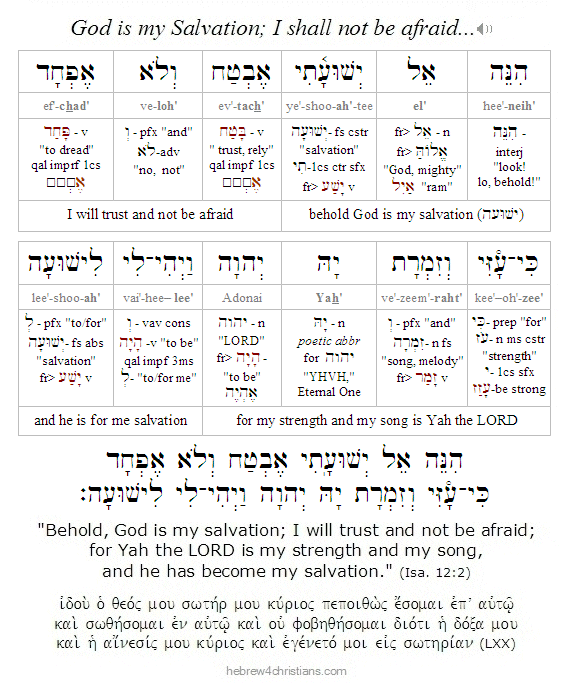 |
Broken and Remade...

The following is related to this week's Torah reading, parashat Toldot...
11.29.24 (Cheshvan 28, 5785) "See to it that no one fails to obtain the grace of God; that no root of bitterness (שׁרֶשׁ פּרֶה) springs up and causes trouble, and by it many become defiled; that no one is immoral or profane like Esau, who sold his birthright for a single meal. For you know that afterward, when he desired to inherit the blessing, he was rejected, for he found no chance to repent, though he sought it with tears" (Heb. 12:15-17; Gen. 27:38).
The LORD says, "my people have committed two evils: they have forsaken Me, the fountain of living waters (מְקוֹר מַיִם חַיִּים), and hewed out cisterns for themselves, broken cisterns that can hold no water" (Jer. 2:13). Spiritually speaking, there are two basic sorts of breaking. One is to be broken by the inevitable sin and ruin of this world, and the other is to be made lev-nishbar (לֵב־נִשְׁבָּר), a broken heart, before the LORD. The former breaking comes from the vain attempt to find life in the broken vessels of this world, and "repentance" is expressed as remorse over perceived temporal loss. This sorrow eventually leads the soul to death (2 Cor. 7:10). To be inwardly broken, on the other hand, requires mourning over your life and returning to God for deliverance (Matt. 5:4). In hunger and thirst for God's righteousness the soul finds eternal satisfaction, since God alone provides the vessel of "living water" we need to live (John 4:14; 7:38). We all must drink from God's fountain of life (מְקוֹר חַיִּים), lest we suffer spiritual dehydration and death....
Are you haunted by an inner ache for love, joy, peace, and life? "Blessed are those who hunger and thirst for righteousness, for they shall be satisfied" (Matt. 5:6). Our inner poverty and need is a disguised grace; our desire for healing reveals the Spirit's invitation. Faith begins with the recognition of our need, since only then will we come to Yeshua for the "Bread of Life" (לֶחֶם הַחַיִּים) and the "Living Water" (מַיִם חַיִּים).
Everything we truly need is found in him, though we must reach out in faith: "For without faith (אֱמוּנָה) it is impossible to please him, for whoever would draw near to God must believe that he exists, and that he rewards those who seek him" (Heb. 11:6). God rewards those who seek him; he answers the heart's cry; he responds to all who trust in his love and salvation. Therefore "ask, and it will be given to you; seek, and you will find; knock, and it will be opened to you. For everyone who asks receives, and the one who seeks finds, and to the one who knocks it will be opened" (Matt. 7:7-8). We are not saved by faith in our own faith, but in the Reality and Power of the LORD God who alone can raise the dead to new life... He gives to the trusting heart a new song of praise for the blessing of His salvation.
Hebrew Lesson
Psalm 40:3 Hebrew reading (click):
Beans for Blessings...

"How can you expect to dwell with God forever, if you so neglect him here?" - Jonathan Edwards
11.29.24 (Cheshvan 28, 5785) From our Torah this week (i.e., parashat Toldot) we read: "Then Jacob gave Esau bread and lentil stew (לֶחֶם וּנְזִיד), and he ate and drank and rose and went his way. Thus Esau despised (בָּזָה) his birthright (בְּכרָה)" (Gen. 25:34). Esau esteemed the honor of being the firstborn son (i.e, bechor: בְּכוֹר) – the high priest of the family – as worth a "bowl of beans" when compared with the drive of his lower nature, and so he tragically forfeited the blessing of God...
Far from regarding service to God as a divine privilege and wonderful opportunity to benefit his family, Esau wanted to be free of such responsibilities and therefore discredited the meaning and promise of faith. Note that the Hebrew word for "lentil stew" (or pottage) is nazid (נָזִיד), which comes from a Hebrew word that means "to boil up" in pride (i.e., zid: זִיד). Sadly, Esau was consumed with his own interests and regarded them as more important than the things of God.
Note further that most English translations of the Hebrew text (i.e., Gen. 25:34) seem to suggest that because he bartered his birthright, Esau had therefore disparaged it, but the text implies continuity: in other words, after he ate, drank, and went his way, then Esau rationalized (or justified to himself) his bad decision by discounting its importance.
Hebrew Lesson
Jonah 2:8 reading (click):
 |
Hakarat Tovah - הַכָּרַת-טוֹבָה

11.28.24 (Cheshvan 27, 5785) The Hebrew word hakarah (הַכָּרָה) means to recognize or to be conscious. Hakarat tovah means recognizing or being conscious of the good, i.e., gratitude. Hakarat tovah is one of the middot ha-lev (qualities of heart) that should mark the lives of those who are grace-based and focused. Gratitude is the product of joy (χαρα) obtained from the gift of being conscious of God's grace (χαρις).
When the firstfruits (i.e., ha'bikkurim: הביכורים) were offered at the Temple, a declaration of "hakarat tovah" was made that expressed thanks for the good the LORD has done for the Jewish people since the days of Ya'akov (Jacob) to the present hour (Deut. 26:3-11). The declaration was intended to raise consciousness by giving voice to the heart and sanctifying the act of giving. It's not enough to "go through the motions" of a ritual: We must become conscious of the good we have received by engaging the heart's response.
Some of the sages have said that hakarat tovah is the foundation of our service to the LORD, called avodat Adonai (עובדת יהוה). Gratitude is the basic response to being conscious of reality -- the reality of God's unending care and sustenance..... Being ungrateful, or kefuy tovah (כְּפוּי טוֹבָה) is a sign that you are not seeing reality correctly. It is an insincere way of seeing, a spiritual impairment, a sickness of heart, that leads you into darkness...
With all that said, please know that I sincerely appreciate that many of you have shown us kindness and mercy over the years of doing ministry. I am deeply touched by your love. We cannot be here without one another, and you are sustaining us. Thank you. - John
Hebrew Lesson
Psalm 100:4 reading (click):
 |
Rebekah's Struggle...

11.28.24 (Cheshvan 27, 5785) When the twins fought within her womb, Rebekah asked, lamah zeh anochi ("Why do I exist?"), and then the LORD gave her the prophecy: ve'rav ya'avod tza'ir – "the older (or "stronger) shall serve the younger" (see Gen. 25:23). God had chosen one of her two children to become the heir of the covenantal promise, and she therefore may have thought it was her purpose or mission in life to help make that happen...
Rebekah's elaborate scheme to trick her husband by exchanging the twins for the blessing was doomed from the outset, since God needed to open the blind eyes of Isaac to truly bless Jacob as the family heir (Gen. 28:1-4). Rebekah's mistake was that she thought it was her job to intervene, or to "help God" by resorting to human intervention – somewhat like her mother-in-law Sarah earlier had sought to "help God" by giving Hagar as a surrogate wife to Abraham to produce the heir. It is a difficult thing to let go and to trust that the Lord will take care of everything. Lamah zeh anochi – Why do I exist, except to bear witness to God's providential plan and to trust in God's power to work all things together for good?
Such a plaintive question, lamah zeh anochi (לָמָּה זֶּה אָנֹכִי) – "Why do I exist?" When she was young, Rebekah seemed strong, secure, and courageous. For example, after meeting Eliezer she unhesitatingly declared her willingness to leave all that she knew to go to a strange land and to marry an unknown man -- all for the promise of an unseen good.
Nevertheless Rebekah was tested. First, she (like Sarah) was barren and for 20 years ached for a child with Isaac. Second, her pregnancy was difficult and the Lord foretold her that though she would have twins, there would be an ongoing conflict between them that would trouble their lives. Third, after bearing the children, Rebekah's turmoil continued: her husband discounted her faith; her sons pathetically competed for the approval of their father; and she was torn to choose to stand with Jacob even if that jeopardized her relationship with both Esau and Isaac. And later, after the scheme to exchange Jacob for Esau was exposed, her worst fear was realized: she indeed lost both of her sons (Esau because of her betrayal, and Jacob after he fled to Mesopotamia).
Struggle after struggle: lamah zeh anochi? Why is this happening to me? Why did I deserve such a fate? Why, but to partake of the truth – to suffer for the sake of the deliverance of God's ultimate blessing for the world. Like Rebekah, we have an important part to play, though assuredly we will be tested and experience challenges along the way. Lameh zeh anochi? To learn to trust God for all that happens in life... Amen.
Hebrew Lesson
Proverbs 3:5 reading (click):
Note that the children "struggled" within her - the Hebrew verb means they collided and ran into one another. Rebekah's was in the midst of an inner battle, and her question was spiritually focused. She first affirmed that life is a blessing (אִם־כֵּן) and then asked why she was in such a state (לָמָּה זֶּה אָנֹכִי). She first sought God for answers, and then God told her that something wonderful was to come, though it would not come without a struggle...
The Will to Believe...

"When you have to make a choice and don't make it, that is in itself a choice." - William James
11.27.24 (Cheshvan 26, 5784) The central issue of your spiritual life is the willingness to do God's will, or the willingness to believe, since these amount to the same thing.... Believe what? That God is real, that He has (personally) called you by name, that he has particularly redeemed you by Yeshua's own blood poured out for your sins, and that therefore that your identity and life are bound up with his mercy and truth... Perhaps this message seems too good to be true, and yet it is the heart's duty to take hold of hope and to refuse to yield to despair, as it is written: "Let not love and truth forsake you; bind them around your neck; write them on the tablet of your heart" (Prov. 3:3).
The spiritual danger here is being "pulled apart" in opposite directions, dissipating the soul so that it will not be unified, focused and directed. Both loving and hating the good is a state of painful inner conflict, ambivalence, and self-contradiction. "Who can bring a clean thing out of an unclean? there is not one" (Job 14:4), yet this is our starting point: "I find it to be a law that when I want to do right, evil lies close at hand" (Rom. 7:21). We are often willing and unwilling, or neither willing nor unwilling, and this makes us inwardly divided, weak, fragmented, anxious, and "soulless." An honest faith that "wills one thing" binds the soul into a unity, or an authentic "self." As King David said, "One thing have I asked of the LORD, that will I seek after: that I may dwell in the house of the LORD all the days of my life, to gaze upon the beauty of the LORD and to inquire in his temple" (Psalm 27:4).
The way to be healed of a divided heart is to earnestly make a decision: "Draw near to God, and he will draw near to you" (James 4:8). There are no conditions given here -- other than your raw need to connect with God for help. "Purify your hearts, you double-minded ones" (δίψυχοι, lit. "two-souled ones"); make up your mind and be unified within your heart: "How long will you go limping between two different opinions?" (1 Kings 18:21). You are invited to come; God has made the way; your place at the table has been set and prepared...
Our Heavenly Father "sees in secret.." As William James once said: "The deepest thing in our nature is this region of heart in which we dwell alone with our willingnesses and our unwillingnesses, our faiths and our fears" (James: Is Life Worth Living, 1896). Or as Albert Camus later wrote, "There is but one truly serious philosophical problem, and that is suicide. Judging whether life is or is not worth living amounts to answering the fundamental question of philosophy" (Myth of Sisyphus, 1942).
It is there, in the secret place of the heart, that the sound of the "knock" is either heard or disregarded (Rev 3:20); the stakes are nothing less than everything. May the Lord give us the willingness to do His will and the courage to believe in His love. And may God deliver us from doubt and from every other fear. May we all be strong in faith, not staggering over the promises, but giving glory to God for the miracle of Yeshua our LORD. May we all be rooted and grounded in love so that we are empowered to apprehend the very "breadth and length and height and depth" of the love of God given to us in Messiah, so that we shall all be filled with all the fullness of God (Eph. 3:14-19). Amen.
Hebrew Lesson
Proverbs 3:3 reading (click):
 |
Finding Real Treasure...

11.26.24 (Cheshvan 25, 5785) "The kingdom of heaven is like treasure hidden in a field, which a man found and covered up. Then in his joy he goes and sells all that he has and buys that field. Again, the kingdom of heaven is like a merchant in search of fine pearls, who, on finding one pearl of great value, went and sold all that he had and bought it" (Matt. 13:44-46). Here Yeshua teaches us that a relationship with God is the true source of joy and value in life, and that all other passions and desires are like "fools gold" when compared with its overwhelming worth... In this connection Soren Kierkegaard wrote: "If anyone thinks he is a Christian and yet is indifferent toward being that, then he really is not one at all. Indeed, what would we think of a person who gave assurances that he was in love and also that it was a matter of indifference to him?" (Works of Love).
The Shema, the "first and greatest commandment," is to love God "bekhol levavkha" (בְּכָל־לְבָבְךָ) with all our hearts, and yet how is that love possible apart from the revelation of the passion of love itself? "We love because God first loves us" (1 John 4:19), and therefore teshuvah ("repentance") is a matter of being in love, celebrating God's heart for us, awakening to its wonder, and being thrilled and overjoyed at its reality. Is this not the essence of the matter? "Shimon ben Yonah, atah ohev oti?" – "Simon son of Jonah, do you love me?" (John 21:17). But how can we love the Lord apart from trusting his heart for us? "Come unto Me," Yeshua says, "live in Me and I will live in you." O Lord God our Savior, deliver us from apathy and indifference! Soften our hearts and awaken us to our great desire and need for you! Hashivenu, Adonai: turn us, O LORD, and we shall be turned; heal us, and we shall be healed! Let know the breadth and length and height and depth of your great love...
So for what do you hope, friend? What are your dreams? Your deepest desires? Where is your treasure? Yeshua cautioned those who sought their happiness in this world: "Do not store up for yourselves treasures upon earth... be rich toward God" (Matt. 6:19-20; Luke 12:21). When we treasure God, our focus is directed toward the eternal reality, and our interest in this world fades. We trust God to meet our daily needs and surrender our future to His care. The only worry we face concerns our own deficiencies in our obligations to the Savior. Our duty is to love God in the truth - bekhol levavkha - with all our heart, having no thought of ourselves. Indeed, self-denial means to quit thinking about yourself (from α-, "not," + ῥέω, "to speak") by accepting what God has done for you. "It is not my business to think about myself. My business is to think about God. It is for God to think about me" (Simone Weil). Amen, where your treasure is, there will be your heart also.
Hebrew Lesson
Jer. 24:7a reading (click):
Redeeming the Time...

I sprained my right wrist the other day and it's painful to type. Thank you for your prayers.
11.26.24 (Cheshvan 25, 5785) In Torah portion Chayei Sarah we read about the death of Abraham, the original patriarch of the Jewish people and great hero of faith:"These are the days of the years of the life of Abraham (יְמֵי שְׁנֵי־חַיֵּי אַבְרָהָם), which he lived..." (Gen. 25:7). It is interesting to notice that this verse mentions Abraham's days (yamim: ימים) but then goes on to state the number of years (shanim: שנים) that he lived. Why, then, does the verse mention the word "days" at all? Moreover, the verse includes the seemingly redundant clause, "which he lived" (אֲשֶׁר־חָי), an addition that appears to be unnecessary to the meaning. Since the sages assumed that there were no unnecessary words revealed in the Torah, however, they discussed why the verse was written this way....
When we reckon a person's life span, we (objectively) refer to their physical longevity in terms of years. This is why we celebrate birthdays, after all, and that's why we refer to someone as being so many years old. Jewish tradition recognizes calendar years, of course (our verse states that Abraham lived 175 years), though the sages understood time primarily in terms of "length of days." When the patriarch Isaac died, for example, the Torah says he was "gathered to his people - זָקֵן וּשְׂבַע יָמִים - "old and full of days" (Gen. 35:29). The sages defined a day (yom: יְוֹם) in terms of the total time of daylight (measured from sunrise to sunset), and defined an hour (sha'ah: שָׁעָה) by dividing that time into 12 equal parts, called a "proportional hour" (sha'ah zemanit: שעה זמנית). Each proportionate hour was then divided into 1080 "parts" (chalakim: חלקים), and each part (chelek: חֵלֶק) was further divided into 76 "moments" (rega'im: רגעים). In other words, the sages measured time by increasingly smaller units (yechidut: יְחִידוּת), and these days, hours, "parts," and moments were used to objectively measure time (interestingly, modern science likewise "divide times" down to the smallest of units, measuring the length of time required for light to travel in a vacuum, i.e., "Planck time." In other words, space and time are known through observing light).
Life is surely more than a quantitative measurement of time, however. What good is a physically long life without a relationship with God? Is it not "vanity of vanities," a "tale told by an idiot, full of sound and fury, signifying nothing," as Shakespeare once said? Time finds its qualitative meaning, its purpose, and its direction only in relationship with God, who is the "beginning, the middle, and the end." Our personal histories likewise have a beginning, middle, and an end that together form a "story" about who we are.... Your life is "going somewhere," and each moment of your day is your means to that end. Each moment leads inexorably to the next, and together these moments form hours, days, and the "days of the years." Teshuvah (repentance) is a conscious choice to turn to God amidst the flux of passing time in order to awaken to the realm of the eternal. Therefore we see the greatest of the tzaddikim (such as Abraham) living out the "days of the years" in conscious awareness of eternity, and of his ultimate destination: "By faith Abraham obeyed when he was called to go out to a place that he was to receive as an inheritance. And he went out, not knowing where he was going. By faith he went to live in the land of promise, as in a foreign land, living in tents with Isaac and Jacob, heirs with him of the same promise. For he was looking forward to the city that has foundations, whose designer and builder is God" (Heb. 11:8-10). Faith affirms that underlying the "surface appearance" of fleeting time (z'man cholef: זמן חולף) is a deeper reality that is ultimately real and abiding (z'man nitzchi: זְמַן נִצְחִי). It "sees what is invisible" (2 Cor. 4:18) and understands that the "present form of this world is passing away," like so many seconds ticked off a clock (1 Cor. 7:31). Time in this world (olam hazeh: עולם הזה) is linear, with a beginning and end in the world to come (olam ha'ba: עולם הבא).
Time is God's gift to us, as well as a test... The story is told about how a man once spied the Vilna Gaon sitting at a table in the evening, weeping over a small piece of paper he had pulled from his pocket. After he wiped away the tears, the Gaon got up and left the room, leaving the paper on the table. The man who oversaw this then went over to look at the piece of paper and saw just seven dots marked on it, nothing else. Overcome by curiosity, the following morning the man asked the Gaon what the paper meant and why it made him cry. The Gaon then explained that each evening he would review how he used his time that day. For every moment he wasted, he would mark a dot on a piece of paper. At the end of the day he would look at the paper and ask God's forgiveness for wasting the time.
The point of the story is that time is a precious gift, and how we choose to live each moment makes an eternal difference in our lives. As Moses prayed to God: "Teach us to number our days aright, so that we attain a heart of wisdom" (Psalm 90:12). We obtain such wisdom (chochmah: חָכמָה) through the study of Torah (talmud torah: תלמוד תורה): "And you shall meditate upon (the Torah) day and night" (Josh. 1:8). As disciples (talmidim: תַּלְמִידִים), we must study the Scriptures to show ourselves approved before God (2 Tim. 2:15). But study alone is not enough. We must practice the truth and walk it out in our daily lives: "Only take care, and keep your soul diligently (שְׁמֹר נַפְשְׁךָ מְאֹד)... Turn not away from your heart all the days of your life" (כֹּל יְמֵי חַיֶּיךָ, Deut. 4:9). Amen. "Above all else guard your heart, for from it are the outflows of life" (תּוֹצְאוֹת חַיִּים, Prov. 4:23).
Hebrew Lesson:
Psalm 90:12 Hebrew reading:
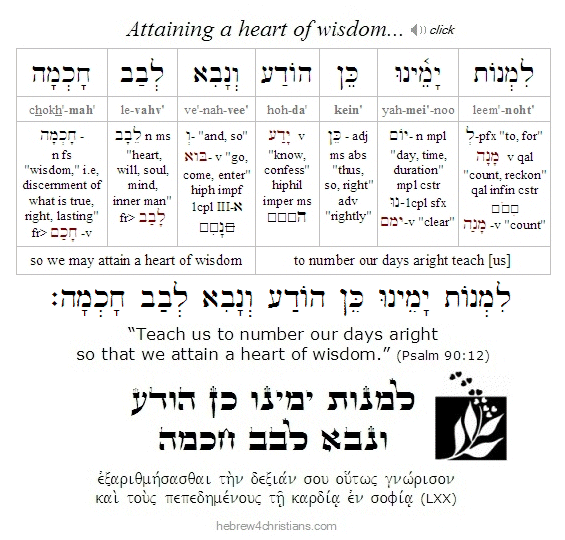 |
As followers of Yeshua, we are instructed to "redeem" (ἐξαγοράζω) the time, because the days are evil (Eph. 5:16; Col. 4:5). The Greek word used here implies exchanging the fleeting moments of the day (z'man cholef: זמן חולף) with the eternal consciousness (z'man nitzchi: זְמַן נִצְחִי) that we will one day stand before the Judgment Seat of Messiah and give account for the "length of our days" (Matt. 12:36-37).
May the LORD help us wake up and refuse to exchange the eternal treasure (otzar nitzchi: אוֹצָר נִצְחִי) of the Kingdom of God for the fleeting vanities of this world (havalim cholefim: הֲבָלִים חוֹלְפִים). As the late Jim Eliot succinctly reminded us, "He is no fool who gives what he cannot keep to gain what he cannot lose." אמן, עזור לנו אלוהים - "Amen, help us O God."
A heart of Surrender...

11.25.24 (Cheshvan 24, 5785) To be thankful for the good things in life is easy, but to be grateful for times of sorrow, hardship, and pain requires wisdom and the earnestness of faith. Such gratitude wells up from the conviction that everything that has brought you to the present moment -- including your wounds, heartaches, and troubles -- is for your good. "To every thing there is a season, and a time to every purpose under the heaven: A time to be born, and a time to die; a time to plant, and a time to harvest that which is planted... A time to weep, and a time to laugh; a time to mourn, and a time to dance" (Eccl. 3:1-4).
In the midst of these inexorable changes arises an inner ache of the soul that searches for meaning, truth, and hope. As it is written:"God has made everything beautiful in its time (אֶת־הַכֹּל עָשָׂה יָפֶה בְעִתּוֹ); He has also put eternity within their hearts, so that no one can find out the work that God does from the beginning to the end" (Eccl. 3:11). While no one can find out the "deep reasons" for why things happen the way they do, the heart of faith trusts that God's plan is truly good, even though his providence includes times of deep shadows as well as times of comforting light. God makes everything beautiful in its time....
Therefore we are admonished to "count it all joy" when we encounter trials of various kinds, for the testing of our faith produces perseverance. "Blessed is the one who endures temptation, for after he has proven to be genuine, he will receive the crown of life that the Lord promised to those who love him" (James 1:12).
 |
Thanksgiving and Sukkot...

The Thanksgiving Day holiday occurs Thursday, November 28th this year... I am grateful to the Lord that you are a part of this ministry...
11.24.24 (Cheshvan 23, 5785) The American holiday of Thanksgiving (חַג הַהוֹדָיָה) likely has its roots in the Jewish tradition of giving thanks to God, and some historians believe that the early "Puritans" (or "Separatists") actually derived the idea for the holiday from the Biblical festival of Sukkot (i.e., "the feast of Tabernacles").
Before fleeing to the "New World," the Puritans lived for a decade among the Sephardic Jews in Holland, since Holland was considered a safe haven from religious persecution at the time. Since they were devout Calvinists and piestists, their religious idealism led them to regard themselves as "new Israel," and it is likely that they learned that Sukkot commemorated the people of Israel's deliverance from their religious persecution in ancient Egypt at that time. After they emigrated to the "Promised Land" of America, it is not surprising that these exiles may have chosen the festival of Sukkot as the paradigm for their own celebration. As the Torah commands: "Celebrate the feast so that your generations may know that I made the people of Israel dwell in booths when I brought them out of the land of Egypt: I am the LORD your God" (Lev. 23:39-43). The devout Puritans regarded their perilous journey to the new world as a type of "Exodus event" and therefore sought a Biblical holiday to commemorate their safe arrival in a land full of new promise...
It is interesting to note that the Hebrew word for "turkey" is tarnegol hodu (תַּרְנְגוֹל הוֹדו), literally, "Indian chicken," which is often shortened to hodu (הוֹדוּ). It is a happy coincidence that we customarily eat turkey on Thanksgiving, and this reminds us of the "thanks" connection: "Give thanks (hodu) to the Lord for he is good," for His love endures forever."
הודו ליהוה כי־טוב
כי לעולם חסדו
"Give thanks to the LORD for He is good;
for His love endures forever."
(Psalm 136:1)

Hebrew Lesson
Psalm 136:1 Hebrew Reading:
Note: For more on this subject, see "Thanksgiving and Sukkot."
Parashat Toldot - תולדת
 |
11.24.24 (Cheshvan 23, 5785) Shalom friends, and welcome to another week of studying some Torah with Hebrew for Christians. Since this is Thanksgiving Week, I want to express my heartfelt gratitude to all my visitors here. May the Lord bless you and give you his peace!
Recall that last week's Torah (i.e., Chayei Sarah) told how Abraham's servant Eliezer (אֱלִיעֶזֶר) sought a bride for Isaac from among Abraham's relatives living in Mesopotamia. In response to his prayer to the LORD, Eliezer was shown that Abraham's nephew's daughter Rebekah (i.e., Rivkah bat-Betu'el: רִבְקָה בַּת־בְּתוּאֵל) was chosen to be one of the four matriarchs of Israel (i.e., arba imahot l'Yisrael: אַרְבַּע אִמָּהוֹת לְיִשְׂרָאֵל).
This week's reading (i.e., parashat Toldot) continues the story by revealing that Isaac and Rebekah had been married for twenty years but were still without an heir to carry on the family line. Finally their prayers were answered and Rebekah conceived, though not without complications. When she inquired of the LORD about her travail, God told her that she was carrying twins that would be heads of two rival nations, but the younger child would in fact become the promised heir of the chosen people.
When the day arrived for Rebekah to give birth, the first child came out "red and covered with hair," so they called his name "Esau" (i.e., esav: עֵשָׂו, "hairy"); and then his twin brother came out with his hand grasping Esau's heel (i.e., akev: עָקֵב), so they named him "Jacob" (i.e., ya'akov: יַעֲקב), from the Hebrew verb (i.e., akav: עָקַב), meaning "to take by the heel; to displace; to supplant."
The Torah then says that Esau grew up to become a "crafty hunter" (i.e., ish yodea tzayid: אִישׁ יֹדֵעַ צַיִד), "a man of the field" (אִישׁ שָׂדֶה) while Jacob became "a wholesome man" (i.e., ish tam: אִישׁ תָּם) who "dwelt in tents" (יֹשֵׁב אֹהָלִים). Isaac favored Esau (וַיֶּאֱהַב יִצְחָק אֶת־עֵשָׂו); because he had a taste for game (כִּי־צַיִד בְּפִיו), but Rebekah favored Jacob (וְרִבְקָה אֹהֶבֶת אֶת־יַעֲקֹב) because she believed the prophecy given before the children were born that the younger would rule over the elder...
The portion then gives us a look at the spiritual life of the two boys. According to tradition, on the day of the funeral of their grandfather Abraham, Jacob was cooking lentil soup for Isaac, the traditional mourner's meal. Esau rushed in from a hunting expedition, exhausted and hungry. He then begged Jacob to give him some of "that red stuff" (i.e, ha'dom hazeh), but Jacob answered that he would give him some only if he would sell him his birthright (i.e., bechorah: בְּכוֹרָה, from bechor: בכור, "firstborn"). Esau hastily agreed to the terms and thereby regarded his birthright as being worth only a "bowl of beans" (on account of this incident, Esau was given the nickname of "Red" (i.e., אֱדוֹם "Edom"). In this manner the Torah describes how Esau "despised the birthright" (Gen. 25:34).
 |
Years later, when Isaac was old and blind, Jacob (with Rebekah's help) tricked Isaac into conferring the blessing of the firstborn (בִּרְכַּת בְּכוֹר) upon him, thereby making Jacob the heir of the family, and not Esau. When the ruse was discovered, however, Esau sought to kill his brother, and Jacob was forced to flee his home, never to see his mother again...
Hebrew Lesson
Gen. 25:19 Hebrew Reading (click):
Walking by Faith...

Shabbat shalom and keep pressing on, friends! Hang on! Don't give up! The Day approaches!
11.23.24 (Cheshvan 22, 5785) Sometimes the walk of faith is one of darkness. We wonder where we are. We wonder where God is. We pray. We struggle. We feel empty inside. We need to be careful here. Faith believes that God is the Center of our lives, regardless of how we may feel at the moment. God works in ways that we often cannot understand at the time. Like a sculpture that is unfinished, or a tapestry still being woven, we do not see the whole picture of our lives. It is vital, then, to trust that the Lord is leading the way, already present for us in the days ahead. He is on the other side of the next moment, calling us to look forward and to believe in the promise of his blessing and eternal life. As it is written: "Who among you fears the LORD? Who obeys the voice of His Servant? Who walks in darkness and has no light? Let him trust in the name of the LORD and rely upon his God" (Isa. 50:10). Amen. Hope overcomes all our affliction: "My flesh and my heart may fail, but God is the strength of my heart and my portion forever" (Psalm 73:26).
Hebrew Lesson
Psalm 73:26 reading (click):
 |
When Yeshua said, "Let not your heart be troubled... I go to prepare a place for you," he was assuring his friends that he had matters well under his control, and therefore they did not need to worry, since his passion rendered their salvation completely secure... The future is a "prepared place" for you, even if life in this world is often marked by testing and various refining fires. God has not promised to rescue us according to our own schedule, however, so if it appears that your prayers are not immediately answered, keep waiting in faith: "Rejoice, even if you have been grieved by various trials, because the tested genuineness of your faith -- more precious than gold that perishes though it is tested by fire -- may result in praise and glory and honor at the revelation of Yeshua the Messiah" (1 Pet. 1:6-7).
God works "all things together for good," and since the exercise of faith is for your good, he engineers all things to build your faith. "For my thoughts are not your thoughts, neither are your ways my ways, says the LORD" (Isa. 55:8).
Those who call upon the LORD trust not only in concealed good behind ambiguous appearances ("all things work together for good") but also in a future, real, substantive good that will one day be clearly manifest for us all... We fight the "good fight" of faith, which is a worthy struggle that eventually is realized for blessing. Meanwhile, may the LORD our God keep us from such depth of sorrow that leads to sickness, darkness and despair. Faith sees the invisible light, the truth of love that overcomes all powers of darkness, hate, and fear.
 |
Seeking what is Above...

"A double minded man is unstable in all his ways." - James 1:8
11.22.24 (Cheshvan 21, 5785) Metaphysical assumptions are basic beliefs (or intuitions) about what things "really" are and how (or why) they exist, and they are implied whenever we communicate or say anything at all. All our language relies on assumptions about time, space, cause and effect, how we perceive things, and so on. This is an inescapable fact, and to even say that metaphysical language makes no "sense" is to say something metaphysical...
For instance, a "materialist" believes that it is "true" that "reality" is solely composed of "matter," and therefore human "consciousness" is the result of "organic" brain activity. The universe is a likened to a gigantic machine that operates according to ineluctable "natural laws." Notice that each of the things that a materialist believes assumes other things, and therefore invite further questions about their meaning and truth status. Materialism is a "religious" perspective, offering a "totalizing" narrative about what is ultimately real and why it exists.
A "theist" is a person who believes in God, though the word "God" must be defined carefully since there are various forms of "theism." Without getting into all the nuances, the Torah and Scriptures speak of a personal God, the LORD (יהוה), the Creator of all that exists, who is all-powerful, all-knowing, all-loving, and who became "embodied" as a human being to heal humanity from the sickness of death thereby imparting spiritual life in the Messiah. Metaphysically the universe is the result of divine design, human beings are endowed by God with both a body and a soul, and human consciousness is intuitively aware of logical order, moral truth (i.e., a "conscience"), aesthetic values, a need for connection with God, and so on.
God created us to ask the "big questions" of life (for example, "Who are we?" "Where did we come from?" "Why are we here?" "Where are we going?" and "What does it all mean?") so that we would seek and to find the meaning for our existence (Jer. 29:13). Honestly pursued, such philosophical questions will disclose an inherent dualism in our reflective consciousness wherein we seek an eternal happiness and ultimate good that transcends anything that may be found in this temporal world (Eccl. 3:11). Faith in the revelation of the Divine Presence therefore confesses that reality itself is "two-tiered," corresponding to two different realms of existence, namely, an "upper realm" of the immaterial and spiritual (i.e., heaven) and a "lower realm" of the material and physical (i.e., the natural universe).
Upon reflection we may sometimes feel lonely and bewildered in this duality, not knowing how to "mediate" or bring together the opposite poles of our experience... On the one hand life in this present world is surely fading away, and finitude, dissolution, and the "dust of death" seem omnipresent to our physical senses, nevertheless our hearts yearn for eternity, for unending life, and for the ideal of everlasting significance. We long for meaning, wonder, greatness, and the peace of unconditional love, yet we find ourselves trapped within a diseased and moribund world that is filled with thwarted dreams, painful losses, harrowing vexations, and death... We hunger and thirst for real life, for salvation from our misery, but the cosmological visions of mechanistic science reveal an immense emptiness that has no goal or end, no explanation for its existence, and therefore no meaning or real hope.
 |
Ancient Greek philosophy regarded the soul (i.e., human consciousness) as "imprisoned" within the body, and therefore it advised meditating on intellectual ideals, "forms," and "essences," to transcend the chaos of fate and our natural passions. For them philosophy was really a kind of "recollection" whereby we return to the original Good that has been lost and is presently concealed by the illusion of mere appearances.
Now these ancient Greek philosophers understood the dualistic nature of reality (as far it goes), though of course the Torah had implied these matters long before the advent of Socrates, Plato, and Aristotle... After all, the Torah teaches the experience of dualism and ambiguity is by divine design. Upon earnest reflection the human heart begins to cry out for something more (Eccl. 3:11). Though we understand that we are creatures formed of the dust of the earth, we sense something of the divine within us; we inwardly hear an "echo from Eden" that reminds us of paradise lost... We shrink before our own powerlessness and insignificance yet we dare to believe in the eternal glories of love, beauty, justice, and everlasting life. We simultaneously see ourselves as both physical beings, restricted by time, history, and culture, as well as spiritual beings, transcending the fate of the natural by visions and dreams of the ideal, thereby sensing the glorious and the sacred. Neither of these "polarities" of the soul can be blended or synthesized, however, which leaves us in a state of tension wherein we cling to the vision of the Eternal in the midst of the fleeting shadows of this present realm (Rom. 8:4, Gal. 5:16-17).
Biblical faith refuses to "reduce" the significance, value, worth, and aspirations of the human heart into purely natural categories and terms, and therefore spiritual life constitutes a "protest" against any interpretation of reality that excludes, suppresses, denies, or minimizes the Divine Presence. Life in olam hazeh (this world) is corridor leading to the world to come. Our faith affirms that underlying "natural" phenomena is a deeper and higher reality that is ultimately real and abiding. There is an end or "telos" (goal) that sets the direction or Torah of our dualistic existence. Faith "sees what is invisible" (2 Cor. 4:18) and understands (i.e., accepts) that the "present form (τὸ σχῆμα) of this world is passing away" (1 Cor. 7:31). The heart of faith looks beyond this realm to behold a city whose designer and builder is God Himself (Heb. 11:10). "So we do not lose heart... For the things that are seen are turning to dust, but the things that are unseen endure forever" (2 Cor. 4:16-18). Yes, there is a dualism but God calls us to choose the upper world and to keep our focus there. As it is written, "A double minded man is unstable in all his ways" (James 1:8).
Abraham felt the "metaphysical divide" and homesickness embedded in the everyday language of this world. After his wife Sarah died, he sought a place to inter her body. When he met with some local inhabitants of Canaan, he referred to himself as a "stranger and a visitor" among them. This is because he chose to behold the stars of the vision, which is to say that he chose to identify with spiritual reality over the temporal. "Though I was called by God to come to this land, there is no place for me to lay my head. Yet I need a place to bury my dead. I am here but not really home. I look for a heavenly city whose builder and maker is God." Notice that Abraham was in the midst of the divide, "mediating" the temporal with the eternal and life in this world with the heavenly realm. Though he mourned for his wife, the text of the Torah notes a "diminished" spelling of the word for his mourning because he believed that the LORD would receive his beloved Sarah into his presence and that one day he would be rejoined with her in heaven. As Abraham learned in the sacrifice of his son Isaac, God's love is stronger than death and overcomes it by the power of His resurrection. Amen.
Hebrew Lesson:
Jeremiah 29:13 Hebrew reading (click):
The dualism of life shows up within our hearts as well, as we wrestle with our own faith and with "double-mindedness," that is, the ambivalence that results from not having our minds made up. On the one hand, we need to confess the truth of our radical sinfulness, our depravity, our brokenness, and so on, while on the other we must learn to know ourselves as the "beloved" and to find faith that God's blessing indeed belongs to us -- that Yeshua gave his life for us -- despite ourselves. We have to be willing to take God's new name for us and believe that God has transformed our deepest nature for eternal good. We have to be renamed from "Jacob" to "Israel," and yet we know ourselves as both... In other words, we must learn to "put on" the new nature and to "put off" the carnal reasoning of our former life. The answer for us is found in the word "miracle," as God in great mercy and compassion regenerates us, comforts us, and then guides our way back to the truth of his salvation. "The light of the body is the eye: if therefore your eye be single (i.e., focused), your whole body shall be full of light" (Matt. 6:22). The "pure in heart" are healed from double-mindedness by keeping focused on the Kingdom of God (Matt. 5:8; Col. 3:1-4).
 |
The Death of Sarah...

The following entry is related to this week's Torah reading, parashat Chayei Sarah...
11.22.24 (Cheshvan 21, 5785) Recall that Sarah gave birth to Isaac when she was 91 years old (Gen. 17:17, 21), and she later died when Isaac was 36 years old, at the age 127 (Gen. 23:1). And while the Torah does not explicitly state the cause of her death, we are told about her death following the dramatic episode of the sacrifice of Isaac (Gen. 22), and the midrash Tanchuma therefore links the two together by saying Sarah died from shock after learning about the ordeal of her son at Moriah. It was just too much for her heart to bear: "And a sword will pierce through your own soul also..." (Luke 2:35). Therefore Jewish tradition associates the cries of Sarah with the blasts of the shofar during Rosh Hashanah. The broken notes of the shofar are thought to recall her crying for her son...
Isaac was the first "Jewish baby" born to the world, the promised son, the miracle child and the heir of Abraham. As the firstborn son of God's promise, without him the whole world would fall apart, and there would be no salvation to come... So when Sarah heard that Isaac was offered at Moriah, her soul departed from her and she thought the world was falling apart. She prayed to God: "Let me die for my son; let me die in place of my son..." Sarah's love was so great it brought Isaac back to life from the dead.
Understand that we study Torah and the lives of the patriarchs because it is part of our great yerushah (יְרוּשָׁה), our heritage, in Messiah Yeshua... The Torah tells our story as the people of God; it is the context and framework of the entire Bible. As it says: "Listen to me, you who pursue righteousness, you who seek the LORD (שִׁמְעוּ אֵלַי רֹדְפֵי צֶדֶק מְבַקְשֵׁי יְהוָה): look to the rock from which you were hewn, and to the quarry from which you were dug. Look unto Abraham your father and to Sarah who bore you; for he was but one when I called him, that I might bless him and multiply him" (Isa. 51:1-2). Amen.
Note: For more information on this topic, see the "Akedah of Sarah" article.
Hebrew Lesson:
Isaiah 51:2a Hebrew reading (click):
What are you dying for?
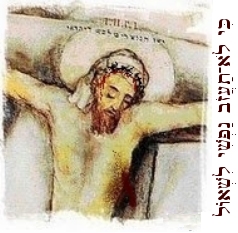
11.22.24 (Cheshvan 21, 5785) We might sometimes ask the question, "What am I living for?" though the question could be turned around to ask, "What am I dying for?" for indeed we are given precious and few days during our sojourn here, and every day we live is a day we are deciding that for which we will die. What we are willing to die for reveals what we believe is the reason for our lives....
If you stop and think about it, you realize that you "cannot not" exist; indeed you were "thrown" into this world apart from your conscious consent, and moreover that you cannot escape the inevitability of dissolution, suffering, death. Meanwhile, your life passes quickly as a fleeting vapor, as it says: "As for man, his days are like grass; as a flower of the field, so he flourishes: for the wind passes over it, and it is gone; and the place thereof remembers it no more" (Psalm 103:15-16).
Here today, gone tomorrow... but to what end? Where are you going during your short sojourn here on earth? Do you believe in the spiritual world? If you believe you are on your way to heaven, how are you living today that demonstrates your journey?
Will there be regret when you die? Will there be regret in heaven? Is it possible to lose a measure of blessedness in the world to come through disobedience, faithlessness, and sin? It is a dreadful thought, and many of us feel that much of our life has been regrettable, but how we come to "build" our lives make the difference for eternity: "For no one can lay a foundation other than that which is laid, which is Yeshua the Messiah. Now if any man builds upon this foundation with gold, silver, precious stones, or with wood, hay, stubble, each one's work will become clear; for the Day will declare it, because it will be revealed by fire; and the fire will test each one's work, of what sort it is. If anyone's work which he has built on it endures, he will receive a reward, but if anyone's work is burned, he will suffer loss; but he himself will be saved, yet so as through fire" (1 Cor. 3:15). "For we must all appear before the judgment seat of Messiah, that each one may receive the things done in the body, according to what he has done, whether good or bad" (2 Cor. 5:10).
Yeshua gave us parables admonishing us to make the most of our lives. The "Parable of the Soils" warns us to be receptive to God's presence and to bear fruit (Luke 8:4-8); the "Parable of the Talents" warns us not to squander our lives out of fear or complacency (Matt. 25:14-30). The tragic judgment of the indifferent steward was expressed by Yeshua this way: "From him who has not, even that which he has shall be taken away" (Matt. 25:29). The "Parable of the Rich Fool" warns us to be rich toward God (Luke 12:13-21), and so on.
But what about all the great promises of the Lord that he will remove our transgressions "as far as the east is from the west," and that he will cast our sins to the depths of the sea and remember them no more? The LORD says: "I, even I, am He who blots out your transgressions for My own sake, and I will not remember your sins" (Isa. 43:25). Indeed does not the New Covenant specifically promise us deliverance from our sins? Prophetically Jeremiah spoke on behalf of God: "For they all shall know Me, from the least of them to the greatest of them, says the LORD. For I will forgive their iniquity, and their sin I will remember no more" (Jer. 31:34). And does not the Cup of our Savior represent the blood of the New Testament which is shed for many for the remission of sins (Matt. 26:28)? Amen, yes indeed, the problem of our sins has been taken care of by Yeshua at the cross: "Most assuredly I say to you, the one who hears My word and believes in Him who sent Me has everlasting life, and shall not come into judgment, but has passed from death into life" (John 5:24). God has made us accepted in Yeshua: "In Him we have redemption through his blood, the forgiveness of sins, according to the riches of his grace" (Eph. 1:7).
So it seems there is a difference between being forgiven and being free of regret, for the latter is a feeling of mourning over lost opportunities, a sorrow that, in light of the truth of how wonderful and kind God is, more could have been done for him, that a life of deeper obedience, passion, and fellowship was possible for us but, for was left unlived... "But God, who is rich in mercy, for his great love with which he loves us, even when we were dead in sins, has made us alive together with Messiah - by grace you are saved - and has raised us up together, and made us sit together in heavenly places in Yeshua the Messiah, that in the ages to come He may demonstrate the exceeding riches of his grace in his kindness toward us through Yeshua our Lord" (Eph. 2:4-7). Amen, God's mercy and truth kiss....
When the unnamed woman from Magdala wept and washed his feet with her tears, Yeshua said to the those that were present, "I tell you, her sins, which are many, are forgiven -- for she loved much" (Luke 7:44-48). In other words, she was so lavish in her love because she deeply regretted that she had missed what was most important, what she desperately needed all along... She saw her sin as blindness to God's love... After all, why would she weep over her sins unless she loved him? And how could she love him unless he first revealed his love to her? (1 John 4:19).
Love and regret... It's a bit of a paradox, somewhat like God's commandment to Israel to blot out the name of Amalek so that they would never forget what Amalek did to them! And we will sing a new "Song of Lamb" in heaven that remembers how we were redeemed from our sins by Yeshua's shed blood upon the cross... "And they sung a new song, saying, 'You are worthy to take the book, and to open the seals thereof: for You were slain and have redeemed us to God by Your blood from every kindred, and tongue, and people, and nation" (Rev. 5:9). The scene of the "Lamb that was Slain" sitting upon the throne of God surrounded by innumerable souls who were clothed in white, waving palms, and crying out praise for God's salvation is dramatic and wonderful: "For the Lamb who is in the midst of the throne shall feed them, and shall lead them unto living fountains of waters: and God shall wipe away all tears from their eyes" (Rev. 7:17). And yet all of this glory came at the utmost expense of the dark cloud of the cross; the overwhelming passion; the excruciating agony, the blood poured out in intercession for the forgiveness of our sins...
All this indicates that though we will have remembrance of our sins, they will be remembered only in relation to the unfathomably great sacrifice of Yeshua as our Healer and the lover of our souls. We have peace with God. Ah, a bittersweet and beautiful brokenheartedness! We shall only know our sin in relation to the unending love and tender mercies of our Lord...
I should add that there is a place for godly sorrow, of course, and for genuine remorse over our sins. As we understand God's great desire and love for us, we begin to realize that the essence of sin is the refusal of His heart for us. The underlying issue with sin concerns the question of God's love. Simply abstaining from certain actions does not address the deepest need of the heart. It is not turning away from sin that matters as much as turning toward God. The forgiveness of sin is meant to lead us to the life of love.
So again let us ask ourselves: "What am I dying for?" In this world we have one life to live, a brief time wherein we can come to know God and learn to yield to his love. Every soul shares this same existential position: we are born; we suffer, we die, and then we will face judgment (Heb. 9:27). And though we will suffer and die, how we live today has profound implications for our eternal destiny. If we cling to our suffering and bitterness we will be locked into a prison of hell. Though we all will suffer and we will all die, the answer is not to unthinkingly rage at life for its apparent injustice, for that spreads hatred, bitterness, and despair. Nor are we to pretend that life and death are meaningless, or to seek escape from the vapor of our fears by drugs, sex, pop culture, etc., for these are not solutions to our eternal and spiritual tribulations. Every person needs to be healed from the real the sickness of soul, namely eternal death, and the remedy for this comes only and exclusively through Yeshua and his intercession for us, since there is salvation in no other name (Acts 4:12). His is the Name before whom every knee shall bow and every tongue confess (Phil. 2:9-11; Isa. 45:23). And He alone gives eternal life to those who trust in him (John 10:28). "For there is only one God and one Intercessor who can reconcile God and humanity -- the man Yeshua the Messiah -- who gave himself as a ransom for all" (2 Tim. 2:5-6). There is only one Savior, one Redeemer, and one Healer of the human heart, and that is Yeshua the LORD.
So how shall we then live? What can we do to heal a broken and dying world? Well first of all we must settle the matter and decide to live in the truth of Messiah: we "set the Lord always before us" (Psalm 16:8). Doing teshuvah is always the first step. Then, when opportunity arises, we can confide our heart's convictions with others; we can share our hope and healing with those who are hurting and lost. Our Lord commissioned us to be his representatives or ambassadors of life. We are given the inestimable privilege of sharing the way of salvation to others. There is no higher calling, friends. Physical doctors may heal the body, but only the Lord can heal the soul, and the Lord uses broken people who trust in him to speak words of life by means of the Holy Spirit. As we sojourn our days, the Lord asks us to humbly share our faith with those for whom he died upon the cross and to invite them to come to Him for life (Matt. 28:19-20). The apostle instructs us to "sanctify the Lord God in your hearts, and always be ready to give an answer to anyone who asks you the reason for the hope that is in you, with humility and respect" (1 Pet. 3:15). Helping another soul come to know God and to be reborn by the Spirit of God is the greatest joy we will share throughout eternity to the praise to our great God and Savior. Amen.
Hebrew Lesson
Psalm 63:3 reading (click for audio):
A Bride for the Promised Son...

The following entry is related to this week's Torah reading, parashat Chayei Sarah...
11.22.24 (Cheshvan 21, 5785) Though he is not explicitly named in the account, the "elder servant" commissioned to find a bride for Isaac was undoubtedly Eliezer of Damascus (see Gen. 15:2). Eliezer (אֱלִיעֶזֶר), whose name means "my God [אלי] is help [עזר]," is regarded as a consummate example of a godly servant, a picture of the Holy Spirit (רוּחַ הַקּדֶשׁ) sent on a mission to find a bride for the Sacrificed Seed of Abraham (i.e., the Messiah Yeshua).
Eliezer dutifully departed on his mission and waited by the "well of water," interceding on behalf of righteousness... He prayed asking for a witness from heaven: "Let the young woman to whom I shall say, 'Please let down your jar that I may drink,' and who shall say, 'Drink, and I will water your camels' -- let her be the one whom you have appointed" (Gen. 24:13-14). Rebekah's response of kindness and generosity (i.e., chesed: חֶסֶד) to a tired wayfarer demonstrated God's choice. Note that the test concerned the inward character of the woman, not her status or beauty or other worldly factors. And since a single camel needs about 25 gallons of water and requires 10 minutes to drink, watering ten camels would require 250 gallons and at least a couple hours of work running back and forth to the well - no small task for anyone!
Eliezer's prayer to find a bride for Isaac (the very first recorded prayer of the Torah) did not appeal for a special sign or miracle but instead relied on the providential and "hidden hand" of God that governs the regular affairs of life (i.e., hashgachah pratit: הַשְׁגָּחָה פְּרָטִית). His prayer at the well relied on God to lead him to a chosen woman who, like his master Abraham, would extend compassion to a person in need. The Torah therefore reveals that far from being a mere coincidence or chance encounter, then, "before he had finished speaking, הִנֵּה רִבְקָה - hinei Rivkah! "behold Rebekah..." (Gen. 24:15). "Before they call I will answer; while they are still speaking I will hear" (Isa. 65:24).
Consider the character of the woman whom the LORD God chose to be the bride for Isaac, the heir of Abraham. Rebekah was willing to leave her family - all that she knew - based on an "otherworldly" promise. Her response to the invitation was simply: אֵלֵךְ - "I will go" (Gen. 24:58). Her courageous willingness was a characteristic of Abraham himself who was willing to leave his homeland in search of the greater things of God. Like Abraham, Rebekah chose to be ger ve'toshav (גֵּר־וְתוֹשָׁב) - a "stranger and a sojourner" - who left everything behind in order to become part of the chosen family. Truly Rivkah was "eshet chayil," a woman of valor.
Hebrew Lesson
Proverbs 31:10 reading (click):
The Torah of Abraham...

When R' Bunam was lying on his deathbed, his wife wept bitterly. Thereupon he said, "Why are you weeping? All my life has been given me merely that I might learn to die."
11.21.24 (Cheshvan 20, 5785) Shalom chaverim. Recently we read about Abraham's greatest trial of faith when God asked him to take his promised son and sacrifice him as a burnt offering. How are we to understand this test, and what might we learn from it? Abraham's obedience is a central lesson of course, and his willingness to sacrifice his son demonstrated his faith in God. But this willingness reveals the utmost level of surrender, a "faithful crucifixion" of his life that bore witness to the coming lamb of God who would be sacrificed to bring healing for the whole world.
The story of Abraham's "walk of faith" is one of testing and great perseverence. Though he had heard God's call to "lekh-lekha" (לךְ־לְך), "to go" to an unseen land of promise and blessing, there were many troubles along the way. After he made the long journey from Ur of the Chaldees and came to the land as directed by God, he immediately encountered a severe famine which forced him leave the land and go to Egypt in search of food. Unfortunately while in Egypt his wife Sarah was abducted into the Pharaoh's harem to be a concubine. After God plagued the king's house and warned him to "let my people go," the pharaoh hastily summoned Abraham and told to take his wife and go back to the promised land (prefiguring the later Exodus from Egypt under Moses). When Abraham and Sarah returned to the land of Canaan, his nephew Lot separated from them and moved to the Plain of Jordan, near Sodom and Gomorrah, to find more pastureland for his growing cattle and herds. Some time later a war broke out in the Plain and Lot and his family were taken captive by the conquering kings of the area. Abraham marshaled his clan and rescued his nephew from captivity. After this he was met by the mysterious "Malki-Tzedek," the king and priest of Shalem, who brought out bread and wine and blessed Abraham in the name of the Most High God, the Possessor of heaven and earth (אֵל עֶלְיוֹן קֹנֵה שָׁמַיִם וָאָרֶץ).
Some time later God appeared to Abraham in a vision to reaffirm his promise to make him into a great nation. After showing him the vast sweep of the stars in the night sky, God said "so shall your offspring be." Despite his years of apparently fruitless wandering, Abraham believed God and God accounted his faith as righteousness (Gen. 15:6). The LORD then renamed Abram, meaning "exalted father" to Abraham. meaning "father of a multitude." He also renamed Sarai (meaning "princess") to Sarah, appending the letter Hey (ה) to indicate his blessing and presence. God then made covenant with Abraham to inherit the land of Canaan forever; Abraham was 75 years old when he had this vision.
After he had lived in the land of Canaan for some time, Abraham began to wonder how God's promise to make of him a great nation would be realized. The years were passing by and he and Sarah remained childless. Perhaps Eliezer of Damascus, his chief servant, was to be his heir? Sarah, also eager for a child, decided to take matters into her own hands and ordered her servant Hagar, given to her by the Pharaoh in Egypt to be his concubine. Hagar became pregnant but Sarah soon became jealous. She treated Hagar so harshly that she ran away but later returned after she was met by an Angel who promised that her child would also become a great nation. Abraham was 86 years old when Ishmael was born (Gen. 16:1-16).
Nearly 25 years later, after the vision of the stars, when he was 99 years old, God appeared to Abraham using the name El Shaddai (אֵל שַׁדַּי), "the All-Sufficient One," and reaffirmed his promise that he would be the father of a multitude of peoples by establishing the covenant of circumcision (Gen. 17). Soon after this revelation Abraham was visited by the three angels, one of whom was the Angel of the LORD himself, who told Abraham that Sarah would indeed have a son within a year. Sarah laughed at the announcement, but the LORD affirmed his words (Gen. 18:1-15). The other two angels then left to go to Sodom, to determine whether it would be condemned to judgment, while Abraham spoke with the Angel of the LORD and interceded on behalf of the city. Nevertheless Sodom and its surrounding area was destroyed by fire and brimstone, though Lot and his daughters escaped (Gen. 18:16-19:20).
When Abraham was 100 years old, Sarah indeed gave birth to a son! They called his name "Isaac" (i.e., Yitzchak) as directed by the Lord (Gen. 17:9), a name which means "he laughs"– a play on words that expressed the great joy of Abraham and Sarah over the miracle of their son (Gen. 21:1-7). Abraham circumcised his son when he was eight days old, as God had commanded. After Yitzchak was weaned, however, Sarah demanded that her servant Hagar and her son be removed from the family so that there would be no controversy about who the promised heir of Abraham truly was. In sorrow Abraham sent them away, though God told him that Ishamael would survive and become a great nation. The LORD reaffirmed to Abraham, however, that Yitzchak alone was the chosen heir through whom his descendants would come. "In Isaac your seed shall be called..." (Gen. 21:12).
The Torah is silent about the early years of Isaac, but many years later, when Abraham was 137 years old (and therefore Isaac was 36), he faced his greatest trial of faith when God asked him to sacrifice Isaac as a burnt offering on a mountain... Wait, what? Is this for real? After all his years of hope and struggle, would it all come down to this: the sacrifice of his beloved son? a "whole burnt offering" of his dreams, the holocaust of his vision?
And what about Isaac? When was he asked to become the sacrificial victim? Did he understand what was being asked? Did he have some earlier premonition? He was no longer a child but a grown man. Abraham needed Isaac to agree to become the sacrificial victim, but how could he explain all this to him without sounding insane? Apparently he did not object, though it must have greatly alarmed him. This test was not just for Abraham but for his son Isaac, too, and it was to Isaac's great credit that he willingly submitted to the request of his father to die on his behalf...
Perhaps you are tempted to think all this was a "charade" of sorts? That Abraham knew all along that Isaac wouldn't die, that God wouldn't allow this to really happen, and therefore he went along with just to play his part in the macabre drama? But there is no such indication given in the Torah. God's instructions were clear enough and unambiguous. Abraham would sacrifice, that is, slaughter his son upon an altar and then burn his body as a whole burnt offering. I do not think it was meant to be a "prophetic parable," because what sort of a test would that be? What sort of sacrifice? For his part, Abraham was ready to do God's will, no matter what was asked of him. The very next morning after God asked him to sacrifice his son Isaac, Abraham saddled his donkey and got things ready for the offering (Gen. 22:1-3).
Recall that the first "lekh-lekha" (לךְ־לְך) was a call to go to the "promised land" of God: "Go from your homeland (מֵאַרְצְךָ), and from your kindred (וּמִמּוֹלַדְתְּךָ), and from the house of your father (וּמִבֵּית אָבִיךָ), to a land that I will show you" (Gen. 12:1), and the second "lekh-lekha" was a call to go and annihilate the vision the promise of becoming the father of the nation: "Please take your son (קַח־נָא אֶת־בִּנְךָ), your chosen son (אֶת־יְחִידְךָ), whom you love (אֲשֶׁר־אָהַבְתָּ), namely Isaac (אֶת־יִצְחָק), and go to the land of Moriah (וְלֶךְ־לְךָ אֶל־אֶרֶץ הַמֹּרִיָּה) and offer him there as a burnt offering (לְעֹלָה) upon one of the mountains which I will show you" (Gen. 22:2). Go away from all you were - your history, your birthplace, your father's house ... and come to the place that transcends all that is natural and of this world, a place of resurrection and the world to come. In both cases there is a call to the unknown and the test to believe that God would lead him to the place of blessing, despite everything he faced (Gen. 12:2, Gen. 22:17). In the climactic test, however, God showed Abraham the cross of Messiah, the place where his Son would be bound and offered as a sacrifice for the healing of the nations. It reveals the heart of the Father who would give up everything, including his beloved Son, so that we may have eternal life.
According to the author of the Book of Hebrews in the New Testament, Abraham believed that God would raise Isaac from the dead after he completed the sacrifice: "By faith Abraham, when he was tested, offered up Isaac, and he who had received the promises offered up his only begotten son, of whom it was said, 'Through Isaac shall your offspring be called.' He considered that God was able even to raise him from the dead, from which, figuratively speaking, he did receive him back" (Heb. 11:17-19). Imagine Abraham binding Isaac's arms and feet while saying, "After the sacrifice, I will see you again: you will be brought back to life!" No matter how we may try to rationalize this, it is clear that Abraham accepted God's will - even if what was asked seemed terrifyingly preposterous, even insane...
They followed the cloud. After three days they reached the mountain, the place of the sacrifice. They left the others behind as they began their ascent. Isaac carried the wood that would burn his body. Abraham carried the knife and the torch. Together they built an altar of stones and arranged the wood for the fire. Abraham then asked Isaac to lay himself down on the altar as he bound the hands and feet of his son.
As Abraham silently looked upon the knife, all of his history, his hope, and his struggle was refracted back in the glint of the blade's edge. Was he willing to go through with this? Even if God would bring Isaac back from the dead, would he be able to plunge the knife into the heart of his promised child, the heir of his life? He steeled his resolve and carefully lifted the knife above his waiting son. Their eyes met and both took a deep breath just as Abraham was about to thrust the knife down. At the very last instant, the Angel spoke: "Abraham! Abraham! Do not lay your hand on the lad, or do anything to him; for now I know that you fear God, since you have not withheld your son, your only son, from me" (Gen. 21:11-12).
After a moment of utter shock, Isaac was released, unbound from death, and raised up to new life. For the Angel testified before heaven and earth that the sacrificial act was "fait accompli," an accomplished fact, and that Abraham had indeed offered up his only begotten son who had been raised from the dead. It was just then that Abraham saw the "ram caught in the thicket" that was to be sacrificed in Isaac's place. But why a ram instead of a lamb? Because when Abraham had said, "God will provide for himself a lamb" (אֱלֹהִים יִרְאֶה־לּוֹ הַשֶּׂה) this referred to the coming of Yeshua, the great Lamb of God, but the ram was provided for Abraham in place of Isaac for the sacrifice. The ram was not the lamb that God would provide "for himself" to atone for the sins of the world and reconcile his justice with his love, but rather a sacrificial ram that was provided for Abraham in place of Isaac. This seems to be the right understanding since later Abraham called the place of the altar at Moriah "Adonai Yireh" (יְהוָה יִרְאֶה), in reference to the Lamb God to come who was to be provided for by God himself in fulfillment of the prophecy (Gen. 22:8, Gen. 22:14).
The ashes of the sacrificed ram represented the dust and ashes of Isaac, and of Abraham as well. The "ashes of Yeshua" came from his passion upon the cross, and represent the atonement and exchange he made for the resurrection from the dead. God did indeed provided the Lamb - Adonai yireh ha'seh - and we will see this when we "ascend to the mountain" (Gen. 22:14). Yeshua later told the rabbis of his day, "Abraham rejoiced to see my day: and he saw it, and was glad." When they objected by saying that he was too young to ever have seen Abraham, Yeshua answered: "Truly, truly, I say to you, before Abraham was, I AM," which provoked them to try to stone him for blasphemy (see John 8:56-59).
Allow me now to consider whether Abraham might have been traumatized by the (near) sacrifice of his son. The sages say that when Sarah later understood what had happened, her heart gave out and she died. And Abraham's relationship with Isaac may also have been fractured as well. Did Isaac hear the voice of the Angel? The Torah does not indicate that he did. Perhaps Isaac was also deeply traumatized by the ordeal and needed some time apart from his father. Later on, after Abraham commissioned his chief servant Eliezer of Damascus to find a bride for his son, there is no recorded dialog between the father and son, and while Abraham bequeathed everything he had to Isaac, the last time Isaac saw his father was at Abraham's burial at Machpelah (Gen. 25:9). At any rate, the sacrifice at Moriah must have haunted Abraham during his remaining days, yet he pressed on in faith, later remarrying and having other children. Like the story of Job, from the whirlwind God's blessing will come...
Recall at the outset that I had wondered whether Abraham might have been tempted to protest God's will for life, and that leads to the related question of whether you have ever found yourself protesting the course of your life and inwardly wrestling to accept God's will... Do you struggle with the call to "take up the cross" as did Abraham - and follow Yeshua?
How much do you "need" to understand before you are willing to let go and surrender? Do you put God in the test - subconsciously demanding that he justify himself to you before you will obey? How did Abraham find the paradoxical strength to die to himself? How do we?
So much is beyond our control and we understand so little. We can either abhor all that happens that we cannot understand, or we can trust that God has a plan that, although inscrutable to us and sometimes seemingly cruel, is nevertheless the ordained way of our lives. Yes, "ordained," for nothing happens in our lives due to "random" forces or by chance, for the LORD God Almighty knows the beginning from the end, and all of reality is His story to tell. God is the Central Character of the thing called "life," and indeed He is the creative force and Author of all that exists. Faith believes that the story is about his vindication of love despite all the darkness, evil and shame that seeks to deny its fulfillment.
Reinhold Niebuhr's well known "Serenity Prayer" expresses the balance we need to walk in the present ambiguity and "already-not-yet" fulfillment of God's story. It begins, "God, grant me the serenity to accept the things I cannot change." That's most things of life. Nearly everything. "Who among you by being anxious can add a single hour to his span of life?" "Serenity," or inner peace (שָׁלְוָוה פְּנִימִית), first comes from "acceptance" (קַבָּלָה), that is, receiving whatever is the case (קבלה של הכל), and not fighting it, not lamenting over it, not negotiating with it - just willingly accepting it as something God has allowed. "Thy will be done." Whatever bothers us is likely out of our hands anyway, and it is tragically foolish to "play God" in any circumstance.
"God grant me the serenity to accept the things I cannot change," yes, that makes sense, but the prayer continues, "and [grant me] the courage to change the things I can." Though many things are indeed beyond our control, such as who our parents and ancestors were, when and where we were born, the state of the world we inhabit, and so on, some things are not. There are genuine choices we must make in life for which we are responsible and from which we cannot abstain. "Ought implies can" which means there is a moral order to reality and that we have the ability to make meaningful choices. We are born with a conscience; we have intuitive awareness of right and wrong, of good and evil. Choosing not to chose is itself a choice; saying you "can't help it" and making excuses by blaming circumstances is "bad faith." To decide means to "cut away" other options, and that requires courage because we don't know the effect of our choices with certainty. We are nevertheless accountable for whatever we choose, and our judgments and reasons that justify our choices imply that we are responsible for how we think, for our attitudes, our values, and so on. Faith provides the courage to trust in the unseen good rather than to allow fear to devour our souls.
The Serenity Prayer ends with the phrase, "and [grant me] the wisdom to know the difference." This is very practical. Some things you can't change and must accept; other things you can change and must choose. Wisdom is understanding what's in your power and what's not, and therefore knowing what you must accept (for the sake of inner peace) and what you must actively fight (for the sake of duties of your heart). Acceptance is based on necessity whereas courage is based on possibility; knowing the difference is wisdom.
"Faith is nothing else but a right understanding of our being - trusting and allowing things to be; a right understanding that we are in God and God whom we do not see is in us."- Julian of Norwich
Surely it takes wisdom to relate to God - for that is what we are talking about, really -- how to find peace by surrendering to his will, and how to find courage to take responsibility for whatever you decide to do. The life of faith is not easy and tests are inevitable. God designed it that way and we must accept that. Yet we must choose to keep hope alive despite our finitude, brokenness, and inability to fathom much of anything. At times we will experience respite and calm; at other times we will struggle and fight. Either way we need wisdom. As Job said Adonai natan, v'Adonai lakach: yehi shem Adonai me'vorakh: "The LORD has given, the LORD has taken away; let the name of the LORD be praised" (Job 1:22). Whatever happens, however, we call out to God for his blessing and help. We seek His face. We will not give up, even if we don't understand. And that is the Torah of Abraham, who courageously accepted everything and was set free by choosing to believe in the truth of God's love.
Hebrew Lesson
Jeremiah 29:11 reading (click for audio):
God's Pursuing Love...
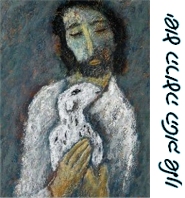
11.21.24 (Cheshvan 20, 5785) Where it says, "Surely goodness and kindness (טוֹב וָחֶסֶד) shall follow me all the days of my life" (Psalm 23:6), note the Hebrew verb translated "shall follow me" (i.e., יִרְדְּפוּנִי) comes from a root (i.e., radaf: רָדַף) that means "to pursue," as a hunter chases after his prey. In this connection the Baal Shem Tov once asked, "But why the need for pursuit? Does anyone flee from goodness and kindness so that these must pursue him?" And he answered: "Indeed they do. A person may flee from something he thinks is harmful, not knowing that it is heaven-sent and intended for his advantage."
This interesting interpretation suggests that we may try to protect ourselves even at the expense of receiving a blessing. Do we allow fear to rob us of the chance to grow? The sages comment that if we flee from what is good because we mistakenly regard it as evil, we should pray, as David did, that the hidden good should pursue us relentlessly. Amen. As David also prayed: "Who can understand his errors? Cleanse me from secret faults" (Psalm 19:12). The tragedy is that our secret faults often make us our own worst enemy.
At any rate, given the context of this beloved Psalm, it is clear that King David was sure that God's kindness would "hound" him as he made his way through this world - even in the dark places, even in "the valley of the shadow of death" (בְּגֵיא צַלְמָוֶת) - where God's rod and staff would comfort him and direct his way (Psalm 23:4). Amen, thank God for Yeshua our Good Shepherd (ישׁוע הָרוֹעֶה הַטּוֹב שֶׁלָנוּ) who lays down his life for his sheep (John 10:11). Praise God that He came to seek and to save the lost (Luke 19:10).
Hebrew Lesson
Psalm 23:6 Hebrew reading (click):
Our Times in His Hand...

The following is related to our Torah reading for this week, Chayei Sarah...
11.20.24 (Cheshvan 19, 5785) Do you understand that in God's sovereign design and plan for creation, He breathed out a part of his very heart, soul, and strength to create you in his own "image and likeness," a reflection of his own self-existence and reality? This is the essential blessing each of us has been given. Rene Descartes' intuitive awareness of the inner witness of the soul: "I think therefore I am," echoes the אֶהְיֶה אֲשֶׁר אֶהְיֶה, "I am that I am," within our hearts. The LORD is the "God of the spirits of all flesh" (Num. 16:22) for "in Him we live and move and have our being" (Acts 17:28).
The moments of our lives, the ups and downs of our goings, the length of our days - and especially the purpose and end of our existence - are all in the hands of God, as it says: "In you I put my trust, O LORD; I said, 'You are my God; my times are in your hands" (Psalm 31:14-15). A person may "devise his own way," but it is the LORD that directs his steps.
If we consider our lives apart from God, however, all we see is wretchedness, limitations, shortness of days, and the absurd specter of death at the end of it all. Life always seems too short; the days fly past us like a dream, soon we are "cut off" and gone. When the moment of death occurs, many are lost to its eternal significance... They die unprepared.
On the other hand, when we trust that our lives are under God's providential direction, and we realize that our Heavenly Father "numbers the hairs on our head," then we can quiet our hearts and abandon ourselves to his care (Isa. 46:8-10; Psalm 103:19). As it is written: "Those who trust in you know your Name; for you do not forsake those who seek you, O LORD" (Psalm 9:10). And as the Apostle Paul preached to the Athenians, "God, who alone is Creator, the Lord of heaven and earth, has given life and breath to all people, and from one man has made every nation of people to live on the earth, having determined prescribed times and the boundaries of their habitations" (Acts 17:24-26).
For the believer there is no greater comfort than to trust that the LORD will work "all things together" for our ultimate good (Rom. 8:28). "Whoever lives and believes in me shall never die" (John 11:26). Yet there is a veil, an ordained obscurity. "God has made every thing beautiful in his time, and he has set eternity in people's hearts, so that no one can find out what he has ordained from the beginning to the end" (Eccl. 3:11). So while we know only "in part," as through "a glass darkly," we believe that the LORD goes before us and will always be with us (Deut. 31:8). And one day we shall see him "panim el-panim," face to face (1 Cor. 13:12). "Beloved, now are we the children of God, and it does not yet appear what we shall be: but we know that, when he shall appear, we shall be like him, for we shall see him as He is; and everyone that has this hope in Him is purified, even as he is pure" (1 John 3:2-3).
Χάριτι δὲ θεοῦ εἰμι ὅ εἰμι - "by the grace of God I am what I am" (1 Cor. 15:10). This is a radical axiom that should be foundational to our faith, namely that nothing occurs in our lives apart from God's will for our ultimate blessing. From small matters to big, from the seemingly insignificant to the momentous, from what seems hopelessly undone to the sheer miracle and glory of existence itself -- categorically everything, in every conceivable world, is under the sovereign hand of the One who works all things together for his glory and for our good. Amen. Yeshua "upholds all things" (φέρων τε τὰ πάντα) by the word of his power. "All things were created by him, and for him, and in him all things hold together" (ἐν αὐτῷ συνέστηκεν). He is the "Magnetic Center" of reality, its beginning and its end (Col. 1:16-17).
How could it be otherwise? For who can overrule the will of God our Creator and the LORD over all? "From eternity to eternity I am God. No one can snatch anyone out of my hand. No one can undo what I have done" (Isa. 41:13). "For the Lord of hosts has planned, and who can frustrate it? And as for His stretched-out hand, who can turn it back?" (Isa. 14:27).
Therefore do not be afraid. "For I know the thoughts that I think toward you, says the LORD, thoughts of peace and not of evil, to give you a future and a hope" (Jer. 29:11). As Yeshua said: "Fear not, little flock; for it is your Father's good pleasure to give you the kingdom" (Luke 12:32). Hallelujah! For the Lord our God, the Almighty, reigns!
Hebrew Lesson
Psalm 9:10 reading with commentary (click):
The Thirst of Hope...
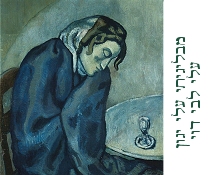
11.20.24 (Cheshvan 19, 5785) It's been difficult time over the last few years, and I appreciate your prayers. There have been family problems as I've told you before. My kids need your prayers. I have been waiting for the LORD through sleepless nights, the banality of gray days, punctuated by pain, sighs of heartsick hope, fearful whisperings, and loneliness. It sometimes feels like the "samsara" of the desert, a place of exile. There is no place I want to go anymore... I walk with a limp, friends. The sages say that our father Isaac went blind because the angel's tears fell into his eyes as he lay bound upon the altar... I wonder if he might have later asked himself what use is there to see any more of this world? But (surprisingly) God used his blindness to allow the blessing to be given to Jacob, after all.
Some wounds are incurable in this present life... I have felt swallowed up in grief and inexplicable sorrow from days before I knew my right hand from my left. Shame has been a constant companion; melancholy my muse. I cannot outrun myself. "Cursed be the day wherein I was born!" exclaimed both Job and Jeremiah (Job 3:3; Jer. 20:14). "If this is how you are going to treat me, please go ahead and kill me -- if I have found favor in your eyes -- and do not let me face my own ruin" said Moses (Num. 11:15). Elijah likewise prayed that he might die: "I have had enough, Lord," he said. "Take my life; I am no better than my ancestors" (1 Kings 19:4).
Of course personal suffering in this life is common enough, and no one is immune to it, though it is especially poignant, I think, to souls that seek God's presence and love above all things, for these people are bound to be misfits in this world of vanity and conceit. Soren Kierkegaard is such an example, and he once wrote: "What is a poet? An unhappy man who hides deep anguish in his heart, but whose lips are so formed that when the sigh and cry pass through them, it sounds like lovely music.... And people flock around the poet and say: 'Sing again soon' - that is, 'May new sufferings torment your soul but your lips be fashioned as before, for the cry would only frighten us, but the music, that is blissful."
Jewish philosopher Martin Buber spoke of the loneliness that results from Modern society, which he called an "It-world" that is marked by the prevalence of "I–It" rather than "I–Thou" relationships. The realm of the "institution" objectifies or "thingifies" people, and this bureaucratic "system" creates a sense of existential angst. Trapped in the "It-world," people begin to feel that life is meaningless, as they are numbered among the "faceless crowd" and are enthralled in a Kafkaesque prison of loneliness... The way out for Buber - and this is surely right - is to be in a life-transforming relationship with God, the ultimate "I-Thou" connection that will sustain our way despite the hardness of the "It-world."
Our Lord said: "Blessed are those who hunger and thirst for righteousness..." (Matt. 5:6). Yes, blessed are those who suffer such desperate need, who know inner emptiness, who are not made numb to the ache, and who cry from the heart for deliverance. Blessed are those who are in dread over themselves, who fall as one dead before the Divine Presence, who know they are undone, ruined, and dying for life... The great danger, spiritually speaking, is to become complacent, untouched by poverty of heart, to be lulled asleep, lost within a dream, made comatose, living-yet-dead. The gift of faith first reveals our own lostness and then imparts courage to live with ourselves despite ourselves as we seek God's healing and life...
"Blessed art Thou, LORD our God, who never leaves nor forsakes us, and who draws us close through hunger and thirst." Amen. We are truly blessed when we ache with heartfelt longing for the Divine Presence... This is not some form of masochistic spirituality. Feeling content, unconcerned, satisfied, numb, etc., may be a sign of a dreadful condition of heart. "You, God, are my God, earnestly I seek you; I thirst for you, my whole being longs for you, in a dry and parched land where there is no water" (Psalm 63:1).
Well I didn't intend to make this a long post, so I will close for now. I hope I didn't come across as being full of self-pity, friends. I know we all struggle and hurt at times. But please remember me in prayers, for I truly need them. And I pray that Hebrew for Christians will not be an "I-it" relationship for you, but one that helps you draw closer to the LORD and the "I-Thou" blessing of knowing him better. Amen.
Hebrew Lesson
Psalm 42:2 reading (click):
Truth of the Heart...
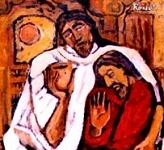
11.19.24 (Cheshvan 18, 5785) When Yeshua proclaimed, "Do not think that I have come to destroy the Law or the Prophets; I have not come to destroy them but to fulfill them" (Matt. 5:17-20), he was actually amplifying the message of both Moses and the prophets, though his interpretation was contrary to various "traditional" views of his day. "You have heard that it was said [in the law, or by your sages...] ... BUT I SAY unto you..." Wait. What did he say?
As a good Jewish teacher, Yeshua continually affirmed the inner meaning of the Torah, especially the Shema and the related obligation to love others (Matt. 22:36-40). In that regard His doctrine was surely a continuance of the Torah's foundational message. However, Yeshua clearly extended the reach of the Torah to include the inner heart attitude of the person. Observing the law was not a matter of adhering to various external codes of conduct but involved the rigorous self-examination of the heart and soul.
The law forbade murder, for example, but Yeshua extended the scope of the law to reach the intent of the heart: "You have heard it said (i.e., by Moses himself as he quoted the words of YHVH) 'You shall not murder...' but I say unto you that whoever is angry with his brother without a cause is liable to excommunication; whoever insults his brother is liable to punishment, and whoever calls his brother a fool is in danger of the fires of Hell" (Matt. 5:21-22). As someone once put it, murder is just anger "communicated really well..."
Likewise, the law forbade the act of adultery, but Yeshua did not focus on the external action but rather the condition of the heart: "You have heard it said, (i.e., by Moses himself as he quoted the words of YHVH) 'You shall not commit adultery.' But I say to you that everyone who looks at a woman with lust in his eye has already committed adultery with her in his heart." When Yeshua explained that the law's intent was to prevent even looking with lust upon a woman, then for all the more reason it should be obvious that we refrain from physical acts of adultery or fornication. They eye sees through the heart.... Dealing with the heart attitude behind the lustful look therefore obviates the need to forbid the outer practice of the flesh (and therefore fulfills the intent of the law against adultery).
In matters relating to 1) divorce (i.e., Deut. 24:1-4), 2) the taking of oaths (Deut. 6:13; 10:20; Num. 30:2; Exod. 20:16), 3) the exercise of retribution (Exod. 21:23-24, Lev. 24:19-20; Deut. 19:21), and 4) the obligation to hate one's enemies (Deut. 7:2, 13:15-17, 20:16, Psalm 137:9, etc.), Yeshua actually circumvented the written words of Torah by denying matters that were technically permissible according to the "letter of the law" (Matt. 5:31-47). We see this clearly in the case of divorce, for instance. When the Pharisees asked him whether it was permissible to put away one's wife (Deut. 24:1-4), Yeshua answered: "Because of your hardness of heart Moses allowed you to divorce your wives, but from the beginning it was not so" (Matt. 19:8). Note that this was a "concession" added by Moses that was not genuinely God's will, and indeed the rigor of Yeshua's interpretation superseded that of Moses himself, who permitted divorce as a concession to human frailty and evil. Indeed, in each of these examples (divorce, taking oaths, retaliation, tribal loyalty), Yeshua's interpretation was more demanding and rigorous than the laws written in the Torah of Moses.
By expounding the requirements of the law with such rigor, Yeshua was claiming equal authority with YHVH Himself (יהוה). After all, each antecedent clause, "You have heard that it was said..." referred to an explicit utterance made by God Himself at Sinai. Yeshua then authoritatively extended the reach of the commandment by identifying its underlying ethical intent. This is what he meant by "fulfilling" the Law, or reaching the goal of the Torah's message. The time of "circumcision of the heart" was at hand (Deut. 30:6). The message of the law was to be written on hearts of flesh, not tablets of stone (Jer. 31:33, 2 Cor. 3:3,6).
Like a flawless mirror, the law of God reflects back to us the truth of our moral and spiritual condition, and thereby reveals our need for deliverance from ourselves (that is, if we are willing to truly look and to be honest with ourselves). The "problem of the law" is that it is "weak" on account of human "flesh," and therefore remedy had to be sought through other means (Rom. 8:1-4). This is the ultimate gospel message itself - that God sent His Son to both save us from the just verdict of the law (through Yeshua's substitutionary sacrifice) and to provide the heart's means to serve Him in the truth (through the agency of the Holy Spirit, given to those who trust in Him).
Let's consider again Yeshua's thinking about adultery: "You have heard it said, 'You shall not commit adultery.' But I say to you that everyone who looks at a woman with lust has already committed adultery with her in his heart." The sin has to do with how the eye is used to see. The "way" of seeing is the crux of the matter, for that exposes the illicit desire hidden within. According to Yeshua, no thought is trivial or without spiritual importance. Every word we speak is a form of confession (Matt. 12:36-37). "To the one that has, more shall be given" is a spiritual law. The more you entertain evil thoughts, the more evil thoughts will be given, and the converse is true as well: the more you entertain good thoughts, the more ennobled you shall become. "As a man thinks in his heart, so is he." These are matters about our inner life. Yeshua teaches righteousness that "exceeds the righteousness of the scribes and Pharisees," the inner meaning of the "law" of God...
Some "religious" people want to measure their actions according to the "letter of the law," supposing that if they do not contradict the "legal language," they are innocent, regardless of their "private" thoughts or feelings which are deemed to be irrelevant to matters of fact. They approach the law of God like a tax accountant seeking to avoid an audit.
This legalistic approach lends itself to minimizing the responsibility we have for our inner thoughts and motivations, and thereby suppresses the deeper reason for the law itself. Someone may be technically innocent from committing an act of adultery though his heart be filled with lustful desire and infidelity, yet it is the evil desire that is impetus for the law in the first place. Intuitively we understand that evil thoughts and intentions lead to evil actions. This is called "premeditation," meaning that the person has at first thought about doing the action before it was done. It is a matter of cause and effect. To deny this is almost the definition of insanity.
A person may not literally steal from others but his heart be filled with covetousness and greed; another may say they would never murder someone, yet they refuse to forgive others, they allow anger to fester within them, and by means of resentment they effectively "destroy" others by cutting them off. You can think of other applications of these principles, but this should suffice to indicate that the inner life of the mind and heart really do matter, and that God is not indifferent to the moral character and integrity of our lives...
It is our duty, then, to control ourselves, to think clearly, and to focus on the good, true, beautiful, loving, and honorable. "Think on these things" (Phil. 4:8). Positively this means using the "good eye" by looking for what is healing and life-giving, while negatively this means repudiating evil and ugly thoughts, resisting the insinuations of the devil, and taking every thought captive to the truth of Messiah. In order to respect others, we must respect ourselves, and that means understanding that nothing is trivial and everything matters.
Hebrew Lesson
Psalm 51:6 reading (click):
We have a moral and spiritual duty to think clearly and not to abuse our minds (Phil. 4:8; Rom. 12:2). The LORD our God will help us to do this, as Yeshua said: "I will ask the Father, and he will give you a Helper (παράκλητος, someone "called to one's side"), to be with you forever, even the Spirit of Truth (רוּחַ הָאֱמֶת), whom the world cannot receive, because it neither sees him nor knows him" (John 14:16-17). The Spirit of Truth helps us "discern what is the will of God, what is good, acceptable, and perfect" (Rom. 12:2) and empowers us to take "every thought captive" to the reality of the Divine Presence (2 Cor. 10:4-5).
Followers of the Lord are commanded to love the truth and to think clearly about their faith. The ministry of reconciliation itself is defined as "the word of truth, by the power of God, through weapons of righteousness" (2 Cor. 6:7). Indeed, the word of truth (τὸν λόγον τῆς ἀληθείας) is a synonym for the "gospel of salvation" itself (Eph. 1:13; Col. 1:5; James 1:18). We are saved by Yeshua, who is the "way, the truth, and the life" (John 14:6). God commands all people to believe this truth (Acts 17:30-31; 1 Tim. 2:4). People perish because "they refuse to love the truth and so be saved" (2 Thess. 2:10-12). Therefore we see that the issue of truth -- and by extension thinking truthfully - is essential to salvation itself...
Finally, friend, a closing thought. Let us not despair by thinking that we will never change. We must simply "enter into" the presence of God in Yeshua. That is what "self-denial" really means: Turning to God to know his heart. And when we do, we receive a heart to know him in return... Let us "believe to see" the goodness of the LORD in our midst. Amen.
 |
Making the Dead Alive...
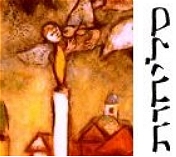
11.18.24 (Cheshvan 17, 5785) We must be careful not to confuse cause and effect in the realm of the spiritual. After the original transgression of Adam and Eve, death became the root problem of the human condition, so to speak, with indwelling sin as its fruit (i.e., the "works of the flesh"). It is this inherited "spiritual death" that causes sin. To focus on outward behavior without first of all dealing with the underlying problem of spiritual death is therefore a misstep. It is to clean the outside of the cup or to wash the outside of a tomb in a vain attempt to disguise the truth about our unclean and dead condition. The good news is not that God wants to make bad people good, but rather wants to make dead people alive... The cure for spiritual death is to be spirtually reborn and to partake of the resurrected life of Yeshua.
Following Yeshua is not a sort of "moral reformation" or self-improvement program to make us acceptable to God. Yeshua did not die on the cross so that we would become entangled in the old ways of being... No! He is Lord and Master and we find new life in His acts of deliverance done on our behalf and for our benefit. The temptation is always to go back to the law of sin and death (i.e., the principle of self-justification), but as Luther once said: "The sin underneath all our sins is the lie of the serpent that we cannot trust the love and grace of Christ and that we must take matters into our own hands."
"LORD, I need Thee every hour..." There never will be a time when we "get past" the need for God's grace given in Yeshua, since the only antidote to power of indwelling sin is the greater power of God's redeeming love within our hearts (1 John 3:8). The gospel is - not was - "the power of God for salvation (δύναμις θεοῦ ἐστιν εἰς σωτηρίαν) for everyone who believes" (Rom. 1:16); it is an ongoing source of power for our lives... Our identity is made secure in the finished work of the Messiah - we trust in His strength, not our own; it is "Messiah in you" that is the hope of glory (Col. 1:27). Just as we are given a new life entirely by means of God's grace, so we are also sanctified as we walk in that newness of life... "As you received Yeshua the Messiah the LORD, so walk in Him" (Col. 2:6). The focus is always on Yeshua and His righteousness and obedience... Every step of the way is a miracle and a wonder when we walk "in Messiah."
We walk "in Him," that is, in His strength, in His power, in His love... we don't walk "to" Him or attempt to climb the "stairway to heaven." Yeshua is the Way, the Truth, and the Life. He is the Bridge - sha'ar hashamayim (שַׁעַר הַשָּׁמָיִם) and the Divine Ladder upon whom the angels of God ascend and descend. We look to Him, not to ourselves for life. Because of the life of Yeshua within us, we are now able to bear fruit of the Holy Spirit as the Torah is written upon our hearts (Jer. 31:31). We are enabled to keep the Torah of Yeshua (תּוֹרָה יֵשׁוּעַ) because the life of Yeshua empowers us to do so...
Hebrew Lesson
Psalm 138:8 reading (click for audio):
Biblical Hebrew Wordplay...
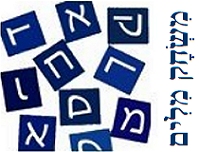
11.18.24 (Cheshvan 17, 5785) Shalom chaverim. The Hebrew Scriptures are filled with various kinds of wordplay. In addition to some humorous play on words (i.e., puns), you will discover alliteration, acrostics, parables, similes, metaphors, theophorisms, hyperboles, gematria, and other literary devices present in the Hebrew text. Some scholars even suggest that the first two words of the Torah (i.e., בְּרֵאשִׁית בָּרָא / bereshit bara) were intentionally spelled using the same initial three letters (בּ.ר.א) for the sake of "alliteration" (i.e., repetition of sound). At any rate, examples of wordplay often appear on the surface-level of the texts. For example, "Adam" (אָדָם) is a play on the word adamah (אֲדָמָה, "ground"); Chavah (חַוָּה, "Eve") is a play on the word chai (חַי, "life"); Kayin (קַיִן, "Cain") is a play on the verb kanah (קָנָה, "to get"), and so on (see Gen. 2:7, 3:20, 4:1). Even the name "Jesus" (i.e., Yeshua: יֵשׁוּעַ) plays on the Hebrew word for deliverance or salvation (i.e., yeshuah: יְשׁוּעָה). Many other examples could be cited.
Of particular relevance to our recent Torah readings is the name Yitzchak (יִצְחָק, "Isaac"), which plays on the verb tzachak (צָחַק, "to laugh"). Some have said that tzachak is "onomatopoeic," that is, it imitates the sound of laughter itself. Appropriately enough, the root appears a number of times in the story of Isaac, though often with different connotations. The simple stem (kal) of tzachak conveys the idea of laughter, whether in joy or incredulity, though the stronger stem (piel) suggests more intense expressions, for example rejoicing, playing, and making love -- or (negatively) mocking, scorning, and deriding. In other words, the motive for laughter is only contextually understood. After all, there's a big difference between laughing at someone and laughing with them.
At any rate, God Himself named Isaac in response to Abram's laughter over the prospect of having a child in his old age. Here's some of the "back story." God originally called Abram to leave Ur of Mesopotamia for the land of Canaan (Gen. 12:1). When he arrived there, God appeared to him and promised that his descendants would inherit the land (Gen. 12:7). Abram was 75 years old at this time. Abram wandered through the land waiting for God's promise to be fulfilled. Some time later (but before the birth of Ishmael), God came to him in a vision and reaffirmed his promise that he would have a son "from his own loins" (Gen. 15:1-5). Abram "believed in the LORD, and He credited it to him as righteousness" (Gen. 15:6). The LORD then made the "covenant of the pieces" to seal the agreement to give the land of Canaan to Abram's descendants (Gen. 15:7-20). Ten more years passed, however, and Abram and Sarai were still childless. In a lapse of faith, Sarai urged Abram to sleep with her Egyptian maidservant, Hagar, in order to produce the family heir. Ishmael was born when Abram was 86 years old (Gen. 16:16).
Another thirteen years passed before God appeared to Abram to renew his earlier promise that he would become a "father of a multitude" (Gen. 15; 17:7). Abram was now 99 years old. To symbolize Abram's changed status, God changed his name from Avram ("exalted father" [from אָב, "father," + רָם, "exalted"]) to Avraham ("father of a multitude" [from אָב, "father" + המוֹן, "crowd"]). (Note that some scholars regard Avraham's name to mean "father of mercy" (from אָב, "father" + רחם, "womb"). Likewise God changed Sarah's name from Sarai (שָׂרַי, "princess") to Sarah (שָׂרָה) -- the exchanged Hey (ה) for the Yod (י) was given to indicate that the Divine Presence was to replace of the "hand" of Sarah's design. (Indeed, the root of Sarah's name (i.e., שׂר, "prince") later reappears when her grandson Jacob was renamed "Israel." The wordplay occurs in the phrase "for you have striven (sarita) as a prince (sar) with God and with men and have prevailed" (Gen 32:28)). God reaffirmed his promise to make Abram into a great nation and then gave him the commandment of brit millah (בְּרִית מִילָה, ritual circumcision) as a token or "sign" of the agreement. (There's another play on words here: Abraham's male descendants who refuse to "cut off" their foreskins would be "cut off" from the terms of the covenant).
Getting back to the wordplay on Isaac's name, when the LORD repeated his promise that Abraham would sire a son in his old age, he "threw himself on his face and laughed (וַיִּצְחָק) as he said to himself, "Can a child be born to a man a hundred years old, or can Sarah bear a child at ninety?" (Gen. 17:17). When Abraham attempted to recommend Ishmael as his heir, God said "No, but Sarah your wife shall bear you a son, and you shall call his name Yitzchak (יִצְחָק, "he laughs").... (Gen. 17:19). After this vision of the LORD, Abraham promptly circumcised himself along with his son Ishmael (Gen. 17:23-26).
Rashi says it was the third day after Abraham's circumcision when he was visited by the Angel of the LORD (מַלְאַךְ יהוה) accompanied with the two other angels. When Sarah overheard the Angel of the LORD say, "I will certainly return to you next year, and your wife Sarah shall have a son" (Gen. 18:10), she laughed (וַתִּצְחַק) within herself (lit, "at her insides") and thought, "Now that I am withered, am I to have enjoyment, my husband being so old?" (Gen. 18:12). The LORD (יהוה) then asked, "Why did Sarah laugh (צָחֲקָה)? Sarah denied it (לא צָחַקְתִּי, "I didn't laugh"), but the Angel of the LORD said, "No, but you did laugh" (לא כִּי צָחָקְתְּ).
Jewish tradition maintains that Abraham laughed in joy at the prospect of becoming a father, whereas Sarah (initially) shook her head in disbelief. Sarah underwent teshuvah, however, even before her conception (see Heb. 11:11), and after the miraculous birth of her son exclaimed in heartfelt joy: "God has made laughter (צְחק) for me; everyone who hears will laugh for me (יִצְחַק־לִי)" (Gen. 21:6).
After Isaac was weaned, however, Abraham held a celebration, but Sarah saw Ishmael mocking (מְצַחֵק, i.e., the piel participle of צָחַק, "to laugh") her son and demanded that he be sent away. This grieved Abraham greatly, but God reassured him that Ishmael would nevertheless become a great nation with numerous descendants (Gen. 21:11-13). The promise of being Abraham's heir belonged to Isaac alone, who was the miraculously given son that would bring laughter to the hearts of all those who believe...
A further example of wordplay on the name "Isaac" occurs when the Torah records how he fled to the Philistine city of Gerar to escape a famine in the land. Like his father Abraham, Isaac lied by telling people that his wife Rebekah was his "sister." The Torah records that his deception was detected when Abimelech saw him "playing" with Rebekah: יִצְחָק מְצַחֵק אֵת רִבְקָה אִשְׁתּוֹ / "Isaac was 'sporting' with his wife Rebekah" (Gen. 26:8). The verb translated "sporting" is the intensive (piel) form of tzachak (צָחַק, "to laugh"), and clearly suggests the idea of caressing and fondling -- i.e., making love.
Hebrew wordplay was also applied to Isaac's sons. When the twins were born, the first came out hairy and was named Esau (עֵשָׂו), perhaps from the word esev (עֵשֶׂב), "grass" or "weed" of the field), whereas the second came out with his hand on his brother's heel, and was named Ya'akov (יַעֲקב, "grappler," from the word עָקֵב, "heel"). Later, when Esau learned that Jacob had taken away his blessing, he exclaimed, "Is he not rightly named "heel holder" (i.e., יַעֲקב)? For he has taken me by the heel (יַּעְקְבֵנִי) these two times. He took away my birthright, and behold, now he has taken away my blessing" (Gen. 27:36).
Hebrew Lesson
Isaiah 7:9b reading (click):
Blessing of Confession...

[ "Nothing sets a Christian so much out of the devil's reach than humility." - Jonathan Edwards ]
11.18.24 (Cheshvan 17, 5785) "If we confess our sins, he is faithful and just to forgive us our sins and to cleanse us from all unrighteousness" (1 John 1:9). Not just this or that particular sin, mind you, but rather the whole constellation of attitudes, assumptions, and wayward thinking that brought us into exile in the first place. The Greek word "confession" (i.e., homologia: ὁμολογία) means bringing yourself naked before the Divine Light to agree with the truth about who you are. Indeed, the verb form "homologeo" (ὁμολογέω) means "saying the same thing" - from ὁμός (same) and λόγος (word). In biblical Hebrew teshuvah (תְשׁוּבָה) means turning back to God by turning away from what makes you lost in unreality and painful exile. God's love for us is the question, and our teshuvah – our turning of the heart toward Him – is the answer. Teshuvah is one of the great gifts God gives each of us – the ability to turn back to Him and seek healing for our brokenness.
Hebrew Lesson
Proverbs 28:13 reading (click):
The Life of Sarah... חיי שרה
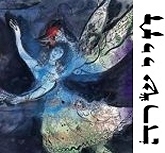
11.17.24 (Cheshvan 16, 5785) Shavuah tov, chaverim. Our Torah reading for last week (i.e., parashat Vayera) told how God was faithful to Abraham and Sarah by miraculously giving them a son (Isaac) in their old age. Nonetheless, Abraham faced his greatest test of all by being asked to offer up his promised child as a sacrifice on Mount Moriah, the place of the future Temple. On account of his willingness to obey, God blessed Abraham and promised that He would multiply Abraham's offspring as the stars of heaven and that in his seed (singular) all the nations of the earth would be blessed.
This week's Torah portion is called Chayei Sarah (חיי שרה), the "life of Sarah," though it begins (paradoxically) with the account of her death, and it tells how the first great matriarch of the Jewish people was buried in the Cave of Machpelah in Hebron, a burial site which Abraham had purchased from Ephron the Hittite (Gen. 23:1-20). Since the account of Sarah's death is given just after the account of the near-sacrifice of Isaac (i.e., the Akedah), some of the sages link the events together, suggesting that the shock of the near loss of her beloved son at the hand of her husband was just too much for her to bear.
Hebrew Lesson
Genesis 23:1a Hebrew Reading (click):
After Sarah was buried in Hebron, Abraham sought a wife for his son by commissioning his faithful servant Eliezer (whom Abraham had once thought would be his heir), to go among his relatives living in Mesopotamia to seek a bride for Isaac. Eliezer (i.e., אֱלִיעֶזֶר, lit., "My God will help") then set out on the 550 mile journey to Haran (also called the City of Nahor and the place where Abraham's father died), taking ten camels laden with gifts in search of a suitable woman. In answer to his prayer, as soon as Eliezer reached the city of Nahor he encountered Abraham's grand niece Rebekah drawing water at a well, where she graciously provided water for him and for his ten camels, thereby confirming that she was God's choice for Isaac.
Note: November 2024 updates continue here.
Follow the site's progress:
Site Updates for 2024
Site Updates for 2023
Site Updates for 2022
Site Updates for 2021
Site Updates for 2020
Site Updates for 2019
Site Updates for 2018
Site Updates for 2017
Site Updates for 2016
Site Updates for 2015
Site Updates for 2014
Site Updates for 2013
Site Updates for 2012
Site Updates for 2011
Site Updates for 2010
Site Updates for 2009
Site Updates for 2008
Site Updates for 2007
Site Updates for 2006
Site Updates for 2005
Site Updates for 2004
Hebrew4Christians Forum
|








































